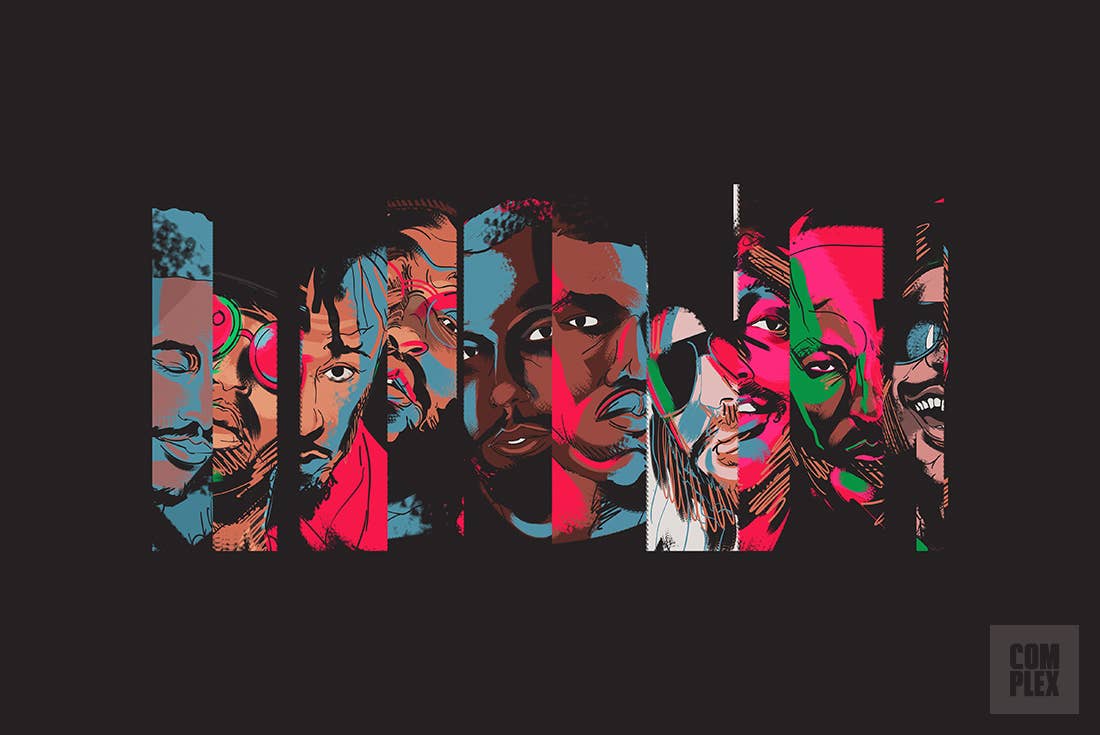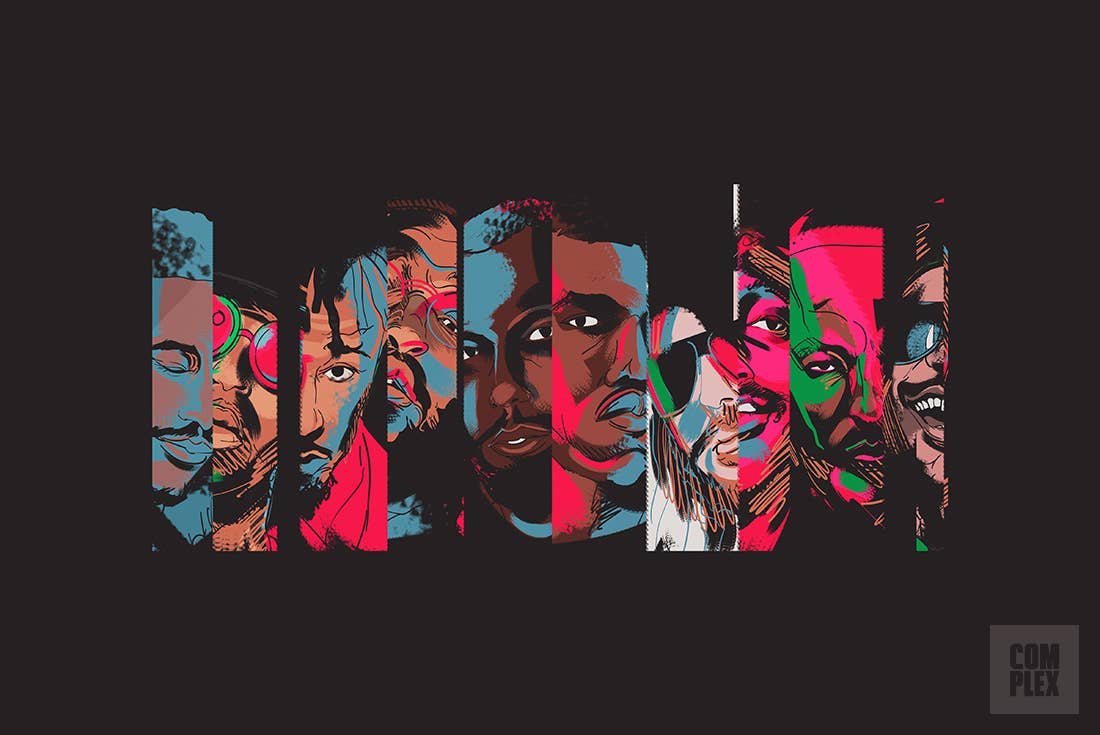
Rap lyrics pop into our heads at inappropriate times, end up as our yearbook quotes, and work their way into our everyday conversations. But very few bars would be as memorable if not for the music that accompanies them.
Great production can make even the most objectionable or cheesy lyrics sound great. The producers who create these beats may not be as glamorous as the rappers who spit over them (at least, most of the time), but they are equally important. Thus, they are equally subject to hip-hop’s sixth element: making lists.
Back in 2015, we chose The Best Rapper Alive, Every Year Since 1979. It was an exhaustive list inspired by a simple idea: a new way to take on the inevitable Top 5/GOAT discussions that dominate the hip-hop conversation. Instead of making the list about how someone stacks up against the entire canon of hip-hop, we narrowed in on who, in any given year, was unbeatable. From Grandmaster Caz in 1979 to Kendrick Lamar in 2017, we chose who had the alchemical combination of quality, momentum, and historical importance at every moment in the genre’s development.
It was only fitting to extend this concept to producers, as well. Producers are, in the words of the old Maoist slogan, holding up half the sky—giving rappers a sonic canvas on which to paint their pictures. Great producers, like rappers, have specific moments when they’re controlling the game, making classics, and setting trends seemingly at will.
A few notes before we begin: Being the BPA in a given year doesn’t mean that you’re the best producer, in whatever qualitative way one might decide these things. All-time greats like DJ Premier, Diamond D, Just Blaze, and Pete Rock—GOAT-level producers by any measure—don’t win a single year. It’s not because they’re not great. It’s that, during any given 12 months, there was always someone who edged them out, either due to volume of standout work (see DJ Quik’s astounding 1991, with four albums that paved the way for West Coast dominance to come); or to influence (in 1992, Dre delivered The Chronic—an album that gives him the prize as he faced perhaps the stiffest competition of any year on this list); or to ushering in a sound that was all of a sudden everywhere, all the time, and came to define its era (take one look at Lil Jon’s 2003output and try not to imagine yourself in the middle of a Chappelle skit).
So, what exactly does it mean to be a producer? The term has meant different things to different people in different eras. In the early years of rap, it was often the person who paid for the studio time or, alternately, the person who wrote and arranged the music. Sometimes it was the person whose name was on the record, or the record contract. Other times, it was the mad genius who searched through endless records for the perfect beat, or the collective that spent months in the studio side by side. Today, it most frequently means someone who composes a ton of music and shares their signature sound (and producer tag) with a variety of artists. We tried our best to account for all meanings of the word in the list you’re about to read.
This list is meant to spark debate (we know you’ll tell us where you think we got it wrong) and to give credit to the people who inspire us to dance and nod our heads to the beat. Most of all, it’s meant to compel you to go back and (re)discover some of the most exciting, moving, challenging, ubiquitous, and important music of the last four decades. Enjoy.
Illustrations by Sho Hanafusa
1979: Sylvia Robinson
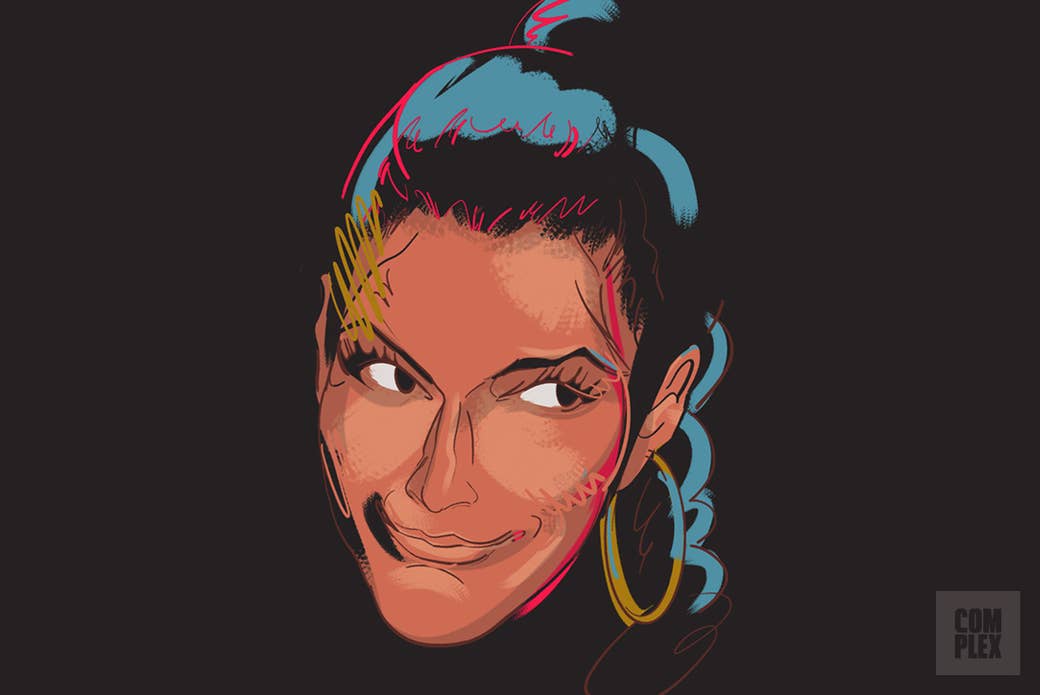
CREDENTIALS: “Rapper’s Delight” (The Sugarhill Gang)
Sylvia Robinson’s story is improbable. It’s the kind of thing that’s rightfully being made into a movie: The woman from the Dirty Dancing song teams up with a mobster and a kid from a pizza parlor to—by a combination of timing, luck, forethought, and stolen lyrics—start a revolution.
Robinson may have ended up as “one of the most reviled businesspeople in hip-hop,” but her story didn’t start that way. Best known at the time for singing “Love Is Strange,” she was a music business lifer who wanted to start a new label with her husband Joe, with a loan from notorious music biz gangster Morris Levy. In the summer of 1979, she was at a party at the uptown nightspot Harlem World when she saw Lovebug Starski playing records and exhorting the crowd in rhyme. “A spirit said to me, ‘Put a concept like that on a record and it will be the biggest thing you ever had,’” she told Vanity Fair years later.
Those who had been laying the groundwork for hip-hop culture at the time had no interest in putting anything on wax. After all, why make a record if you can just go to a party? But Robinson saw that the music could make a mark on places far outside nightclubs and rec centers. Once she had the idea, she knew she had to make the record. So Robinson tasked her son Joey Jr. with finding rappers. He remembered a guy he saw at the local pizza parlor, rounded up two more folks, and the Sugarhill Gang was born.
Sylvia had the idea to re-record Chic’s “Good Times” for the backing track, and even played on the session. (The idea would come back to bite her when the guys who wrote that song heard their music, didn’t see their name on the record, and promptly sued). The three strangers, one using lyrics from a rapper he managed—not even bothering to change the name—stepped in the booth. The result, a nearly 15-minute-long track called “Rapper’s Delight,” somehow worked. Those already steeped in the culture were skeptical, but nearly everyone else was blown away. From radio play on a single station in St. Louis, the song took off to the point that the label was pressing around 50,000 copies a day.
The aftershock was massive. Rap music became something you could not only record, but make money on. Sugar Hill Records is long over, but we’re still living in Sylvia Robinson’s world.
HONORABLE MENTIONS: Bobby Robinson, Rocky Ford and J.B. Moore, Fatback Band
There weren’t many songs released in the first year of recorded rap’s existence, so it’s amazing that there was so much variety. Bobby Robinson, head of Enjoy Records, put out two songs in 1979 that served as purist NYC counterweights to the Jersey-bred “Rapper’s Delight”: “Rapping and Rocking the House” by Funky Four Plus One More and Grandmaster Flash and the Furious Five’s “Superappin.’” As for Ford and Moore, they were the team behind Kurtis Blow’s “Christmas Rappin’,” a seasonal song that was so captivating and innovative that it was a hit straight through to the warmer weather months. And the Fatback Band? People argue to this day about whether “Rapper’s Delight” really was the first rap record. The other candidate? Fatback’s “King Tim III (Personality Jock).” Even one of the members of the Sugarhill Gang recalls the Fatback Band’s track predating theirs. It was, however, a B-side and not a single, thus relegating the debate to the realm of academia and record collectors. —Shawn Setaro
1980: Rocky Ford and J.B. Moore
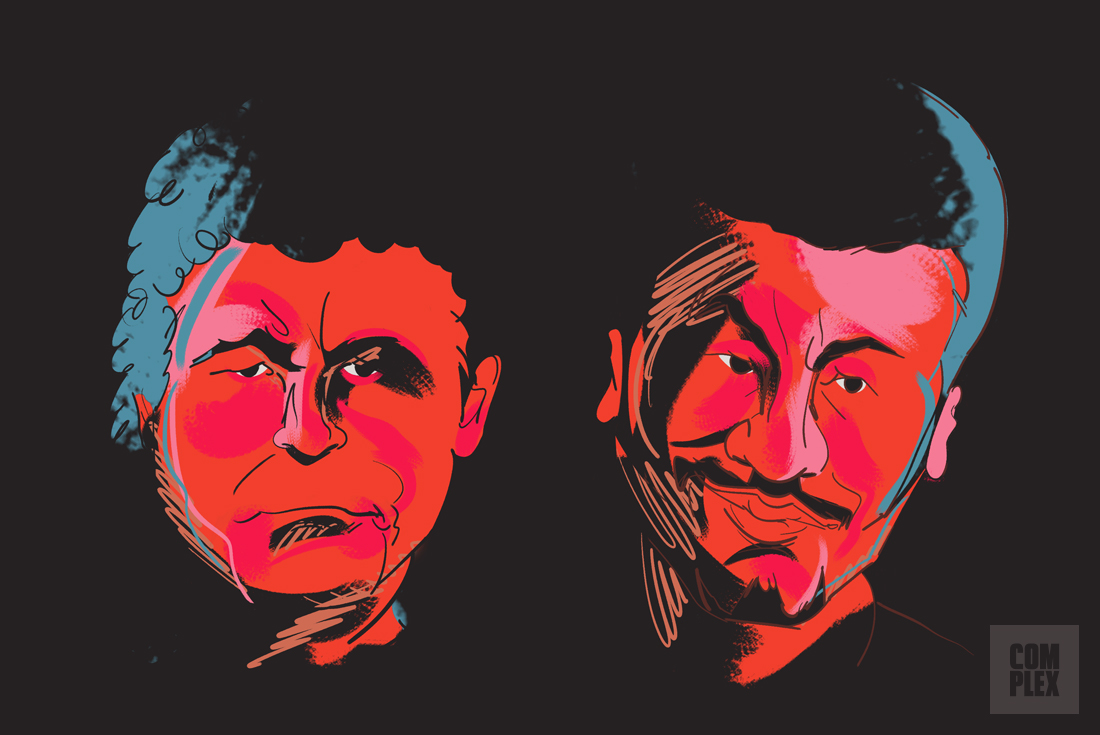
CREDENTIALS: Kurtis Blow (Kurtis Blow)
At the tail end of the 1970s, two Billboard writers, Robert “Rocky” Ford and J.B. Moore, came up with a plan that would help shape the course of hip-hop history. Ford had just written about the emergence of hip-hop in a 1978 article called “B-Beats Bombarding Bronx” and he needed more dough than his music writer salary would permit, with the birth of his son on the way. Another co-worker, Mickey Addy, had written some Christmas songs several years earlier, and his young compatriots liked the idea of a yearly royalty check. So Ford and Moore grabbed Kurtis Blow and wrote “Christmas Rappin’” for him.
The 1979 single became a massive hit and got Blow signed to Mercury Records. Happy with the success, Ford and Moore made the logical next step: They recorded a full album. Kurtis Blow’s self-titled 1980 debut was the first major-label rap album, and arguably the first-ever rap album of note. Ford and Moore produced the whole thing, teaming with Blow to bring in musicians like pianist Denzil Miller, Ford’s longtime friend Larry Smith (who would go on to glory with Run-DMC), and guitar virtuoso Eddie Martinez. They included material that was both comic (“Way Out West”) and serious (“Hard Times”)—even convincing Kurtis to croon a ballad and rock his way through a cover of “Takin’ Care of Business.”
They also showed us “The Breaks.” The 1980 single took inspiration musically from Steely Dan’s “The Royal Scam” and philosophically from comic Eddie Lawrence’s bit “The Old Philosopher.” In true hip-hop fashion, Ford, Moore, and company took those disparate influences and came up with something completely new—resulting in a track that is still one of rap’s most iconic. Ford and Moore would go on to work with Full Force and even teach Rodney Dangerfield and Tom Hanks how to rap. But it was in the variety—musical and lyrical—of Kurtis Blow that they had their biggest impact, letting the world know that this new rapping thing was worthy of a full album.
HONORABLE MENTIONS: Ann and Paul Winley/Harlem Underground Band, Bobby Robinson, Pumpkin
Paul Winley’s Winley Records had been around for decades, but it got new life in the 1970s by releasing funky records from the Harlem Underground Band, as well as a series of Malcolm X speeches. Naturally, Paul’s daughter Tanya turned to rap. Her 1980 track “Vicious Rap” was one of the first notable examples of rap getting political, with Tanya decrying high taxes and police repression. Tanya’s sister Ann is credited as producer on the record, just as she is on Winley Records’ other contribution to hip-hop that year: Afrika Bambaataa’s “Zulu Nation Throw Down.” Bobby Robinson is named as the producer on a series of influential rap songs his label Enjoy put out in 1980 by Treacherous Three, Grandmaster Flash and the Furious Five, and Disco Four. But the core talent behind those innovative records was Errol Eduardo Bedward. Bedward, better known as Pumpkin, was a drummer and bandleader who would hire musicians, arrange tracks, and even lead late-night sessions while Robinson (who was busy running a record store during the day) was often sacked out on the couch. Credit is due to both Robinson for securing studio time, finding rappers, and trusting in a then-teenage Pumpkin, and to Pumpkin himself for helping lead rap in a new sonic direction. —Shawn Setaro
1981: Pumpkin/Pumpkin and Friends
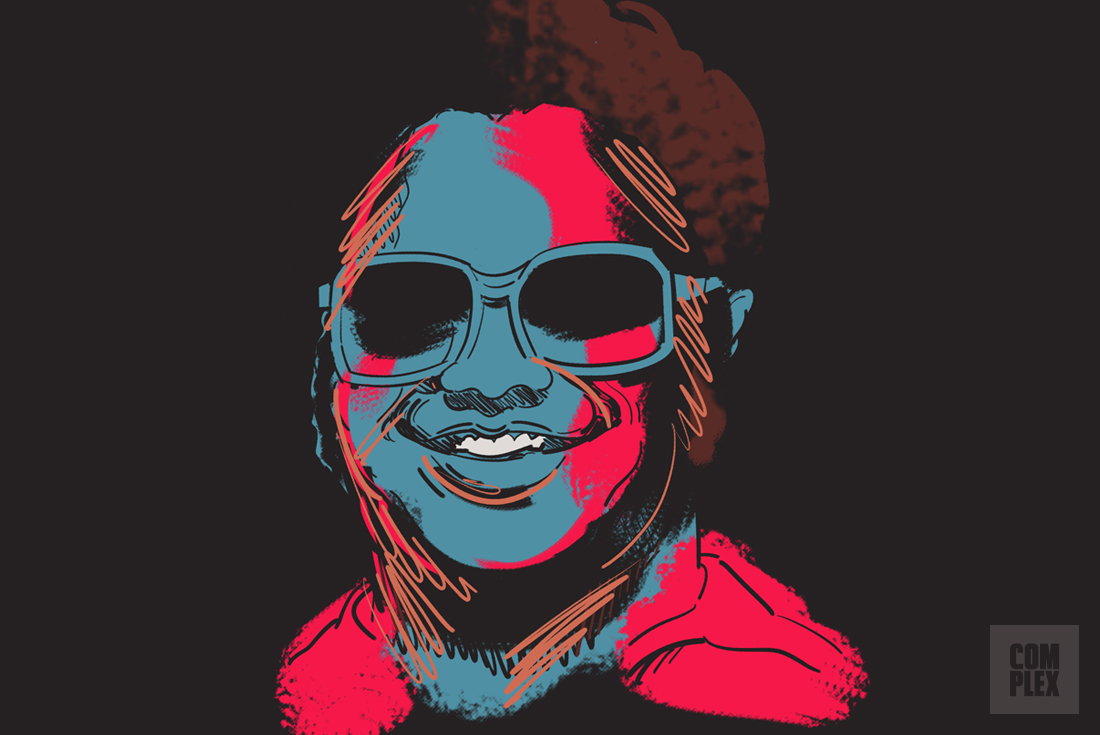
CREDENTIALS: “Feel the Heartbeat” (Treacherous Three)' “Do It, Do It” (Disco Four); and every other release from Bobby Robinson’s Enjoy Records that year
Funky drummer/musician/arranger/bandleader Errol “Pumpkin” Bedward was Enjoy Records’ not-so-secret weapon, crowned King of the Beat before anyone saw Kurtis Mantronik’s name on wax. Everyone—Treacherous Three, Spoonie Gee, Funky Four Plus One, Kool Kyle the Starchild, and Disco Four—benefited from Pumpkin’s innate funkiness and mastery of the pocket. No less an authority than Living Colour drummer Will Calhoun doesn’t mince words when talking about Pumpkin: He was “the sole creator of hip-hop and rap as a serious artform.”
Pumpkin was, like hip-hop itself, born in the Bronx. He started playing drums early, and showed so much promise that folks in his neighborhood went out and bought him a kit. He began working with Bobby Robinson’s Enjoy label when he was just 16, earning what must have seemed an astronomical fee of $600 per session.
It didn’t take Pumpkin long to figure out the drum machine, as well. Once he did, his services were in demand by three of the leading rap labels of the day: Enjoy, Profile, and Tuff City. He was so busy that he often resorted to being credited under pseudonyms like the gee-who-could-this-be “Jack O Lantern” or the hilarious “Oliver Shalom.” Bobby Robinson was able to challenge Sugar Hill as the premier rap label during the early ‘80s thanks in large part to Pumpkin’s success in the studio creating a sound that made B-boys and B-girls lose their minds.
In 1981, Bobby Robinson was credited as the producer of Treacherous Three’s “Feel the Heartbeat,” but it was Pumpkin and his studio mates who crafted the record’s sound, giving life to what could have been a by-the-numbers replay of Taana Gardner’s “Heartbeat.” A pulsing beat drives one of the most enduring rap recordings ever made, and Pumpkin was unquestionably the heartbeat behind the song, as well as countless others during the earliest days of rap on wax. If you listen to the infectious “Do It, Do It” by Disco Four or the floor-filler “It’s Rockin’ Time” by Kool Kyle the Starchild from that same year, it’s clear just how tight the bands Pumpkin directed were (and how versatile he was as a musician).
Within just a few years, Pumpkin would sign a $12,000 contract with Profile. That amount may seem paltry now, but in 1983 it surely bought him plenty of his beloved monogrammed shirts. But by 1987 or so, following some shady business deals, Pumpkin was burned out on rap. He kept on playing, though, and died in 1992, shortly after finishing some gigs in Japan.
HONORABLE MENTIONS: Jiggs Chase/Jigsaw Productions, Jonzun Crew, Arthur Baker
Clifton “Jiggs” Chase is a musician, arranger, songwriter, and producer who was employed by Sugar Hill Records in the ‘80s. If you know classics like Sugarhill Gang’s “Apache,” Grandmaster Flash and the Furious Five’s “It’s Nasty,” Spoonie Gee’s “Spoonie Is Back,” or Crash Crew’s “We Want To Rock,” you’ve heard his work behind the boards. Speaking of Sugar Hill Records, the Jonzun Crew produced rap records for them, too, in addition to making funk, soul, and disco for various labels. The group is responsible for Sugarhill Gang and the Furious Five’s “Showdown” and Brother to Brother’s “Monster Jam.” They also co-produced (without credit) Sequence’s “Funky Sound (Tear the Roof Off)” with Chase. Arthur Baker, for his part, would make waves in 1981 with Afrika Bambaataa and the Jazzy 5’s “Jazzy Sensation,” a hip-hop version of the Gwen McCrae floor filler “Funky Sensation.” The track’s “Bronx Version” was arguably the song of the year, as much for Baker’s infectious bass-driven track as for the oft-sampled “The ladies! The ladies!” chants. Bambaataa has since had his legacy tarnished by horrific sexual abuse allegations, but Arthur Baker’s contributions to “Jazzy Sensation” still ring out as strong as ever. —Dart Adams
1982: Arthur Baker
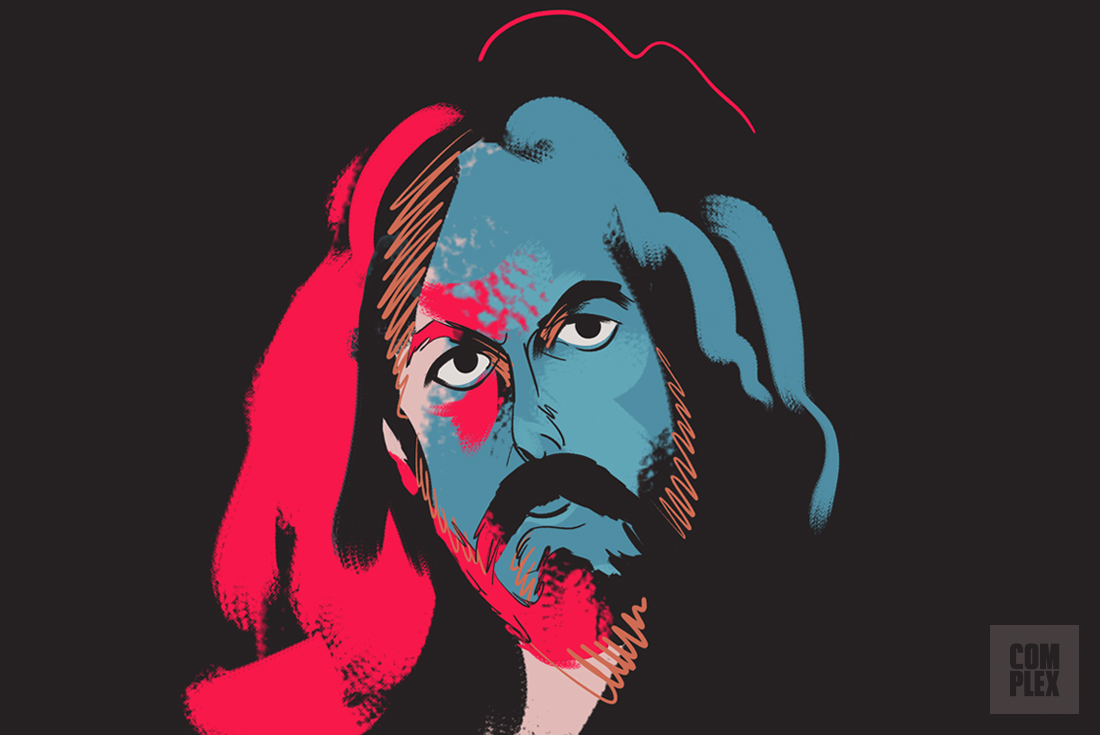
CREDENTIALS: “Planet Rock” (Afrika Bambaataa and the Soulsonic Force)
By his own admission, Arthur Baker was a “shit DJ” who “wanted to make music” when he began his career. By the time he left Boston for New York in 1981, though, he had a series of disco records under his belt. The following year, Baker put his mark on hip-hop in the form of “Planet Rock,” a song he produced for Afrika Bambaataa and the Soulsonic Force. The track—which saw the Universal Zulu Nation founder urging listeners to the dance floor over an unrelenting, explosive beat—has roots that go back as early as 1980, when Baker met Bambaataa through Tommy Boy Records founder Tom Silverman. Borrowing from Kraftwerk’s “Trans-Europe Express” and “Numbers,” Baker pioneered sampling before samplers were commonplace, and helped craft what later became known as electro in the process.
Not only did “Planet Rock” solidify Bambaataa’s move from tastemaking DJ to legit star (which lasted until sexual abuse allegations became public in 2016) and ensure the survival of what would become one of hip-hop’s most influential independent labels, it also set the stage for everything that came afterwards. It is, as fellow producer Rick Rubin later put it, “One of the most influential songs of anything. It changed the world.”
One reason the song has had such a pull on everyone from Rubin to today’s trap sensations is mechanical. The sound of “Planet Rock” came from the then-new Roland TR-808 drum machine. In Baker’s own words, it was “one of the first 808 records.” The machine, which flopped initially, had a distinct sound that, once “Planet Rock” hit, would spread across the world. It was “Planet Rock” that got Egyptian Lover to pick up an 808 and begin the L.A. electro-funk wave that gave us Ice-T and NWA, creating Miami bass along the way. You can trace a direct line from the track’s programmed hi-hats and booming kick to the trap drums of today.
That sound colored much of Baker’s other work at the time. With ties to Boston intact, he executive produced and mixed New Edition’s “Candy Girl” in 1982, alongside Maurice Starr. Offering a lighter take on Baker’s production style, the song helped launch the careers of the five teen singers and indirectly opened the door for five more. Not bad for a shit DJ.
HONORABLE MENTIONS: Jonzun Crew, Pumpkin, Jiggs Chase
Michael Jonzun and his brothers, including Maurice Starr, were extremely influential during an era in which electro-funk and rap hadn't quite separated yet. Their 1982 hit “Pak Man (Look Out for the OVC)” set the stage for the group to be signed to Tommy Boy and release a debut album the following year—kickstarting one of rap's most important independent labels. As mentioned above, 1982 was also the year Maurice produced “Candy Girl” for some kids in his neighborhood who thought of themselves as the “new edition” of the Jackson Five. Pumpkin spent 1982 producing songs for groups like Masterdon Committee and Fearless Four. His main accomplishment that year was “Rockin’ It” by the latter artists—a track that took notes from a Kraftwerk tune and turned them into a riff sampled by basically everyone. And in a year of iconic rap songs, Jiggs Chase might have everyone beat. He produced Grandmaster Flash and the Furious Five’s “The Message,” a perennial winner in best-rap-song-of-all-time polls. Special notice should also be made for Duke Bootee, who co-wrote, co-produced, and performed the song, alongside Sylvia Robinson. —Shawn Setaro and Lucas Wisenthal
1983: Larry Smith
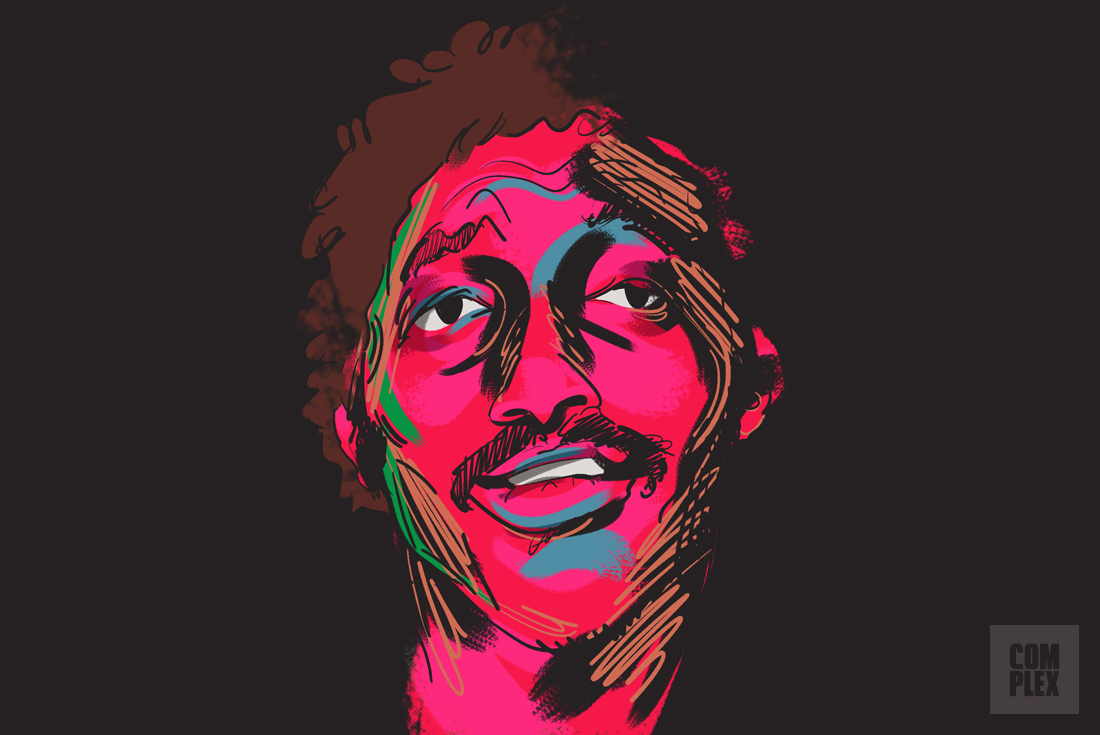
CREDENTIALS: “It’s Like That”/“Sucker M.C.’s” and “Hard Times”/“Jam Master Jay” (Run-DMC); “Money (Dollar Bill Y’all)” (Jimmy Spicer); “You’ve Gotta Believe” (Lovebug Starski)
Larry Smith may have had a better 1983 than anyone outside of Michael Jackson and Prince. By that year, Smith was already a veteran musician who knew his way around the studio, and was the driving force in the band Orange Krush, who would later serve as the backing group on the first two Run-DMC albums. Russell Simmons (who in more recent years faced accusations of sexual misconduct) knew what Smith was capable of, having seen him tear up the bass on “Christmas Rappin’” for Simmons’ college pal and management client Kurtis Blow. So when Simmons’ brother and his group needed tunes, Smith was in the mix.
A pair of Smith’s Run-DMC singles contained two of the most iconic rap records of the year, which helped create the first generational divide in rap. The stripped-down drum programming on “Sucker M.C.’s” and the powerful “It’s Like That” were inescapable when they hit store shelves, late-night rap shows, and college radio. The former’s beat, made on the Oberheim DMX, was so powerful that it once made its creator grab his own nuts in public. To get a glimpse of the song’s impact, look at how often people bite interpolate its opening lines. Or note that Marley Marl’s very first production was an answer track.
Smith’s beats would go on to influence Rick Rubin, the Bomb Squad (“The Bomb Squad was trying to make hard Larry Smith records,” DMC said years later), and basically everyone else who followed in his wake. Smith’s bare-bones, drum machine-heavy records were the result of economics as much as aesthetics. “If I had had the budget, I would have hired live performers on the whole first Run-DMC album,” he said, looking back. But no matter the reason, the impact was historic.
Creating a whole new generation of rappers wasn’t enough for Smith to accomplish in ‘83. His versatility as a producer was reflected in credits with artists like Jimmy Spicer (“Money [Dollar Bill Y’all]”) and Lovebug Starski (“You’ve Gotta Believe”)—while his work on Rodney Dangerfield’s hit “Rappin’ Rodney” highlighted just how in demand he was during those 12 months. The following year, he helped turn rap into a more mature, album-oriented genre with his work with Whodini. Sadly, the sampling era would soon make Smith’s reliance on instruments and musicianship passé, and by the end of his life he was “languishing” in a nursing home.
HONORABLE MENTIONS: Jean-Michel Basquiat and Al Diaz, Kurtis Blow, Arthur Baker
When he wasn't creating iconic pieces of visual art, Jean-Michel Basquiat found time to earn production credits alongside Al Diaz on Rammellzee vs. K-Rob’s hit “Beat Bop,” a wild 10-minute track that brings instruments in and out of the mix (and adds and removes heavy reverb to the vocals) seemingly at random. Meanwhile, Kurtis Blow produced Sweet G’s “Games People Play” (one of the first rap songs to use Isaac Hayes’ soon-to-be-ubiquitous piano from “Ike’s Mood I”) and Gigolette’s pop-leaning answer record “Games Females Play.” He also helmed Fearless Four’s drum machine-heavy “Problems of the World” with Mr. Magic and the aforementioned “You’ve Gotta Believe” with Larry Smith. 808 innovator Arthur Baker cranked out multiple hits for his label Streetwise with New Edition, as well as club favorites like New Order’s “Confusion.” He was also behind Afrika Bambaataa and the Soulsonic Force’s futuristic electro-funk classics “Looking for the Perfect Beat” and “Renegades of Funk”—the latter a track so ahead of its time that no one blinked when Rage Against the Machine covered it nearly two decades later. —Dart Adams
1984: Larry Smith
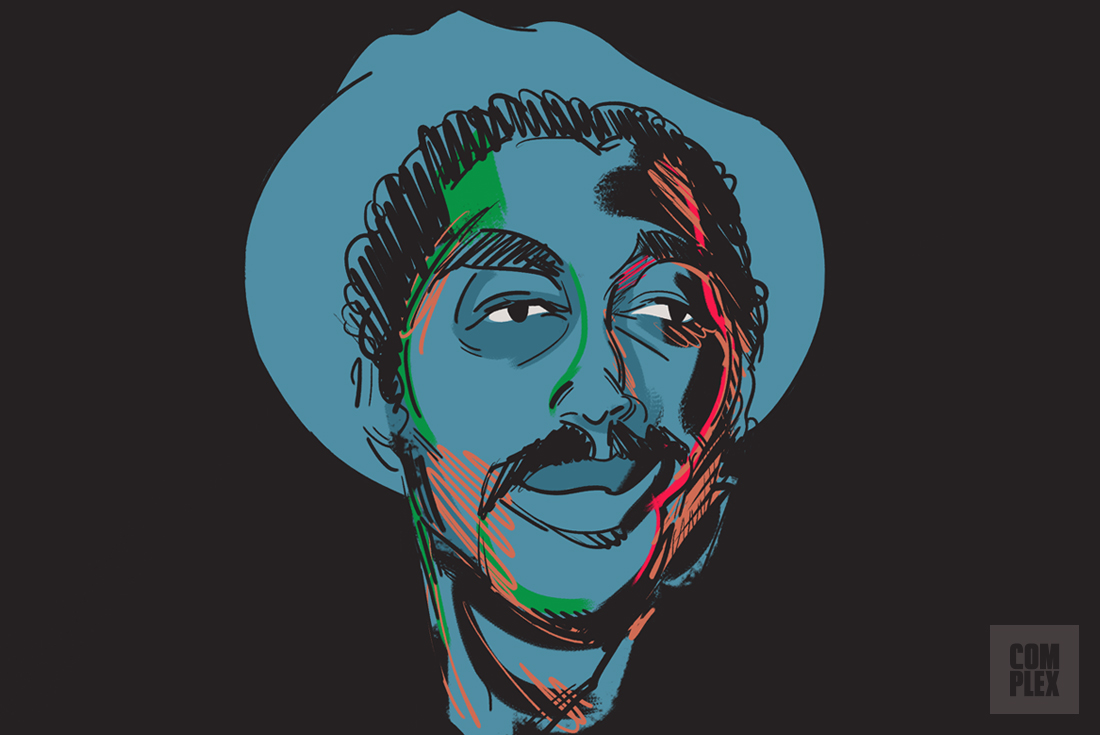
CREDENTIALS: “Friends,” “Freaks Come Out at Night” (Whodini); Run-DMC (Run-DMC)
After a dominant year in 1983 producing breakthrough tracks for Run-DMC, Larry Smith carried his momentum into the new year on the group’s self-titled debut. Alongside Russell Simmons, he developed a dense series of tracks that shifted hip-hop’s sound yet again. Instead of the light, funky stylings popular in the early days of the genre (think Furious Five) Smith went to work freaking a drum machine like no one had before, resulting in a more aggressive form of hip-hop.
The work he produced for Run-DMC, as revolutionary as it was, only revealed one side of Smith, however. His songs with Whodini introduced listeners to a mix of hard-hitting bottom lines and just-under-the-surface aural accoutrements. His beats on their Escape album were complex enough to stand alone during breaks between verses, yet straightforward enough that vocals were never overpowered. Two of Whodini’s best-known tracks, “Friends” and “Freaks Come Out at Night,” demonstrated the elastic campiness that wriggled freely throughout ‘80s pop culture.
Smith’s ability to flip from a hardened new-school style with Run-DMC to more unbuttoned sounds with Whodini reflected his mastery of the craft, and the commercial success of each record illustrated just how far he took hip-hop production during his run.
HONORABLE MENTIONS: Kurtis Blow, Aaron Fuchs, Full Force
Kurtis Blow was on fire in 1984. He collaborated with everyone from Dr. Jeckyll & Mr. Hyde to Lovebug Starski, but it was his production work for the Fat Boys that pushed him ahead of a growing crowd of beatmakers. Blow’s genuine sense of musicality gave the group room to explore new territory as they rapped and beatboxed over his drums. Aaron Fuchs is a controversial figure, respected and hated in near equal measure, mostly for his music publishing moves. But whatever you think of Fuchs, you can’t deny that he had one hell of a 1984 (thanks in no small part to help from our old friend Pumpkin, who was a driving force for much of Fuchs’ label Tuff City’s music in this period). Helming classic songs for Davy DMX, Fearless Four, and Cold Crush Brothers, Fuchs wasn’t afraid of throwing some good old-fashioned guitar riffs into his beats, making for compelling foundations that both challenged and supported his vocal counterparts. Full Force’s 1984 is cemented on this list because of one song: “Roxanne, Roxanne.” The track helped ignite one of the earliest rap beefs, the Roxanne Wars, which launched young Roxanne Shanté directly into her now-biopic’d career. —Kiana Fitzgerald
1985: Rick Rubin
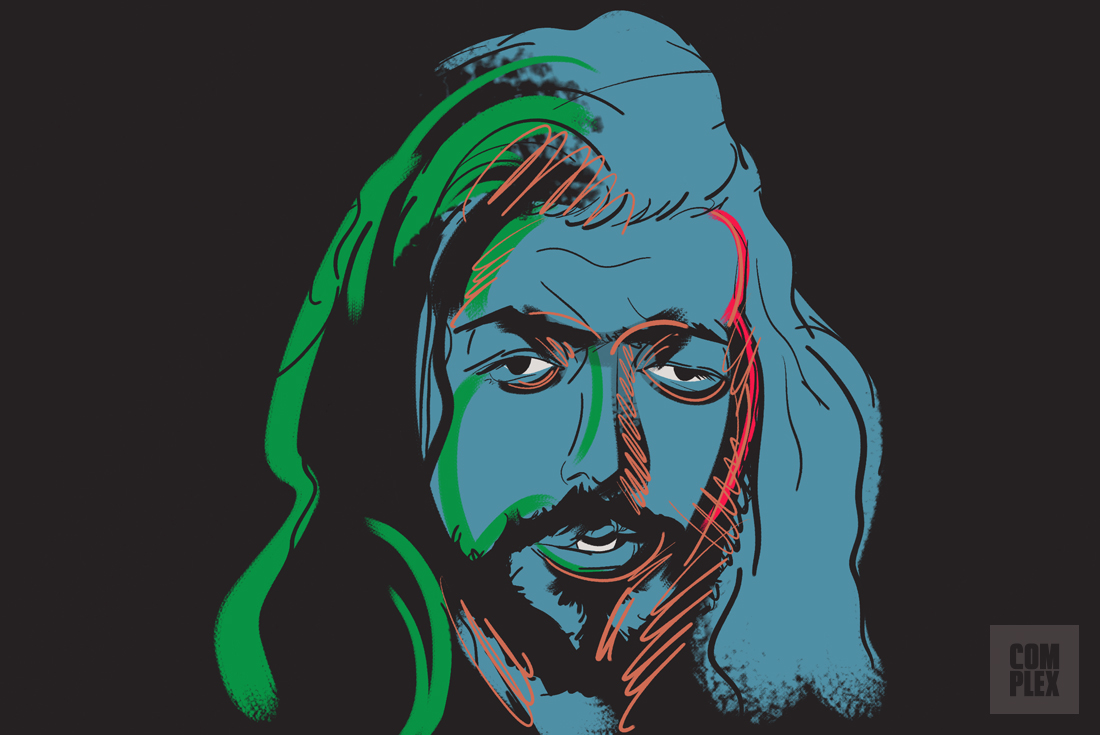
CREDENTIALS:King of Rock (Run-DMC); Radio (LL Cool J)
The producer credit at the top left corner on the back of LL Cool J’s debut LP reads, “REDUCED BY RICK RUBIN.” It’s a play on words meant to emphasize Rubin’s signature style of stripping a beat down to its most basic elements. Along with Run-DMC’s King of Rock, LL’s Radio would usher in a new era of rap and rudely show the previous generation the door.
Radio was the product of young and hungry guys—LL had dropped out of Andrew Jackson High School in Queens to record it and Rubin, producing his first full-length record, was just 22 years old. He already had hip-hop bona fides, having co-produced T La Rock’s “It’s Yours” the previous year, along with LL’s debut single, “I Need A Beat,” but Radio represented something different.
Hip-hop had started out as an art form consisting primarily of singles, most notably Sugar Hill Records’ sky-blue releases. Def Jam, founded by Rubin and budding impresario Russell Simmons, started off with singles as well. But like the artists themselves, the genre had greater ambitions. On “Rock the Bells,” Radio’s in-your-face single, LL ran through names of artists he was ready to replace, including Bruce Springsteen, Madonna, Michael Jackson, and Prince. To do that, you needed albums, not just singles.
Coming from a rock background, this was only natural for Rubin. Radio was put together as a coherent project, from the massive boom box on the cover to the lead track, “I Can’t Live Without My Radio.” It made LL a worldwide star and Rubin one of hip-hop’s hottest producers. It was an album that would foreshadow all that Rubin was to do with that stripped-down sound, from the stark speed metal of Slayer’s Reign in Blood to the Beastie Boys’ rock-sample-rich Licensed to Ill to the radically reduced sound of Johnny Cash’s late-career opuses.
Rubin’s work with the Beastie Boys, which would peak the following year, seems inevitable in hindsight. The producer, just a few years older than the Boys themselves, must have seen a little of himself in the would-be punks, and in them a chance to elevate a band of pranksters to heights his own bands could have only imagined. That elevation started in ‘85, with the singles “She’s on It” and “Slow and Low”—the former kicking off with a raw guitar riff that gives way to booming drums. The best, of course, was yet to come.
HONORABLE MENTIONS: Marley Marl, Kurtis Mantronik, Full Force
Given how young hip-hop was in 1985, there was room for innovation from all sides. As Rubin found ways to pair rock guitar fury with drum machine boom bap, a Queensbridge producer named Marley Marl was pioneering sampling. And Graham el Khaleel, aka Kurtis Mantronik, was creating his own electro-funk sounds and releasing Mantronix: The Album. Meanwhile, Full Force was producing funky, electronic hits for themselves, Lisa Lisa & Cult Jam, UTFO, and the Real Roxanne—early highlights in a career that would see their members working with Samantha Fox, the Backstreet Boys, James Brown, the Black Eyed Peas, and even a young Nicki Minaj.—Russ Bengtson
1986: Rick Rubin

CREDENTIALS:Licensed to Ill (Beastie Boys); Raising Hell (Run-DMC)
Rick Rubin's 1986 can be summed up in three albums, any of which would have made a producer’s career, let alone year. Following the success of LL Cool J’s Radio, Rubin’s sound was en vogue and in demand, and his (and Russell Simmons’) Def Jam imprint was to the latter half of the ‘80s what Sylvia Robinson’s Sugar Hill Records was to the first half.
It seemed inevitable that Rubin would produce a Run-DMC record. Their hard-hitting sound, birthed on the eponymous 1984 debut and expanded upon on 1985’s King of Rock, mirrored what Rubin did on Radio. The result of their collaboration, 1986’s Raising Hell, cemented Run-DMC and Rubin as rap legends, brought ‘70s rock heroes Aerosmith back from the dead, and propelled hip-hop itself into the wider public consciousness.
“Walk This Way” is what everyone remembers. It’s the rock/rap pairing to begin and end all rock/rap pairings, with the oft-played video featuring Aerosmith lead singer Steven Tyler literally breaking down the wall separating the two groups. But rock guitars are strewn all over Raising Hell, pushing Run-DMC to new heights and into the bedrooms of suburban teenagers across the world. In Long Island, a young MC named Chuck D heard it and vowed to sign with Def Jam. His group, Public Enemy, would help hip-hop take another huge step a few short years later.
In November, the Beastie Boys released their debut, Licensed to Ill. And while the oft-misogynistic frat boy lyrics wouldn’t age particularly well, Rubin’s production—which swiped huge chunks of riffage from the likes of Led Zeppelin, Black Sabbath, and AC/DC—certainly has. Their 1989 follow-up, the Dust Brothers-helmed Paul’s Boutique, has become the more critically acclaimed release, but Licensed to Ill is equally unreproducible, as the Zeppelin riffs alone would have cost millions. As on Radio, it’s Rubin’s drums that drive the ship, with riffs merely setting the tone and providing a recognizable frame of reference.
Slayer’s Reign in Blood came out in October, and at just under 29 minutes it was almost an EP. Rubin, who produced it, refined their sound even further, stripping it down to its basest elements and producing what was essentially a speed metal suite, one song blending into the next in a relentless assault from the opening of “Angel of Death” to the conclusion of “Raining Blood.” By removing all that was unnecessary, Rubin reduced Slayer to their purest form and clearest sound, creating a metal classic that, 30 years on, remains the signature accomplishment of the genre. Slayer’s groove found its way onto hip-hop records including the Beasties’ “No Sleep Till Brooklyn” (which had guitar provided by the band’s Kerry King)—when the Bomb Squad needed a metal riff to help propel PE’s “She Watch Channel Zero?!,” they cribbed one from “Angel of Death.”
HONORABLE MENTIONS: Teddy Riley, Marley Marl, Daddy-O/DBC/Stetsasonic
A teenage Teddy Riley produced Kool Moe Dee’s “Go See the Doctor” in 1986, a mere prologue to a career that would see him introduce new jack swing to the lexicon. Marley Marl was still pushing things forward in QB, producing classics as disparate as Biz Markie’s “Make the Music With Your Mouth, Biz” and Kool G. Rap & DJ Polo’s “It’s a Demo.” And in Brooklyn, Stetsasonic was bringing the whole band dynamic to hip-hop, a movement that would eventually lead to the likes of the Roots. —Russ Bengtson
1987: Ced Gee
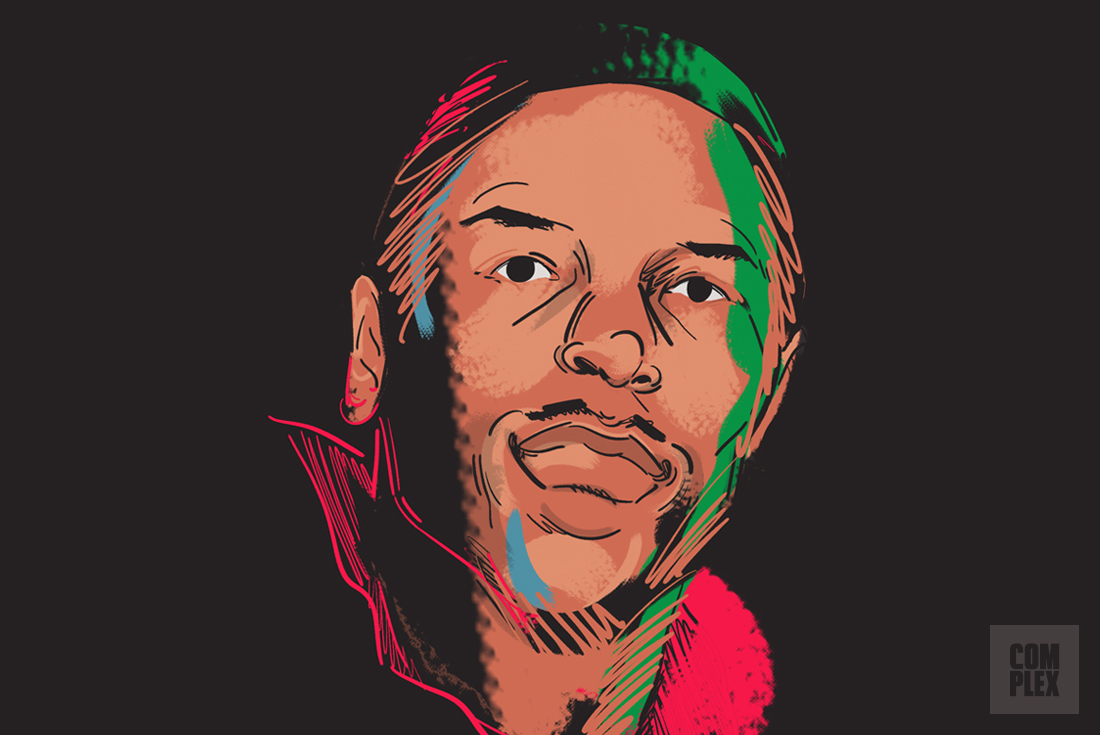
CREDENTIALS: Criminal Minded (Boogie Down Productions); “Funky” (Ultramagnetic MC’s)
A year before the Ultramagnetic MC’s and their debut studio album, Critical Beatdown, inspired the production on Public Enemy’s It Takes a Nation of Millions to Hold Us Back, the group’s maestro, Cedric “Ced Gee” Miller, pushed hip-hop sonics to new heights. The former South Bronx DJ revolutionized the art of record sampling by excising specific chunks from the finest soul records and turning them into fresh rhythms—somehow using the limitations of the SP-1200 sampler to infuse his production with a sense of freedom. Listen past the minimalism of Ultramag’s “Funky” and ingest the marble cake of subtle arrangements; hear the drums’ pugilism on “Ego Trippin’.”
It’s what Ced chopped as much as the manner in which he chopped it that made him special. It didn’t matter whether he pinched an ad-lib grunt, hits from a brass section, or the beloved “Impeach the President”—the loan would eventually support the soundbed of a classic. In 1987, his crowning achievement was Boogie Down Productions’ now-enshrined debut album, Criminal Minded, which, thanks largely to Ced’s consummate funk cook-up, boasts KRS-One’s most menacing triumphs. “Criminal Minded” and “South Bronx” made history in ’87, but their DNA can be traced years prior: Ced grafted the latter’s skeleton from James Brown’s prize “Get Up Offa That Thing” and supplied Trouble Funk’s “Let’s Get Small” for the former’s heartbeat. The infectious rigidity of “The Bridge Is Over” must be remembered, as well.
Ced not only helped introduce BDP to 500,000 rap fans by scoring the knockouts of one of the 20th century’s greatest rap battles, the Bridge Wars, he also inspired approaching greats like the Bomb Squad, Eazy-E, and Dr. Dre—helping establish the sound of hip-hop’s first golden age.
HONORABLE MENTIONS: Marley Marl, Hurby “Luv Bug” Azor, DJ Eddie F
A clear runner-up for 1987 is now-legendary instigator Marley Marl. A year before the Juice Crew founder earned his crown by giving hip-hop “The Symphony” and debut albums by Big Daddy Kane and Biz Markie, he was the man behind Heavy D’s street breakout hit “The Overweight Lover’s in the House” and Kool G Rap’s B-side PSA “Rikers Island.” Most significantly, he was a contributor to one of the decade’s greatest rap albums, Eric B & Rakim’s Paid In Full. While the Roxanne Wars were running out of steam, Hurby “Luv Bug” Azor saw an opportunity to season the gender beef with Salt-N-Pepa. Powered by broad ears, the Haitian Brooklynite gave us tracks that were as fresh as they were refreshing—most notably, “Push It.” Meanwhile, up in Mount Vernon, Heavy D’s DJ Eddie F was coming into his own as the soon-to-be “untouchable” composer manned the lion’s share of the production on Heav’s debut, Livin’ Large. —Bonsu Thompson
1988: Marley Marl
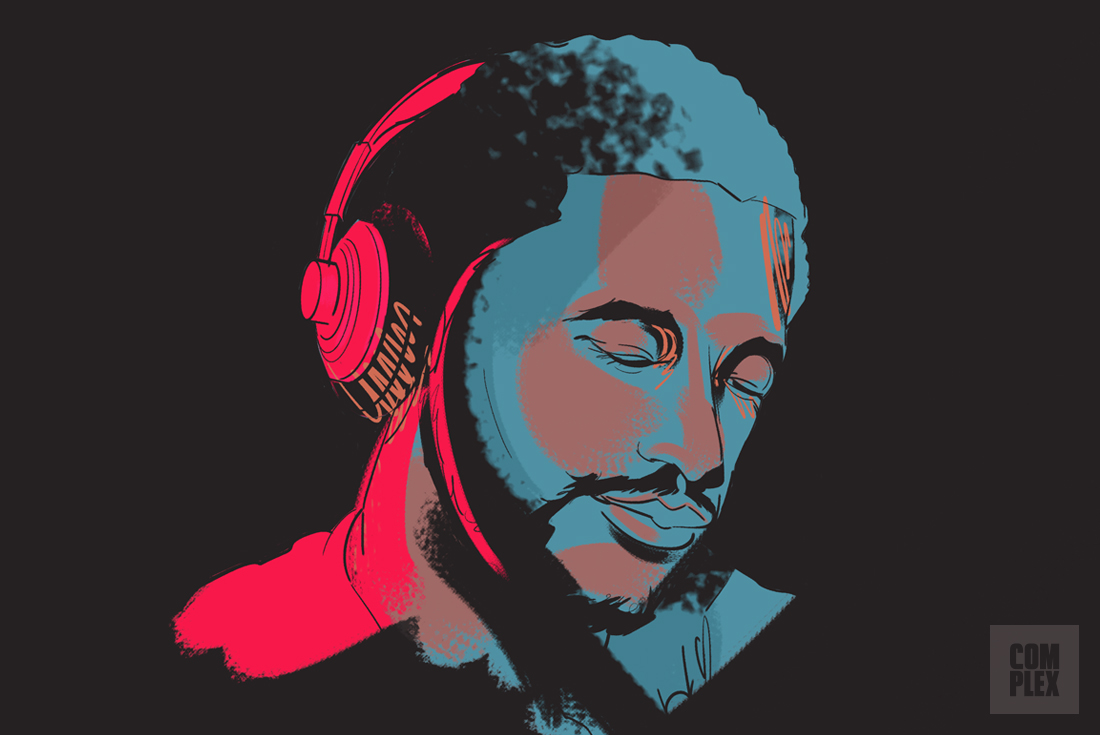
CREDENTIALS:In Control, Volume 1 (Marley Marl); Goin’ Off (Biz Markie); Long Live the Kane (Big Daddy Kane); Born to Be Wild (MC Shan); “Poison” (Kool G. Rap & DJ Polo)
Marley Marl, according to legend, accidentally discovered sampling circa 1985 while working on a Captain Rock remix. But unlike many inventors, he actually managed to harness the power of his creation and use it to its fullest potential.
It was in 1988 that Marley was feeling the most intense pressure due to the state of the world. “‘88—you gotta look at the atmosphere, the climate,” he told NPR years later. “It was, like, do or die, because crack was rampant. Nighttime was Night of the Living Dead. So you really had to—if you wasn't going to do it, if you wasn't going to be over here, you was gonna be over there.” And do it Marley definitely did. When the words “Golden Age hip-hop” are spoken, what comes most immediately to mind is Marley’s sound: samples that mined every inch of the James Brown catalog, of course, but also used Joe Tex, Otis Redding, Isaac Hayes, and pretty much all of 1960s and ’70s soul music as its canvas.
“Hearing Marley Marl’s output circa ’86-’89 was an experience the impact of which was akin to discovering aural electricity every couple of weeks, one five-minute serving at a time,” wroteEgo Trip’s Chairman Mao. And hearing Marley’s output in 1988 was to get the heaviest voltage of all. That year, Marley produced Goin’ Off for Biz Markie, Long Live the Kane for Big Daddy Kane, Born to Be Wild for MC Shan, “Poison” and “Butcher Shop” for Kool G. Rap & DJ Polo, and “Go on Girl” for Roxanne Shanté—along with, of all things, a bangin’ Paula Abdul remix. Marley brought his spark to each project: providing backing tracks powerful enough to match up with Kane’s smooth boasts; making sure that even Biz’s goofy songs like “Pickin’ Boogers” had beats classic enough to ensure they’d move out of Weird Al territory and hold up to repeat listenings; giving Shan his own, saxophone-heavy spin on the Juice Crew sound.
That alone would be enough to walk away with the year. But we’re not done. 1988 was also the year that Marley released his compilation album In Control, Volume 1, which featured Juice Crew artists and affiliates like Craig G, Masta Ace, Biz, and Heavy D—as well as, for some reason now lost to time, Roxanne Shanté dissing Salt-N-Pepa for “Push It.” Marley’s production is top-notch throughout, but there’s also the little matter of “The Symphony.” The song is arguably the greatest rap posse cut of all time, and Marley’s genius idea of mashing up Otis’ “Hard to Handle” with a classic breakbeat is no small part of the reason why. When you add that accomplishment to everything else, it becomes clear that, even in the year of Nation of Millions, The Great Adventures of Slick Rick, Straight Outta Compton, Critical Beatdown, and Strictly Business, the production god of QB stands supreme.
HONORABLE MENTIONS: DJ Mark the 45 King, The Bomb Squad, Paul C
Long before he produced “Hard Knock Life (Ghetto Anthem)” for JAY-Z and “Stan” for Eminem, 45 King was one of the most innovative and funkiest producers of the late ‘80s. In 1988, he released his excellent solo album Master of the Game, but he made his biggest impact as producer for the Flavor Unit crew. Also in 1988, Dana Owens, renamed Queen Latifah, teamed up with the 45 King to release her first single, “Wrath of My Madness,” thus sparking the career of one of the genre’s biggest stars. At the same time, the Bomb Squad produced one of rap’s greatest albums, Public Enemy’s It Takes a Nation of Millions to Hold Us Back. And they did it while creating an entirely new approach to sound—one complicated and dense enough to have inspired entire seminars. As for Paul C, a penchant for ghost production and an early death means we may never know the full extent of his influence (though I suggest starting here to get an idea). But we know for sure that he produced “Give the Drummer Some” by the Ultramagnetic MC’s, which Pete Rock praised as having “the illest drums I ever heard.” He would also mentor Large Professor, shape the music of Organized Konfusion, work on most of Eric B. & Rakim’s Let the Rhythm Hit ’Em, and influence a generation of beatmakers before his untimely murder in July 1989. —Shawn Setaro
1989: Prince Paul
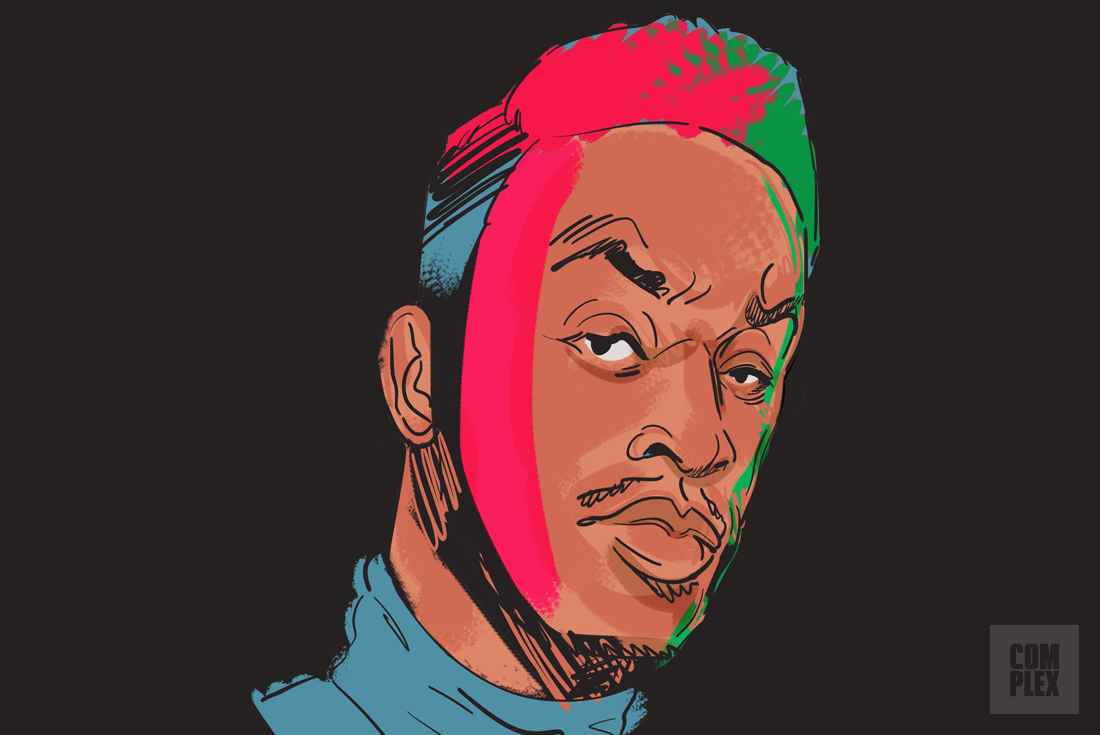
CREDENTIALS: 3 Feet High and Rising (De La Soul)
On 1991’s Derelicts of Dialect, one bar before declaring that, yes, it was merely “3rd Bass givin’ y’all the herbals,” Pete Nice offered a disclaimer: “This ain’t a Prince Paul loop from the Turtles.” The line referred to “Transmitting Live From Mars,” an interlude from 3 Feet High and Rising, De La Soul’s landmark 1989 debut. The song saw Paul borrow from the Turtles’ “You Showed Me.” A legal battle ensued, and De La reportedly settled for a figure as high as $1.7 million, establishing a precedent that changed sampling practices in hip-hop.
But not before 3 Feet could alter the course of hip-hop itself. Paul—who also produced songs including 3rd Bass’ “The Gas Face” and Big Daddy Kane’s “It’s a Big Daddy Thing” that year—helmed the album alongside De La. The one-time Stetsasonic DJ built it around the conceit of a game show. The disc began in earnest with “The Magic Number,” which saw the group interpolate Bob Dorough’s ode to the number three from Schoolhouse Rock! A series of unlikely samples, meticulously chosen and carefully placed, appeared through 3 Feet’s 24 tracks, as the trio rapped about their prowess on the mic, social ills, heartbreak, and the perils of putting on dookie-rope chains without first showering in the morning.
While the group helped usher in the era of Afrocentrism in rap, hits like “Me Myself and I” and a flower-power-inspired album cover led to Arsenio Hall calling them “the hippies of hip-hop.” Some 29 years later, the release that saddled them with that misguided title—a record that influenced classics as far-ranging as KMD’s Mr. Hood and the Wu-Tang Clan’s Enter the Wu-Tang (36 Chambers)—remains absent from all streaming services. Prince Paul’s work may have embodied the “D.A.I.S.Y. Age,” but the samples that carried it are apparently too troublesome to clear for the digital one.
HONORABLE MENTIONS: Dust Brothers, Howie Tee, DJ Mark the 45 King
In 1989, the post-Def Jam Beastie Boys distanced themselves from Rick Rubin’s guitar-heavy sound with the Dust Brothers. Using classic funk and rock samples, the Los Angeles production duo laid the groundwork for Paul’s Boutique, the album that helped Ad-Rock, Mike D, and MCA transcend the frat-boy stigma of its predecessor. Howie Tee, meanwhile, produced Chubb Rock’s And the Winner Is…, which gave us the single “Ya Bad Chubb,” along with Special Ed’s criminally underrated debut LP, whose beats (potato ‘n’ alligator soufflé and all) hold up amazingly well to this day. The 45 King had a prolific year, producing the majority of All Hail the Queen, Queen Latifah’s debut, as well as tracks for Gang Starr, Chill Rob G, and more. He was so hot that year that even an X-Clan song in which he’s credited only with “mix and extra beats” is absolute fire. —Lucas Wisenthal
1990: The Bomb Squad
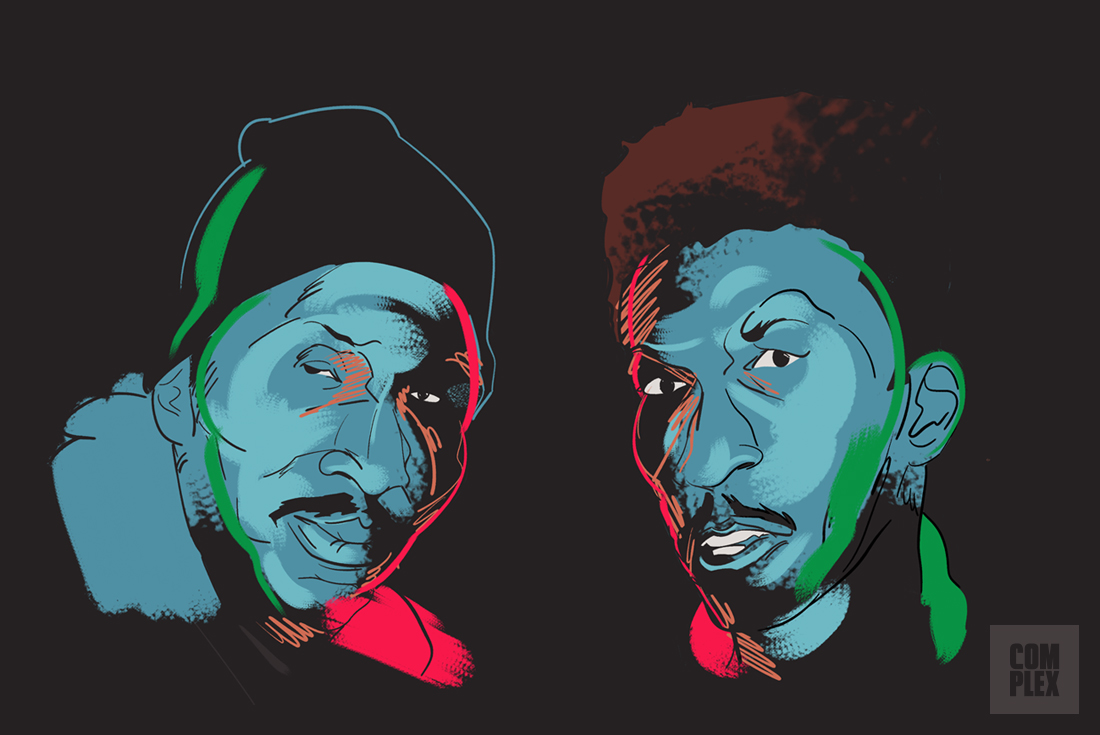
CREDENTIALS: Fear of a Black Planet (Public Enemy); Amerikkka’s Most Wanted (Ice Cube)
When Ice Cube left N.W.A in a huff in 1989, he was considered by many to be dead in the water. One major problem was that he had no one to produce his solo debut. Dr. Dre wasn’t available, so Cube consulted his friend Chuck D, who he’d met on tour. At first, Chuck didn’t want to get in the middle of the increasingly caustic N.W.A dispute, which would later escalate to diss tracks like “No Vaseline.” But when Cube visited New York in early 1990, Chuck invited him to a recording session for Public Enemy’s new album, Fear of a Black Planet, the group’s follow-up to their landmark It Takes a Nation of Millions to Hold Us Back. And who was behind the boards? The Bomb Squad.
The Long Island-based team—Chuck D, Eric Sadler, and brothers Hank and Keith Shocklee—was in the midst of tearing up hip-hop and refashioning it from scratch. They were at peak powers in 1990: Fear of a Black Planet featured Cube on “Burn Hollywood Burn,” as well as another hour’s worth of chaotic, sample-laden, pastiche rap music that sounds as urgent now as it did then. But Cube and the Bomb Squad were just getting started. Barely a month after Planet, in May 1990, Cube released his solo debut, Amerikkka’s Most Wanted, an out-of-nowhere hit and critical success that managed to vault him past N.W.A.
The Bomb Squad get much of the credit for that success. In contrast to the current era—in which rappers and producers often collaborate electronically rather than meeting face to face—Amerikkka was created after the Bomb Squad essentially locked Cube in their Long Island record room and told him not to come out until he’d found his album. Led by Sadler, they proceeded to dissect the LPs he’d chosen. The result is an undeniable classic that’s as much Bomb Squad as Cube, as much East Coast as West Coast.
The Bomb Squad’s 1990 output also includes contributions to Bell Biv DeVoe’s Poison and the debut singles by Son of Bazerk and the Young Black Teenagers. “I have always tried to communicate rebellion,” Hank Shocklee told journalist Brian Coleman, but the Bomb Squad could also start a party, as anyone who’s heard “B.B.D. (I Thought It Was Me)?” can attest.
HONORABLE MENTIONS: Sir Jinx, Tony D, Large Professor
A childhood friend who grew up two doors down from Cube, Sir Jinx was brought in during Amerikkka’s production process to ensure a West Coast flavor, and he became a formative part of Cube’s following works Kill at Will (also released in 1990) and Death Certificate. Across the country, the Golden Age marched on, as exemplified by producer (and sometimes rapper) Tony D, who put together most of fellow New Jersey act Poor Righteous Teachers’ 1990 debut, Holy Intellect, as well as YZ’s Sons of the Father. Meanwhile, Large Professor’s nascent career was starting with a bang via his work on Eric B. & Rakim’s 1990 album Let the Rhythm Hit ‘Em and Kool G. Rap & DJ Polo’s Wanted: Dead or Alive before his group, Main Source, changed the game with its Breaking Atoms debut a year later. —Ben Westhoff
1991: DJ Quik
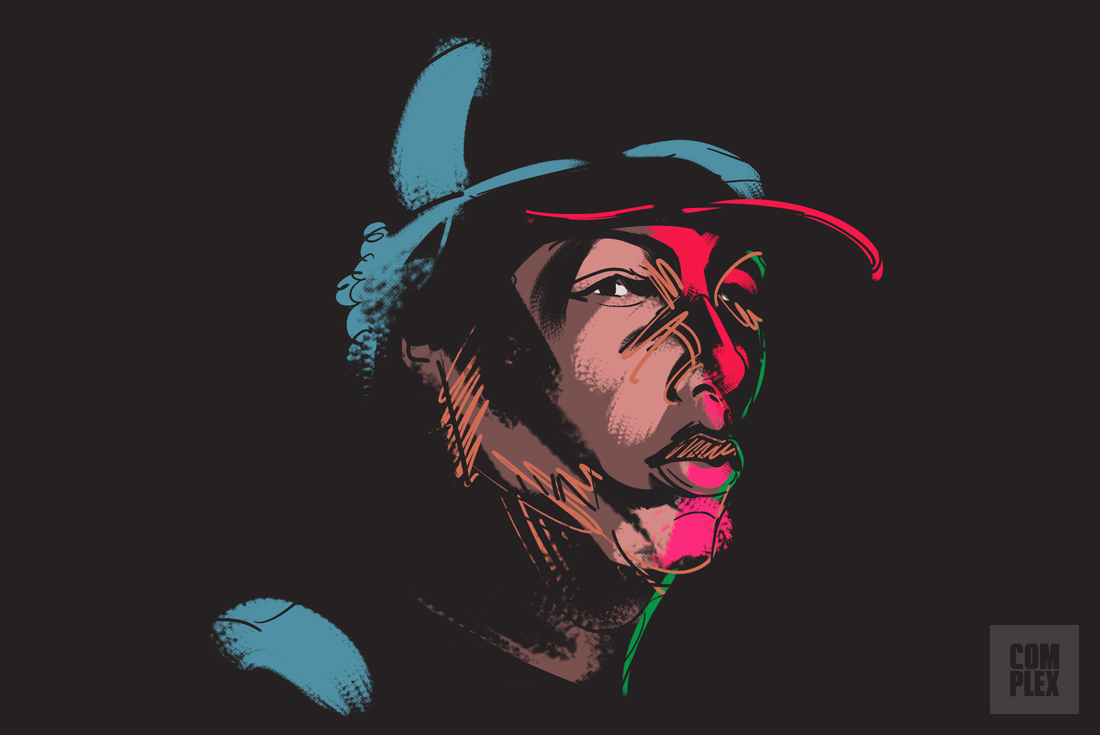
CREDENTIALS: Quik Is the Name (DJ Quik); Bitch Betta Have My Money (AMG); Skanless (Hi-C); 2nd II None (2nd II None)
In 1991, DJ Quik had one goal for his debut album, Quik Is the Name: “I just wanted to sell 10,000 copies so I could get a Jetta.” By the end of that year, he had accomplished a whole hell of a lot more.
Dr. Dre may have been largely responsible for putting L.A. rap on the map in the late ’80s, but DJ Quik was the man who made it fun. Quik, working closely with AMG, Hi-C, and the group 2nd II None, had a major hand in four albums in 1991. The combined impact would shift the sound of hip-hop forever. “Quik Is the Name introduced a new sound and style of gangster rap: a largely relaxed and feel-good one in which the protagonist focused as much on women, getting intoxicated, and having fun as he did on telling tales about the perils of life growing up in the gang-infested Los Angeles metropolitan area,” writes Soren Baker in his aptly titled book, The History of Gangster Rap.
The other three albums Quik worked on that year—AMG’s Bitch Betta Have My Money, Hi-C’s Skanless, and 2nd II None’s eponymous debut—fit in that same vein. They run the gamut from reggae to mellow jazz to Stax-style soul to funk, and that’s not to mention the “polka swing” interlude. The samples and arrangements, along with live instruments added by experts like Robert “Fonksta” Bacon and Stan “The Guitar Man” Jones, give Quik’s records a sonic texture different and more layered than the straight loops of the about-to-end Golden Age, even if he was working with a lot of the same raw materials in terms of sample sources.
Quik, everyone knew, was the mastermind. Even Kendrick Lamar, all of three and a half years old when Quik Is the Name came out, became aware of Quik’s multifaceted genius. “As a kid I never looked at Quik as just a rapper,” Lamar told Complex while praising the album. “I knew that he actually did the whole instrumentation behind it.”
Quik’s success would spawn many imitators, but no one had his ear for sound. Even Dre would end up acknowledging Quik’s one-of-a-kind talent by bringing in his Compton neighbor to do extensive work on 2Pac’s All Eyez on Me. Oh, and as for that Jetta? Well, Quik Is the Name sold half a million copies within a few months, so it’s safe to assume that DJ Quik managed to fulfill his automotive dream.
HONORABLE MENTIONS: Kay Gee/Naughty by Nature; Above the Law/Cold 187um; Ant Banks
Anyone who was sentient in 1991 knows Naughty by Nature’s “O.P.P.” was a massive, inescapable hit. The song melded the standard “Synthetic Substitution” breakbeat with the Jackson Five’s “A.B.C.” and created something far greater than the sum of its parts. The group’s primary producer, Kay Gee, deserves a large chunk of the credit (or blame) for smuggling rap songs with unprintable acronyms into middle school dances the world over. Meanwhile, Gregory “Big Hutch”/“Cold 187um” Hutchinson was busy inventing the next wave. Hutch and his group Above the Law created the sound of gangster rap in 1991, combining P-Funk grooves with streetwise lyrics on the group’s Vocally Pimpin’ EP and an album they made that year but didn’t get a chance to release until later on, Black Mafia Life. On the other side of California, a producer named Ant was belying his name by doing big things. By that point, he was already a veteran, having put out projects since the mid-’80s. Ant Banks pioneered the sound of Bay Area rap in his work with Spice 1, producing the entirety of Spice’s debut EP, Let It Be Known. The deep bass, funk-inspired guitars, and hard grooves of that project would go on to inspire the majority of hip-hop artists from the region. —Shawn Setaro
1992: Dr. Dre
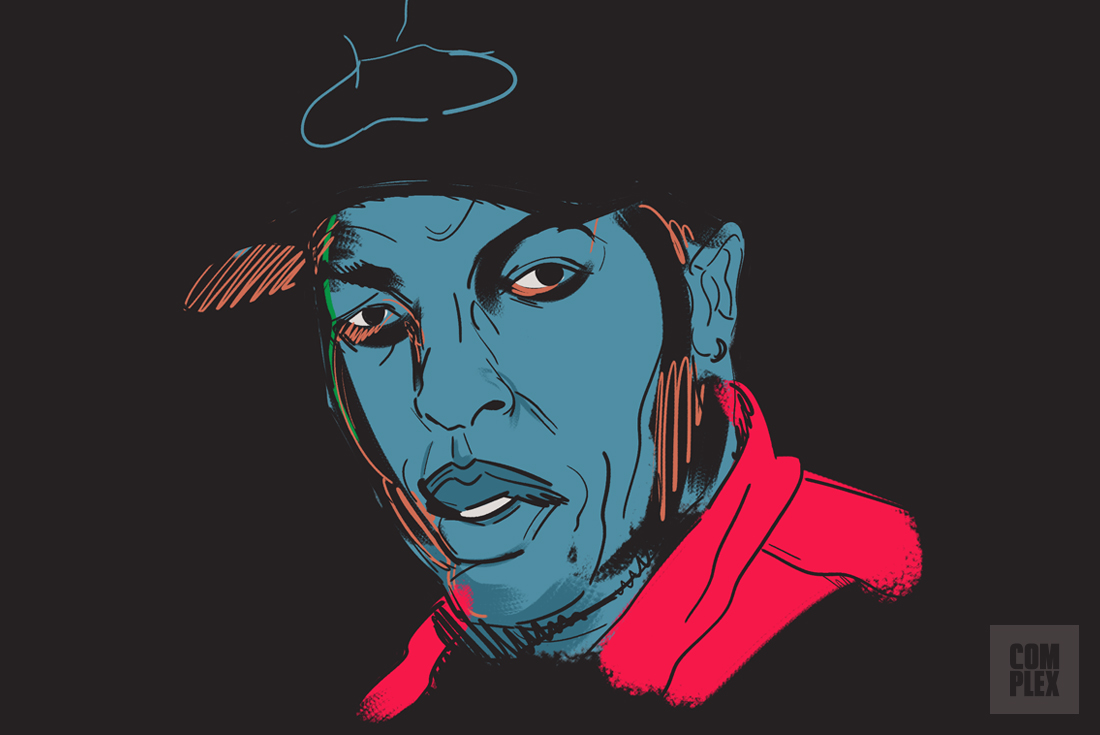
CREDENTIALS: “Deep Cover” and The Chronic (Dr. Dre)
Decades later, many people think of 1992 as Dr. Dre’s peak, but for the majority of the year, he was unemployable and sulking. Only a year before, he had produced N.W.A’s platinum sophomore album, Efil4zaggin, and in the spring of ‘92 he introduced the world to Snoop Doggy Dogg on the title track of Deep Cover. But behind the scenes, Dre and his N.W.A label boss Eazy-E were sparring over money, a situation made much worse after Suge Knight poached Dre.
Eazy-E sued, and as a result no labels (including Sony Records, which released “Deep Cover”) would touch Dre. Finally, a compromise was reached, wherein Eazy would receive a portion of his former collaborator’s sales. Dre was now free to be Dre, and in December 1992 Death Row Records released his masterpiece solo debut, The Chronic. The drama fueled the music, with Dre hurling surprise bombs at Eazy, who hadn’t planned on taking their beef public. The disses weren’t particularly distressing (“Stompin' on the Eazy-est streets that you can walk on”), but the production was pulverizing. Driven by mid-tempo Moog synthesizer beats, The Chronic was simultaneously melodic and hard-edged, and its influence changed the course of hip-hop overnight.
Dr. Dre didn’t invent G-Funk. That honor likely belongs to rapper/producer Cold 187um, who worked closely with Dre while they were both at Ruthless and produced Above the Law’s Black Mafia Life before The Chronic was made (though it was released after). Nonetheless, Dre damn sure perfected the subgenre, with The Chronic’s savvy use of George Clinton samples and the Ohio Players’ high-pitched “Funky Worm” sound. Dre’s stepbrother Warren G also deserves credit for helping create The Chronic’s sonic atmosphere, though he receives none in the album’s liner notes. The album’s other great revelation was Long Beach’s finest, Snoop Dogg, who released his blockbuster debut, Doggystyle, a year later. Dre’s personal life is impossible to defend, with four different women accusing him of beating them, but hip-hop clearly wouldn’t be the same without him.
HONORABLE MENTIONS: Muggs, Pete Rock, Diamond D
One of 1992’s most enduring rap songs is House of Pain’s “Jump Around,” which still gets the kids bouncing to this day. It was a standout moment on producer DJ Muggs’ incredible run (1992 sat right in the middle of Cypress Hill's classic first two albums), a run which also included a little-known gem he made for Ice Cube in 1992 called “Check Yo Self”—perhaps you’ve heard of it? While Dre and Muggs were forging the apocalyptic West Coast sound, Pete Rock was perfecting the peaceable East Coast alternative, reaching an early high-water mark in his career with the jazz-harvesting Mecca and the Soul Brother that he released with collaborator CL Smooth (an album that contains one of the greatest beats of all time). Meanwhile, the Bronx’s Diamond D was creating a body of work in an originalist style with the Diggin’ in the Crates Crew, including his heralded debut, Stunts, Blunts & Hip Hop. —Ben Westhoff
1993: RZA
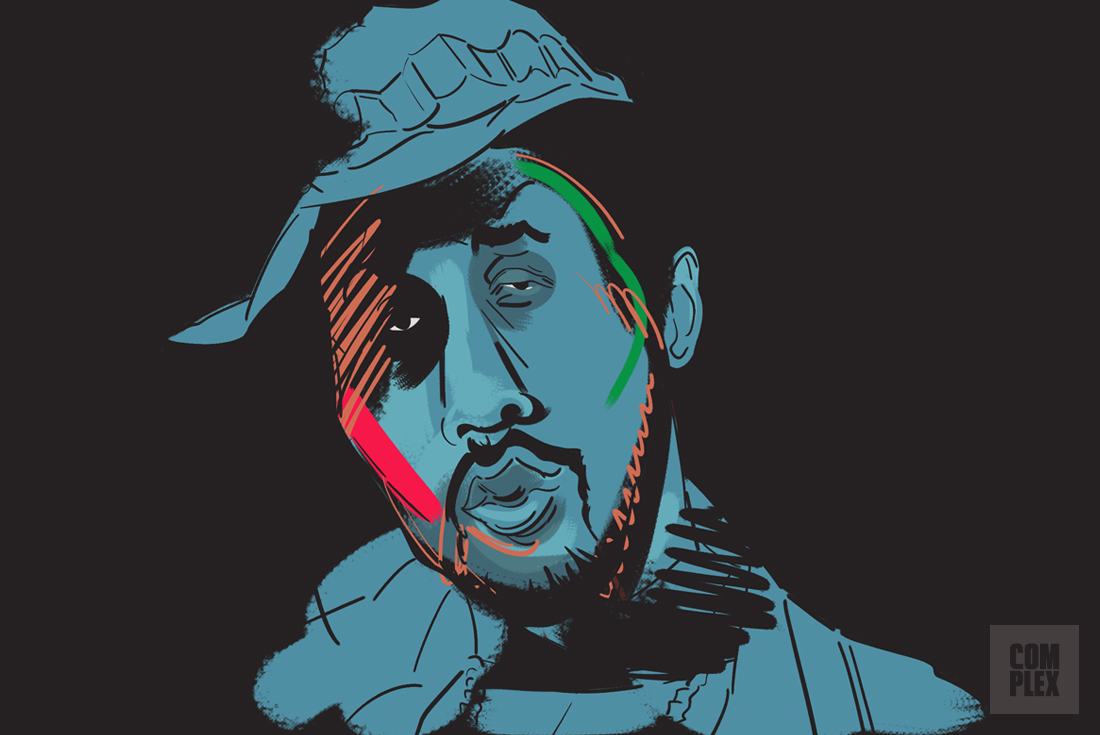
CREDENTIALS: Enter the Wu-Tang (36 Chambers) (Wu-Tang Clan)
When the Wu-Tang Clan arrived on the scene in the early ’90s, they were more than a supergroup. They represented a musical movement that changed how record deals were structured, how rap fans spoke—and, ultimately, how hip-hop sounded. The chief orchestrator of this cultural shift was Robert Diggs. Known as the RZA (f.k.a. Prince Rakeem), he crafted productions that were the backbone of the Clan’s debut opus, Enter the Wu-Tang (36 Chambers).
One of the first voices listeners hear on the album’s opening track is that of RZA on the hook, yelling, “Bring da muthafuckin’ ruckus!” And that’s exactly what he did with 36 Chambers. Full of murky, mechanical beats and soulful samples, spliced with sound bites from classic kung fu flicks, the album was like nothing rap fans had heard before. Created outside of the glossy music industry, it was the direct kick to the nuts that the game needed.
36 Chambers spawned several classic tracks that highlighted the talents of not only the group’s nine MCs, but also the mastermind behind the boards. Lead single “Protect Ya Neck” and its official B-side, “Method Man,” were bare-bones productions that showcased RZA’s less-is-more approach to beatmaking. Meanwhile, gems like “C.R.E.A.M.,” “Tearz,” and “Can It Be All so Simple” exemplified his knack for marrying dirty drum patterns with beautifully chopped-up soul samples. The latter technique planted the seeds for the chipmunk soul era of the 2000s, which is often linked to a brash young rapper/producer from the South Side of Chicago. But even Kanye West acknowledges the fact that RZA had a major influence on his production style. The second golden age of hip-hop is often pegged to 1994, but truthfully it started a year earlier, when the world was introduced to the game-changing sounds of the RZA.
HONORABLE MENTIONS: Q-Tip/A Tribe Called Quest, DJ Premier, Dr. Dre
Taking the lead on production duties for A Tribe Called Quest’s Midnight Marauders, Q-Tip was responsible for shaping the project’s brilliant soundscapes. He also managed to produce Apache’s hit “Gangsta Bitch” that year. DJ Premier has been a constant in hip-hop circles for years, consistently pulling strings behind the boards, and he had a standout year in 1993, producing Jeru the Damaja’s iconic “Come Clean,” KRS-One’s “Outta Here,” and the demo version of Nas’ “Represent.” Although Dr. Dre technically dropped The Chronic in December 1992, the album’s music reverberated throughout the following year as his G-funked singles continued to rise up the charts. That was all capped by his classic work on Snoop Doggy Dogg’s seminal debut effort, Doggystyle, which we all know was tha shiznit. —Anslem Samuel Rocque
1994: Easy Mo Bee
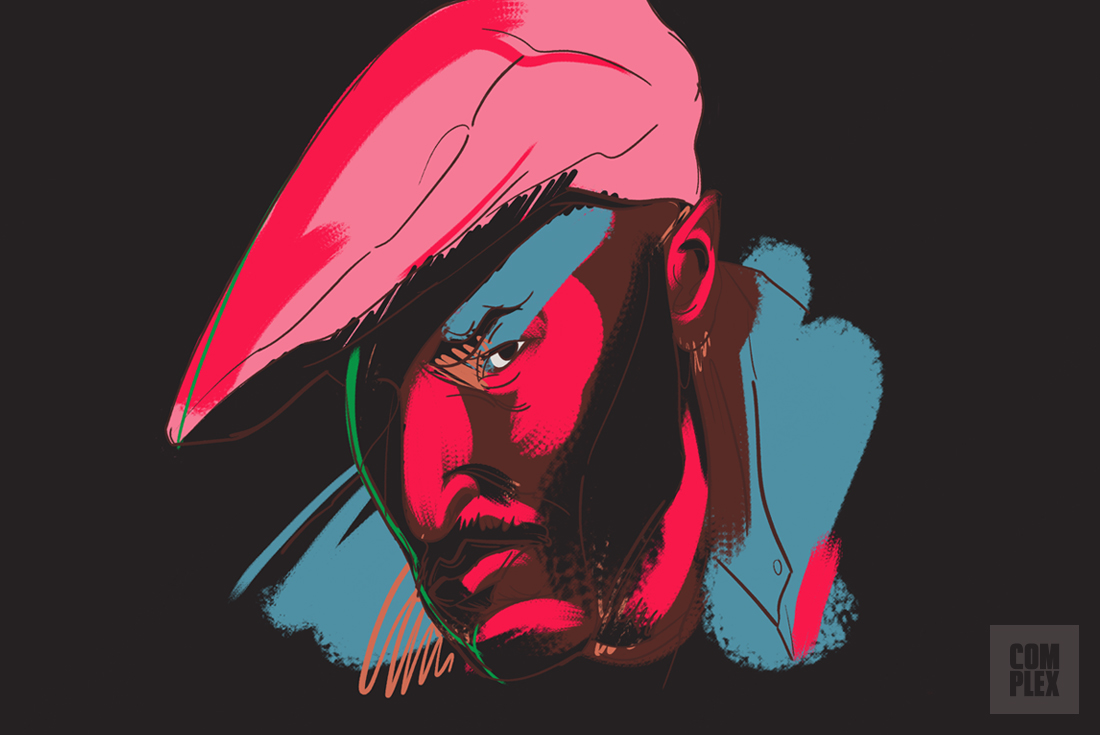
CREDENTIALS: “Flava in Ya Ear” (Craig Mack); “Gimme the Loot,” “Warning,” “The What?” (The Notorious B.I.G.)
“What’s that sound?” When Craig Mack’s “Flava in Ya Ear” blew up in the summer of 1994, one of the first questions that listeners asked was about the weird screech/scream that opens the song. For years, the popular rumor was that producer Easy Mo Bee had sampled his girlfriend’s hair dryer, but he later refuted the claim. He now admits that it is a slowed-down sample, but ask what the source is and you’ll likely just get a disarming, toothy grin in response.
Like many aspiring beatmakers of the time, Easy Mo Bee grew up in awe of Marley Marl and his SP-1200 wizardry. By ‘93, Easy ended up working with him at Cold Chillin’ Records, handling a few songs on Big Daddy Kane’s Looks Like a Job For... That same year, a new opportunity opened up at Uptown Records. One of Easy’s childhood friends from Bedford-Stuyvesant’s Lafayette Gardens, radio DJ Mister Cee, brought him over to work with a newly signed rapper out of Brooklyn: the Notorious B.I.G. Their initial collaboration produced Biggie’s debut song, placed on the Who’s the Man? soundtrack, “Party and Bullshit.” Its modest success led to Easy being invited to work on his debut album, Ready to Die.
1994 proved to be a coming-out party for Biggie, manager Sean “Puffy” Combs, Bad Boy Records, and, of course, Easy Mo Bee. While B.I.G. was still finishing Ready to Die, Easy and Craig Mack minted Bad Boy’s first smash hit with “Flava in Ya Ear.” Easy claims to have created the track in his drawers in just 20 minutes, during a morning bedroom session on his SP-1200. With its mystery screech and two-note bopping beat, the song was inescapable during the summer of ‘94, especially after the release of a remix that included bars from Biggie, LL Cool J, Busta Rhymes, and Rampage.
Until that point, Easy’s style carried traces of Marley Marl’s influence, and he admits that “Flava” was an attempt to recreate the feel of Marley’s iconic remix of Craig G’s “Droppin’ Science.” But when listeners got to hear Easy’s half-dozen tracks for Ready to Die, talk of an “Easy Mo Bee sound” began to form. The album is a tale of two production styles. Puffy, Poke, Chucky Thompson, and the Bluez Brothers handled its radio/club-friendly hits like “Juicy,” “One More Chance,” and “Big Poppa.” Then it was up to Easy to keep Biggie tethered to a blacked-out Brooklyn steez: dark, dank, and diabolical.
Like DJ Premier, who came with a key assist on “Unbelievable,” Easy’s production had a propulsive energy, felt in the aggressive swing of songs like “Gimme the Loot” and “The What?” While Primo’s tracks at the time were often sparse and jagged, Easy’s production felt full and weighty, like a riptide’s undertow. There may be no better example of that than “Warning,” where he cooks up a menacing, pulsating beat that (true to the song’s title) portends dread and danger. It’s all built from a deceptively simple one-bar Isaac Hayes loop, but like the red dots that cap the song’s coda, Easy Mo Bee showed how small touches can deliver maximum impact.
HONORABLE MENTIONS: Warren G, Mike Dean, Organized Noize
Long Beach’s Warren G introduced his self-described “G-Funk sound” to the world through hits like “Regulate” and “This DJ.” The subgenre was a reminder that, out west, artists like to roll smooth. In Houston, Rap-A-Lot producer Mike Dean enjoyed a banner year thanks to a slew of hard-hitting funk tracks that landed everywhere from Scarface’s The Diary to Big Mike’s debut album, Somethin’ Serious, to the irreverent stylings of the Odd Squad on FadanufFa Erybody. Atlanta’s rap scene emerged on the strength of the new Organized Noize crew. They couldn’t have asked for a better introduction on the heels of the debut album by a pair of East Point MCs known as OutKast. Not everyone could easily spell Southernplayalisticadillacmuzik, but thanks to Organized Noize, they knew what it sounded like. —Oliver Wang
1995: RZA
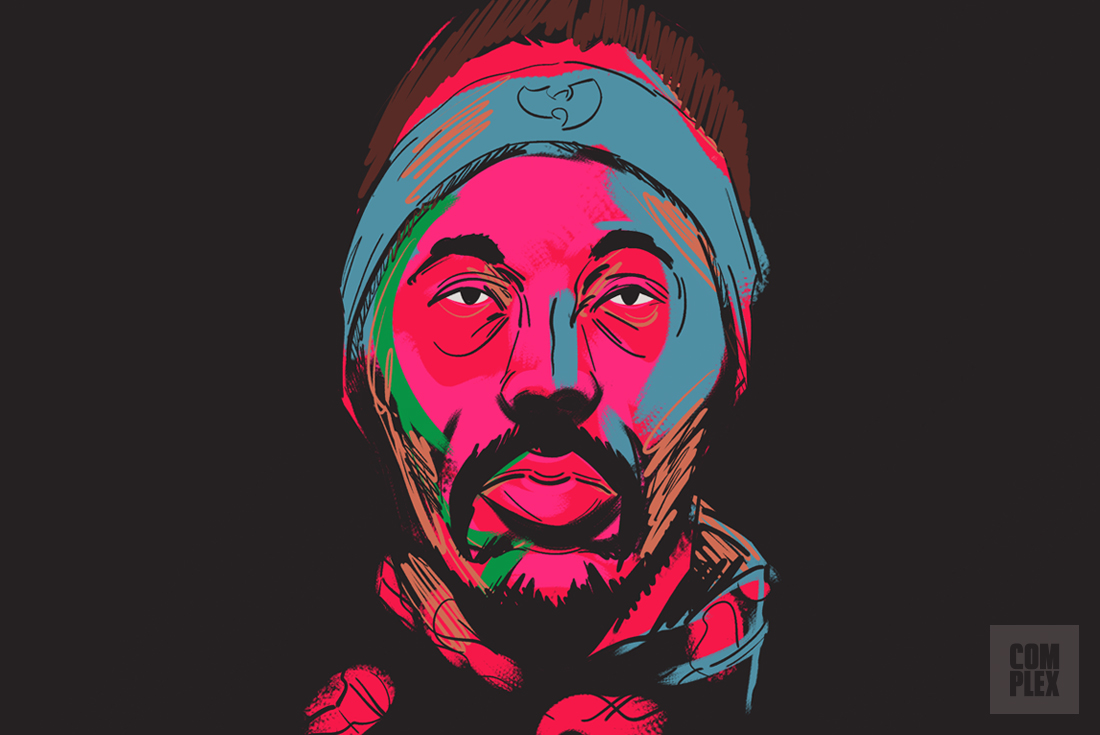
CREDENTIALS:Only Built 4 Cuban Linx… (Raekwon); Return to the 36 Chambers: The Dirty Version (Ol’ Dirty Bastard); Liquid Swords (GZA)
After the Wu-Tang Clan exploded onto the scene with Enter The Wu-Tang (36 Chambers) in 1993, RZA moved to phase two of the Wu-Tang plan: infiltrating record labels and spreading the Wu doctrine across a number of projects. With each artist able to sign his own solo deal outside of the Clan, Method Man kicked things off with his RZA-produced 1994 debut Tical—foreshadowing the three RZA-helmed solo albums released during the Wu’s 1995 run.
Raekwon’s Only Built 4 Cuban Linx… was one of the biggest releases of the year. Known to fans as “The Purple Tape” due to the translucent purple cassette it arrived in, the album found Rae establishing his own chamber, which was more closely tailored to Scarface than Five Deadly Venoms. That was no issue for the RZA, who sourced classic crime films like The Killer and Carlito’s Way to provide the glue that connected Rae’s gritty dopeboy tales and mafioso dreams to the Clan. Together, he and Rae cooked up a certified hip-hop classic.
The same can be said of GZA’s Liquid Swords, a captivating puzzle box of philosophy and street tales. Produced entirely by the RZA (save for the CD-only bonus track), the album used sounds plucked from a wide variety of sources, including New Edition, Three Dog Night, and Cannonball Adderley. RZA came up with challenging patterns and rhythms that fit the deep lyricism and coded language that the GZA penned over them. It was closer to Enter the Wu than “The Purple Tape” and provided a perfect representation of what the GZA brought to the squad.
For the RZA’s third trick, he churned out Return to the 36 Chambers: The Dirty Version, the solo debut from his and the GZA’s cousin Ol’ Dirty Bastard. RZA didn’t produce the lead single, “Brooklyn Zoo,” but he did provide the infectious piano twinkle and understated groove of standout “Shimmy Shimmy Ya.” From the subversive melodies of “Raw Hide” to the playful throwback hip-hop of “Cuttin’ Headz,” the RZA got the best out of the Wu’s biggest character.
The Wu mastermind was supremely in demand in 1995, also producing tracks for Cypress Hill (“Throw Your Set in the Air,” “Killa Hill Niggas”), the Batman Forever soundtrack (Method Man’s “The Riddler”), and Shaquille O'Neal (“No Hook”). Basically, anyone who was looking for the sound of New York hip-hop in 1995 had to holler at the RZA.
HONORABLE MENTIONS: Havoc/Mobb Deep, Da Beatminerz, Easy Mo Bee
Outside of those crafted by Robert Diggs, a number of 1995’s best rap records were coming from New York-based producers. The year saw the release of Mobb Deep’s The Infamous, which etched the Queensbridge duo into the hip-hop lexicon. The album was primarily produced by Mobb Deep, who helped introduce the world to the grittier side of New York life and what it sounds like; true hip-hop fans remember where they were when cuts like “Shook Ones (Part II)” hit them for the first time. Longtime Duck Down beatsmiths Da Beatminerz were cultivating Smif-N-Wessun’s Dah Shinin’, which birthed backpack anthems like “Sound Bwoy Bureill” and “Wrekonize.” Rounding things out on a smoother tip was Easy Mo Bee, the highly in-demand producer behind legendary material from 2Pac in ‘95 (“Temptations” and Pac’s Notorious B.I.G. collab “Runnin’ From tha Police”) and the massive Panther soundtrack posse cut “The Points,” as well as material from the Lost Boyz, Jamal, LL Cool J, and many, many more. —khal
1996: Organized Noize
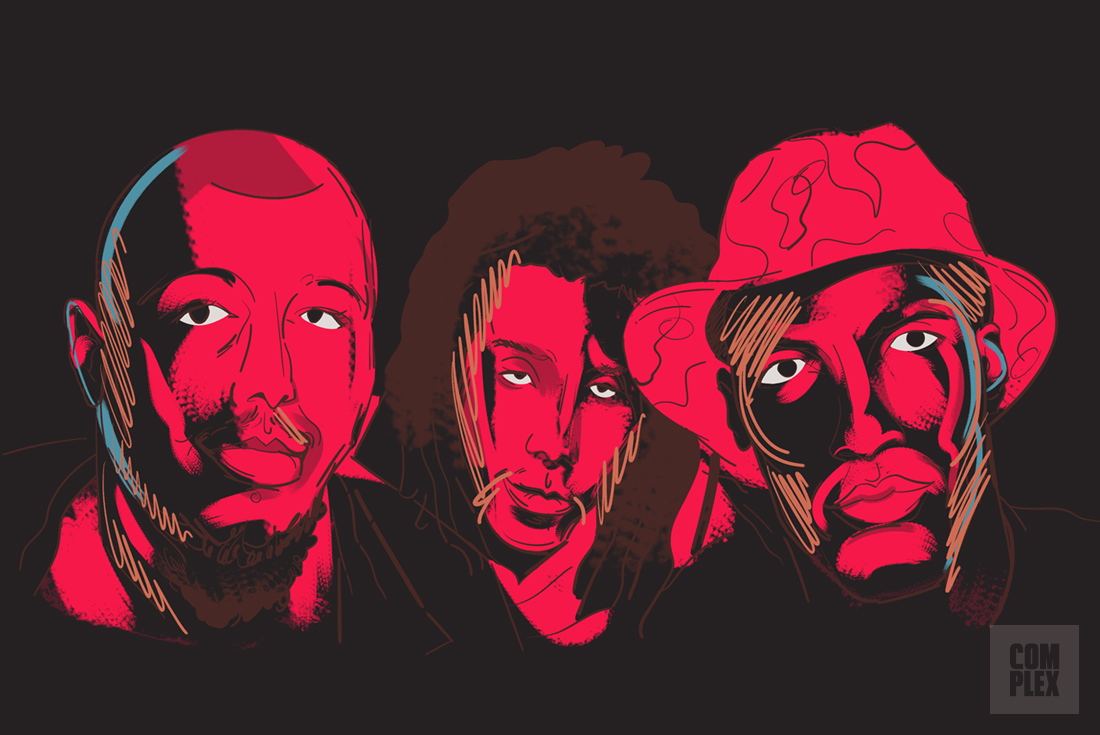
CREDENTIALS: ATLiens (OutKast)
Big Boi and André 3000 released their debut album as OutKast with Southernplayalisticadillacmuzik in 1994, but it wasn’t until ‘96 that they became their full-blown ethereal selves. With ATLiens, the duo glo’d up into the extraterrestrial force that they are revered as today and beamed down to settle comfortably in the hip-hop canon. With the assistance of Organized Noize—comprised of Rico Wade, Sleepy Brown, and Ray Murray—they were able to position themselves as an entity to be taken seriously.
Organized Noize had been cooking up beats for years as the leaders of Atlanta’s Dungeon Family, but ATLiens was the moment they became fully focused. With OutKast’s second project, the trio went to work cultivating a lush universe for Big and Dre to lose and then find themselves in. OutKast handled the production for singles “Elevators” and “ATLiens” themselves, but Organized Noize did the heavy lifting for the rest of the album.
Rico, Sleepy, and Ray crafted one of OutKast’s most powerful and memorable songs (“Jazzy Belle”) by prying into the darkest corners of their bright minds and extracting elements that would stick in listeners’ brains—like the haunting female vocals that sprawl across the hook. Even one of the most basic beats on ATLiens, “E.T. (Extraterrestrial),” is driven by a pensiveness that encourages one to pause and listen. They demonstrated that reserve again on “13th Floor / Growing Old,” the second half of which is propelled by the genius combination of a simple piano, wind chimes, and a bubbling sound effect.
As if ATLiens wasn’t enough, Organized Noize also dropped off a casual hit in 1996 for R&B-pop group En Vogue called “Don’t Let Go (Love).” For the sake of giving credit where credit is due, it’s worth mentioning that the year before, they gave TLC “Waterfalls.”
HONORABLE MENTIONS: DJ Shadow, The Fugees/Jerry Wonda, The Grand Negaz/Wizzards (The Roots)
DJ Shadow released his debut studio album Endtroducing..... in 1996. Comprised almost entirely of samples, the project varied in sound and feel, from slower, introspective tracks to shimmering, high-energy jams that influenced other beatmakers to come. Wyclef Jean, Lauryn Hill, and Pras—better known as the Fugees—joined forces with Clef’s cousin Jerry “Wonda” Duplessis in 1996 to create the group’s final full-length album, The Score. The record would go on to sell approximately a zillion copies and win a Grammy for Best Rap Album. Per Questlove, the production crew of the Grand Negaz was led by himself, Black Thought, and the late Richard Nichols. In 1996, they produced the Roots’ third studio album, Illadelph Halflife, which earned the distinction of being their toughest album yet. —Kiana Fitzgerald
1997: The Hitmen
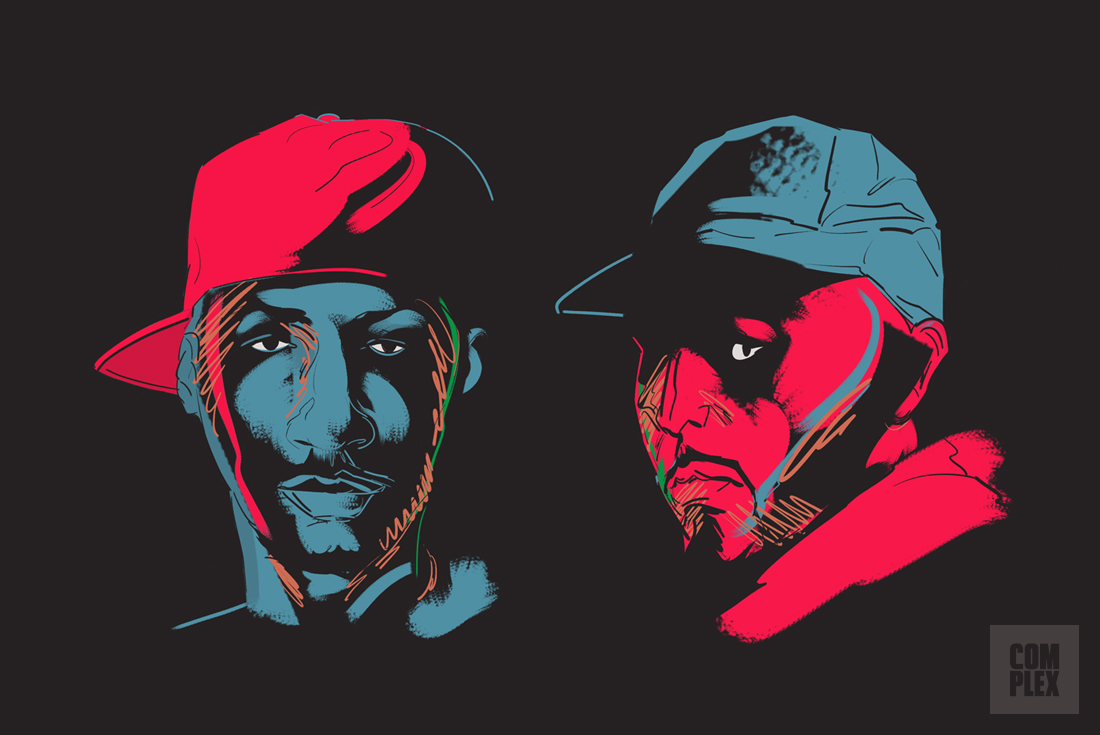
CREDENTIALS:Life After Death (The Notorious B.I.G.); No Way Out (Puff Daddy & the Family)
While the untimely murder of the Notorious B.I.G. could have signaled the end of Sean Combs’ Bad Boy imprint, the mogul instead turned up the dial and soared to new heights. Much of that success was due to the sounds coming from the Hitmen—a conglomerate of producers Combs worked with (and effectively took over rap and R&B radio with) in 1997. The squad featured the likes of Stevie J (pre-reality TV), Mario Winans, Chucky Thompson, and Nashiem Myrick, but it also included heavy hitters (no pun intended) like Deric "D-Dot" Angelettie and Ron “Amen-Ra” Lawrence, who were monstrously important in shaping the Hitmen’s sound.
If there’s a definitive example of that sound from this time period, it’s “Hypnotize.” Take a classic groove like Herb Alpert’s “Rise,” beef up the bass and make the drums knock, then get someone like Biggie to spit some Cristal-soaked lavish fantasies over it, and you have a certified hit. Sure, it was a formula, but it worked perfectly. Its legacy was surely heightened by the fact that B.I.G. was murdered a little over a week after the single’s release, but the D-Dot-and-Amen-Ra-produced song was already crushing it.
Their impressive strategy was employed on hits like Puff Daddy’s Mase-assisted “Been Around the World,” the massive posse cut “It's All About The Benjamins (Remix),” Mase’s “Feel so Good,” and the Lox’s “If You Think I’m Jiggy.” The Hitmen also got love outside of the Bad Boy imprint, with the likes of LL Cool J, Brian McKnight, Tracey Lee, LSG, and SWV linking with the group. The sound may have caused a rift in the scene (“jiggy” vs. boom-bap-y “real hip-hop”), but the Hitmen proved that rap could explode into the mainstream and they helped set Bad Boy (Combs, specifically) onto the path to greatness.
HONORABLE MENTIONS: Trackmasters, Timbaland, El-P
One outfit that came into their own in the shadow of the Hitmen were the Trackmasters (Poke and Tone), who not only produced a third of the Firm album but also put in work for JAY-Z, Foxy Brown, Allure, Will Smith, and AZ, setting themselves up for a glorious glo-up. Timbaland was cultivating his left-field rhythms with a string of hits for the likes of Aaliyah and SWV while also producing Missy Elliott’s white-hot debut album Supa Dupa Fly, as well as his Welcome to Our World album with Magoo. In the underground, the truly independent-as-fuck El-P dropped Company Flow’s opus Funcrusher Plus—producing acclaimed statements like “The Fire in Which You Burn” and “Blind,” which filled a void many hip-hoppers saw in a sea of jiggy. —khal
1998: Beats by the Pound
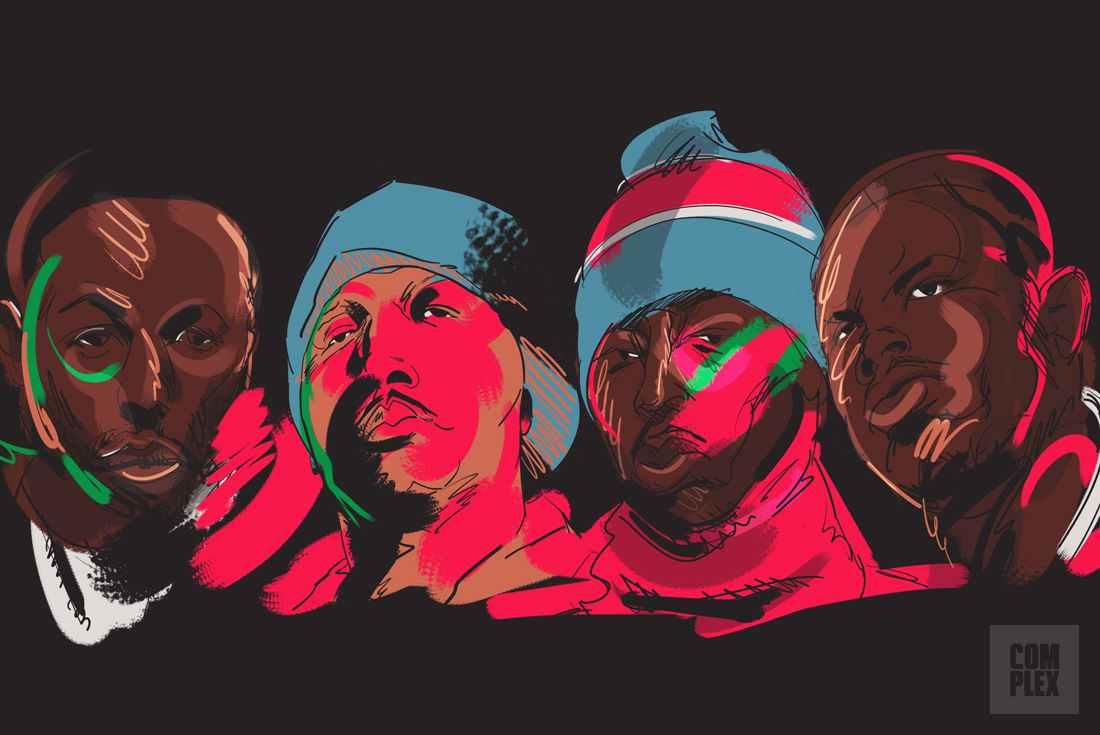
CREDENTIALS: “Make ‘Em Say Uhh!” (Master P); “It Ain’t My Fault” (Silkk the Shocker)
1998 was a productive year for hip-hop, and nowhere was that more true than with the No Limit camp. That year alone, Master P’s No Limit Records pumped out 23—TWENTY-THREE—albums. What’s even more incredible is that 15 of those projects went gold or platinum. That feat had never been accomplished by a rap label (or any independent label) before, and it might never happen again. A majority of the success can be directly attributed to the producers behind it all: Beats by the Pound.
The rappers who ended up on Beats by the Pound’s production often grew up in the jaws of New Orleans’ projects, so it only made sense that they would need menacing sounds to tell their stories over. Comprised of KLC, Mo B. Dick, Craig B, and O’Dell, the Beats crew more than delivered. Making beats suitable for pulling up on your enemy and declaring war (see: Silkk the Shocker’s “It Ain’t My Fault,” with Mystikal, and Master P’s all-star posse cut “Make ‘Em Say Uhh!,” which dropped in 1997 but was released as a single in ‘98), Beats by the Pound ushered in a new era of gangsta rap. Instead of being buried by the popular and bombastic rap pumping out of the East and West coasts, it existed alongside the work from those regions.
Beats by the Pound also made time for hood hymns like “The Ghetto’s Got Me Trapped” from Master P’s Da Last Don. With almost two dozen projects released in one year, including the critical failure but commercial success that was Death Row escapee Snoop Dogg’s Da Game Is to Be Sold, Not to Be Told, Beats by the Pound were the engine that kept the No Limit tank pressing forward. Working on nearly every album the label released, they were an assembly line of unprecedented consistency. They would leave No Limit the following year, due to a financial dispute, but 1998 remains a historical time for the crew.
HONORABLE MENTIONS: Mannie Fresh, Dame Grease, Swizz Beatz
Beats by the Pound weren’t the only producers making noise in the South in 1998. Mannie Fresh deserves a mention this year because of his work on Juvenile’s 400 Degreez. Lead single “Ha” featured a gritty quasi-bounce vibe, which Juvenile used to display a flow unlike anything rap fans had heard before. Mannie also produced his own debut project that year: How You Luv That, a collaboration with Birdman as the Big Tymers. Meanwhile, Dame Grease had a major hand in bringing DMX’s debut album, It’s Dark and Hell Is Hot, into the world. With singles like “Get at Me Dog” and unforgettable concept songs like “Damien,” Grease displayed an ability to lock in with one artist and successfully pull them into a diverse range of soundscapes. Swizz Beatz also worked with DMX in 1998 on his second album of the year, Flesh of My Flesh, Blood of My Blood. The inescapable hit “Ruff Ryders’ Anthem” marks one of Swizz’s most visible moments as a producer. When you add JAY-Z’s “Money, Cash, Hoes” and N.O.R.E.’s “Banned From TV” on top of that, things just get ridiculous. —Kiana Fitzgerald
1999: Dr. Dre
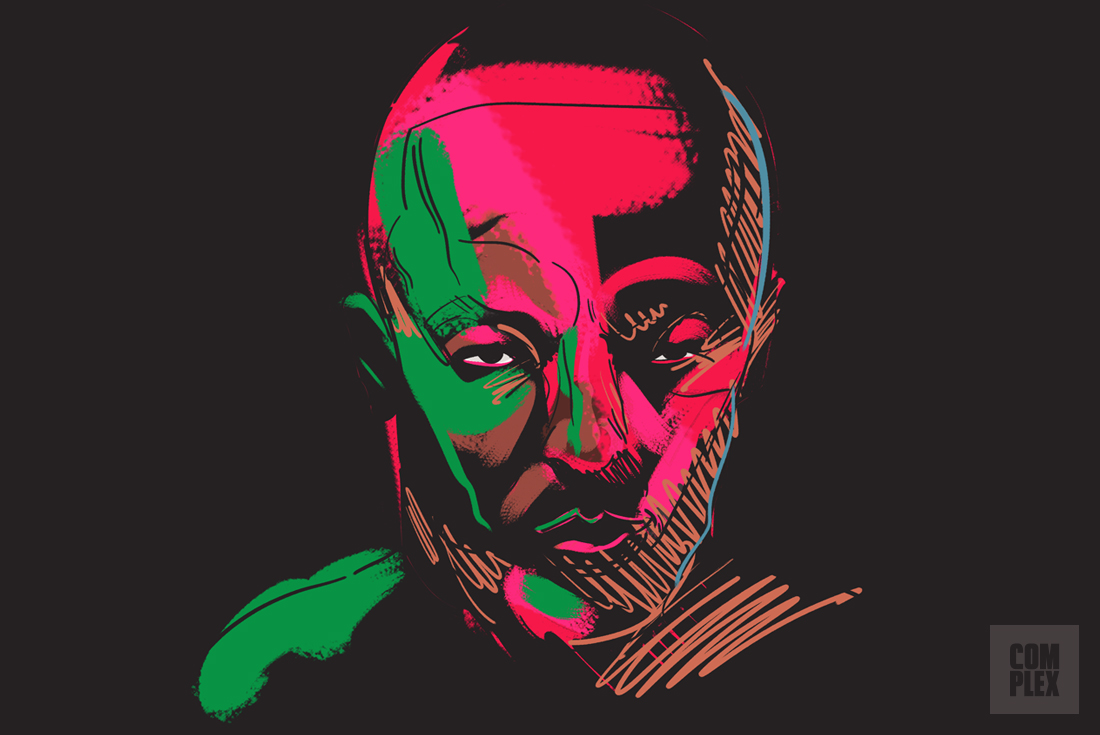
CREDENTIALS:The Slim Shady LP (Eminem); 2001 (Dr. Dre)
After the Firm flopped and an Aftermath compilation failed, Dr. Dre seemed left for dead. How could this be? How could the man behind N.W.A, Death Row, The Chronic, and Snoop Dogg fall off this hard? Then, as Dre’s creative juices were dwindling, one of the greatest rappers ever fell into his lap, when a former Interscope intern gave Jimmy Iovine a copy of Eminem’s Slim Shady EP. While Dr. Dre was visiting Iovine’s house, the then-Interscope CEO played it for him. Immediately taken aback, Dre told his former label boss to find the kid rapping on the tape.
Once Dre met Eminem and played him the beat for “My Name Is,” they knew they were right for each other. The white rapper from Detroit who everyone thought was going to be a novelty act lit a fire under Dre, and in turn the good doctor gave the rap world The Slim Shady LP and 2001 in the same year. Dre Day was back; 1999 was the very beginning of his journey to a billion dollars, and signing Eminem gave his label, Aftermath, the star it so desperately needed.
Even more impressive is how different those albums sounded. 2001 was Dre’s long overdue follow-up to 1992’s generational classic The Chronic, built around an updated G-funk sound. On Eminem’s debut, meanwhile, Dre favored thick bass and piano samples as he laid down crisp production under Em’s rhymes. The latter album made Eminem the white rapper that all white rappers would be compared to until the end of time (for better or worse) and established him as a global superstar for years to come.
The Slim Shady LP and 2001 sold a combined 10 million albums by the end of 2000. Finally, Dr. Dre had found his new Snoop Dogg in Eminem. The duo would go on to sell millions, establish Em’s Shady Records, and venture into businesses outside of rap, including films, clothing, and headphones.
HONORABLE MENTIONS: Mannie Fresh, Swizz Beatz, Timbaland
I wanted Mannie, with his layered drums and synthesizer sounds, to win this so badly, but ‘98 was his big year. Still, the Cash Money producer managed to give us three hits in B.G.’s “Bling Bling,” Lil Wayne’s “Tha Block Is Hot,” and Juvie’s “U Understand.” Those credits are definitely something to write home to your moms about. Swizz Beatz had himself a year in ‘99 as well, producing the grossly underrated “Memphis Bleek Is…” and the bulk of Ryde or Die Vol. 1 (with an emphasis on “Down Bottom” and “Jigga My Nigga”). We didn’t give him the year because while Swizz had a sound—one recognizable enough that rumors arose that he was sued by Casio—in hindsight, it was a bit repetitive.
Timbo was on a run, too. He produced the Lox’s “Ryde or Die, Bitch,” Missy’s “She’s a Bitch” and “Hot Boyz” (plus the rest of Da Real World), JAY-Z’s “Big Pimpin’” and “Is That Yo Bitch,” and Ginuwine’s “So Anxious”—all of which felt like dispatches from a not-so-distant future, complete with crazy drum patterns and otherworldly sounds. 1999 was a great fucking year for producers. —Angel Diaz
2000: Earthtone III
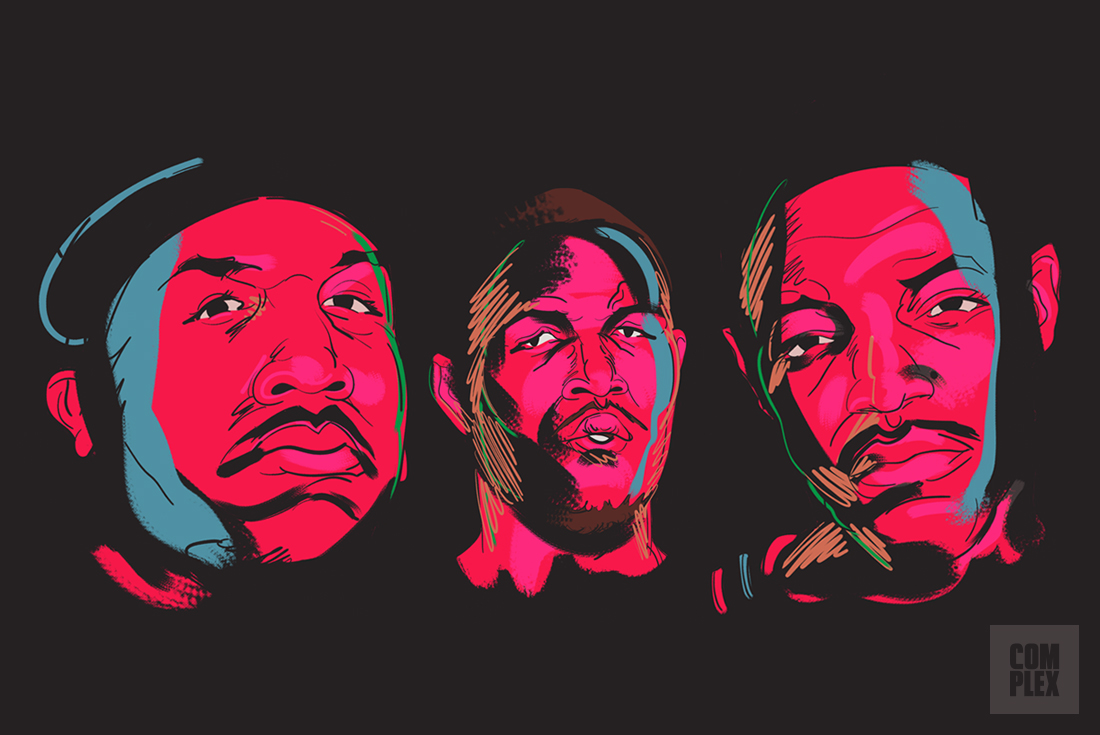
CREDENTIALS: “Ms. Jackson,” “B.O.B.,” and most of Stankonia (OutKast)
No resource was more precious at the turn of the century than time. Earth as we knew it was meant to collapse. The binary code we’d so intricately arranged to prop us out of the primordial ooze was to betray us, the clock was ticking, and there was nothing we could do about it. Of course, a pack of ATLiens wouldn’t necessarily see things the same way. In 1999, while humanity stockpiled canned goods and candles, Dre and Big Boi went out and bought a studio. Owning a space to record in freed them from the constraints of time. Dre told Vibe in 2000 that it allowed OutKast to feel like they were “not working on the clock.” (Dre went so far in flouting the doomsday scare that he skipped forward a full millennium, rechristening himself André 3000 because he was “tired of all that Y2K bullshit.”)
OutKast dubbed the space Stankonia and went to work on an album of the same name. Handling production duties on almost all of the project’s 24 tracks was Earthtone III, a unit consisting of André 3000, Big Boi, and Mr. DJ, a cousin of Rico Wade who’d begun as OutKast's DJ before evolving into an associate producer. While the production trio first came together for the 1996 single “Elevators,” it wasn’t until 2000 that Earthtone III emerged from the collective shadow of the Dungeon Family’s talented producers to redefine OutKast's sound.
The first single from Stankonia, “B.O.B.," signaled just how far left the group was willing to go. If the studio that birthed it was (as Big Boi and Dre believed) possessed by the spirit of previous owner Bobby Brown, it’s not hard to imagine a ghost rattling away on an MPC while under the influence of the controlled substances favored by its corporeal counterpart. Yes, the group was already moving on up in the world by the year 2000, but their prior noise was perhaps too organized to take full advantage of their skill set. Here, it was oozing, molten, doused in gasoline (don’t everybody like the smell?), and run in reverse. The last of these adjustments proved to be the most commercially cunning one, with “Ms. Jackson” flipping a sample from the Brothers Johnson and squeezing from that reflection an all-time great love song, boasting more emotional depth than most chart-toppers can muster.
While Big Boi, Dre, and Mr. DJ appeared to be about as concerned with space as they were with time in creating Stankonia—that is to say, not very—the album shifted hip-hop's landscape. Atlanta’s place on the map was now outsize, and the city’s sustained dominance wouldn't have been possible without the huge leap forward that OutKast and Earthtone III made on the seminal album. (The production company also managed to assist some fellow Southerners, tossing New Orleans a dose of its swollen funk by landing three production credits on Mystikal’s 2000 album Let’s Get Ready.) The South always had something to say, but on Stankonia, through the efforts of Earthtone III, it managed to ensure that the world would make time to listen. Forever. Forever ever? Forever ever.
HONORABLE MENTIONS: Dr. Dre, J Dilla, The Alchemist
Dr. Dre's 2001 (confusingly released in 1999) was so massive that its singles “Forgot About Dre” and “The Next Episode” hung around for a significant portion of 2000. Dre was not prepared to rest on those laurels, though. After reinvigorating West Coast rap the year before, he helped reinvent the very notion of what a rapper could be in 2000 with his contributions to the The Marshall Mathers LP—Eminem’s violent masterpiece that had the Caucasian rapper at the top of his game. On the less psychotic end of the spectrum, Dilla gave Common new life (no Resurrection) by holding down production duties on Like Water for Chocolate. A turn-of-the-century tip of the cap is also in order for Alchemist, who linked up with Prodigy on H.N.I.C., a disc that caused incidents of people being assaulted with TVs to skyrocket. Crazy. —Brendan Dunne
2001: Kanye West
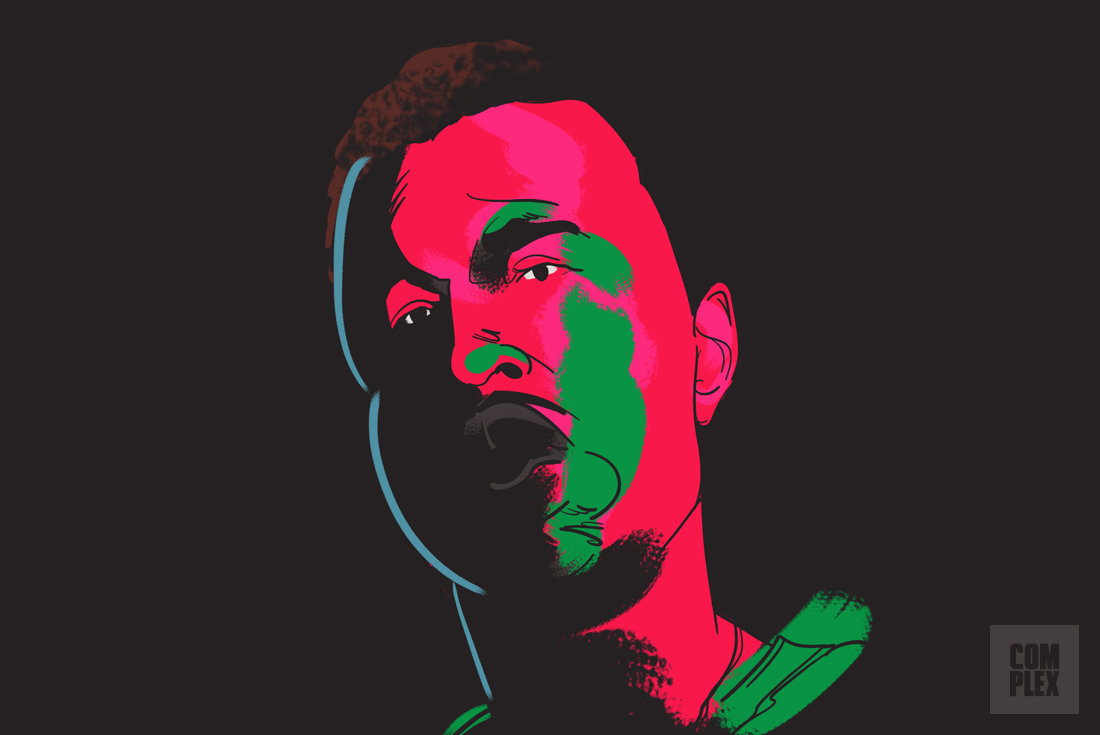
CREDENTIALS: The Blueprint (JAY-Z)
How serious was Kanye West in 2001? On the eve of an unparalleled run, ‘Ye displayed a tattoo listing songs he’d produced in the video for “Izzo (H.O.V.A.),” the lead single from JAY-Z’s The Blueprint.
The buildup toward that album began early in the summer, when JAY shared an XXL cover with Beanie Sigel. In the accompanying story, Hov explained that his next release would be an homage to the soul music he grew up on. A relatively unknown Kanye was among the names conscripted to engineer that sound. Along with “Izzo,” famously built around a loop from the Jackson 5’s “I Want You Back,” ‘Ye produced “Heart of the City (Ain’t No Love)” and “Never Change”—the bulk of the more soulful side of The Blueprint. The Chicagoan was also the beatsmith behind “Takeover,” which saw JAY excoriate Nas and Prodigy over a chopped-up sample from The Doors’ “Five to One.”
Beans connected with Kanye that summer, too. The Philly spitter opened The Reason with “Nothing Like It,” which relied on a sample from the Dynamic Superiors’ “Ain’t Nothing Like the Real Thing.” Deeper in the tracklist, ‘Ye was credited on “Gangsta, Gangsta,” a song that tipped its hat to the West Coast in title and hook, which featured Kurupt.
In the nearly 20 years that followed, ‘Ye’s production would morph into something his early ‘00s self might not recognize. But at the time, he was the king of so-called chipmunk soul—even if, as he’s readily admitted, the RZA pioneered the sound more than half a decade earlier.
HONORABLE MENTIONS: The Neptunes, Just Blaze, El-P
No production team seemed more ubiquitous than the Neptunes in 2001. If you needed a single, you went to them. So it was no surprise that some of the biggest songs of the year—Jadakiss’ “Knock Yourself Out” and Mystikal’s “Bouncin' Back (Bouncin’ Me Against the Wall)”—featured Pharrell Williams and Chad Hugo’s then-trademark sound. And that’s to say nothing of Fabolous’ “Young’n (Holla Back),” which dropped in ‘01 but rang out in early ‘02. At the same time, Just Blaze delivered a series of bangers, including Beanie Sigel’s “Beanie (Mack Bitch)” and—from The Blueprint—JAY’s “U Don’t Know,” with its booming Bobby Byrd sample. On the less commercial tip, El-P laced Cannibal Ox, among others from Definitive Jux, with his spaced-out boom-bap beats. The Cold Vein still holds up. —Lucas Wisenthal
2002: The Neptunes
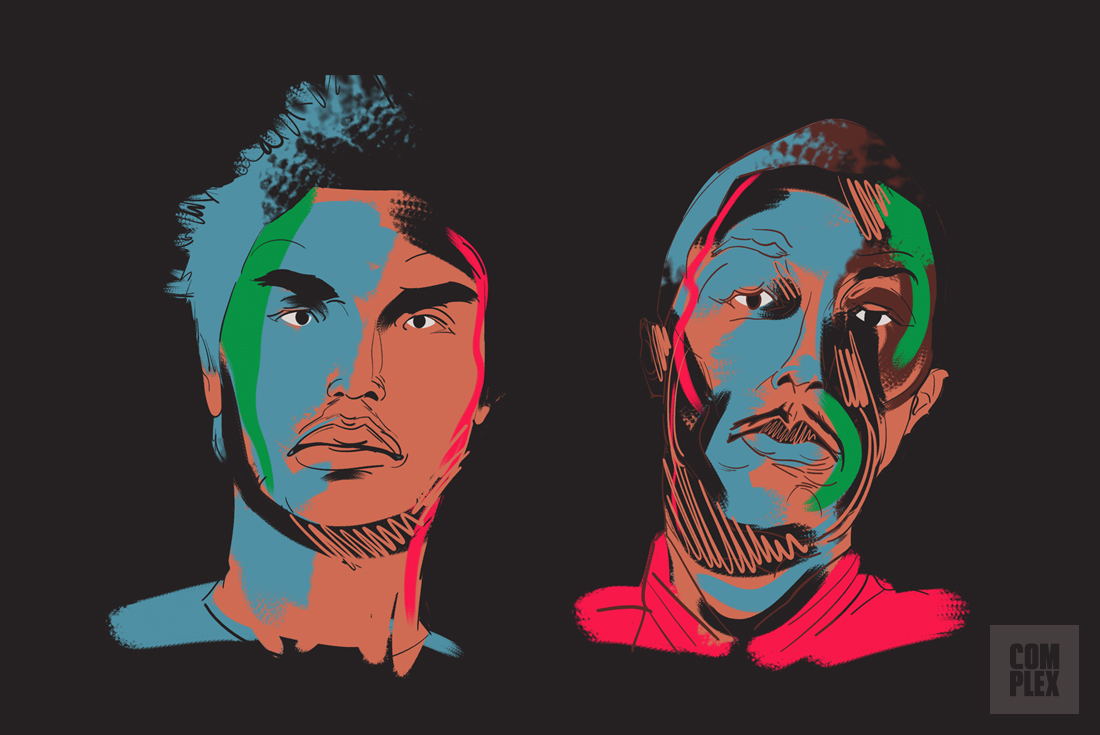
CREDENTIALS: Justified (Justin Timberlake); Lord Willin’ (Clipse)
The Neptunes were no strangers to rap by the early 2000s. The production duo of Chad Hugo and Pharrell Williams had been building up credits for years, but there was something about the climate of music at the time that turned 2002 into one of the most explosive twelve months for a production unit in recent memory.
Looking back, it’s difficult to pin down exactly what made them truly blow up. They’d dropped the N*E*R*D album, In Search Of..., in the spring of 2002, with hits like “Rockstar,” which served as an anthem for fans of a more alternative hip-hop sound. Meanwhile, clubs were rocking to cuts like N.O.R.E.’s “Nothin’,” with its Middle Eastern flair, or their remix of NSYNC’s “Girlfriend.” That remix featured Nelly, whose Neptunes-produced “Hot In Herre” shot up to No. 1, going two-times platinum during its reign. It might have also been Busta Rhymes’ “Pass the Courvoisier Part II” (which was released the year before but became ubiquitous in ‘02), which became one of the rapper’s truly massive smash hits.
But two albums with huge Neptunes stamps on them hit in 2002. The first was Justin Timberlake’s debut solo record, Justified. Timberlake was always a fan of rap and R&B, and since the Neptunes dominated the radio, it made sense that he’d call on them to produce a number of songs for his debut, including lead single “Like I Love You” and the dance hit “Rock Your Body.” The second album was Clipse's debut, Lord Willin’, which truly put the Virginia dope pushers on the map. Their seminal anthem, “Grindin,’” was unique in a “Sucker M.C.’s” vein, where the drums are so knocking and infectious that the beat doesn’t need much else. Hits like “When the Last Time” and “Ma, I Don’t Love Her” followed, and turned into collabs like the aforementioned “Like I Love You” for Timberlake and Birdman’s “What Happened to That Boy.”
That’s not to mention other songs released in 2002, like JAY-Z’s “Excuse Me Miss” and Snoop Dogg’s “Beautiful,” both of which had bigger impacts when they came out as singles in 2003, but still showed just how progressive and vital the Neptunes’ sound was the previous year.
HONORABLE MENTIONS: Just Blaze, Kanye West, Eminem
You can’t talk about 2002 without mentioning the tear Just Blaze was on. After contributing to The Blueprint and establishing himself as one of Roc-A-Fella’s in-house producers, he crafted massive moments like Freeway’s JAY-Z and Beanie Sigel-featuring “What We Do,” as well as a slew of other classics from the R-O-C, including Cam’ron’s “Oh Boy” and the iconic Beanie/Freeway duet “Roc the Mic.” In a similar bag was Kanye West, who spent 2002 working with Scarface (“Guess Who’s Back”), JAY-Z (“A Dream,” “03 Bonnie & Clyde”), and Talib Kweli (“Get By”), as well as Trina, the polymath then known as Mos Def, and more. Eminem was also building himself up to be more than just your favorite rapper, producing everything from Obie Trice’s “Rap Name” and Nas’ “The Cross” to the bulk of his now-diamond-selling fourth album, The Eminem Show. And, to top it off, the world’s only Rocky-style ode to mom’s spaghetti, “Lose Yourself.” —khal
2003: Lil Jon
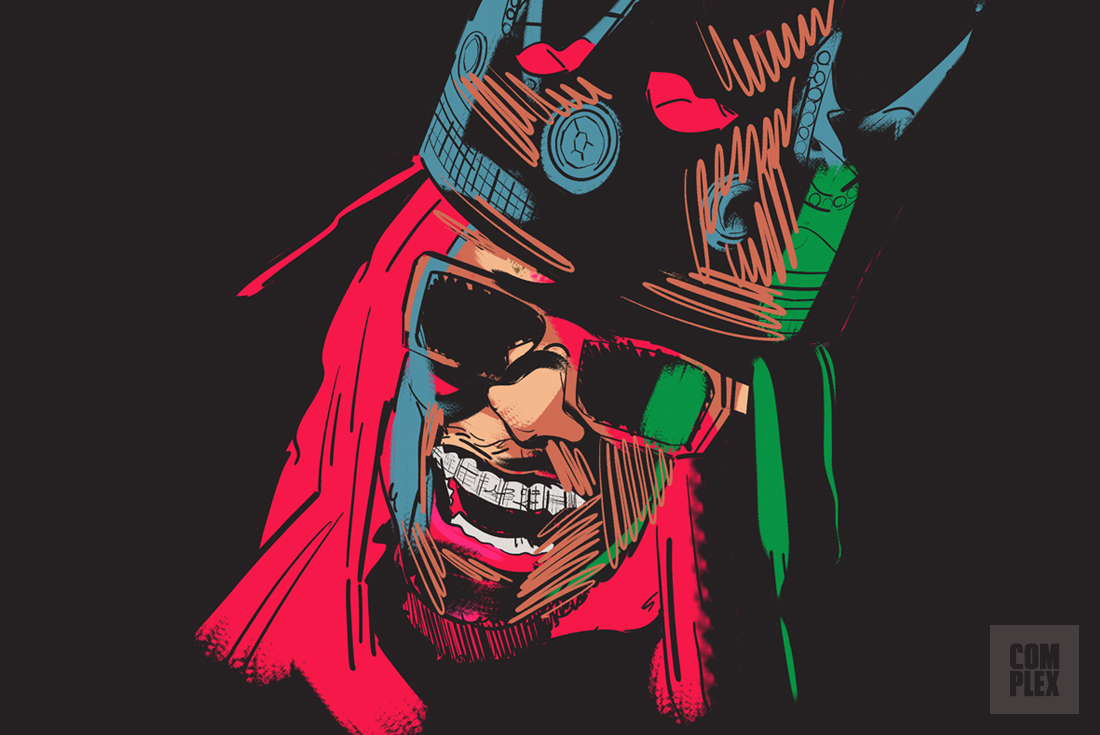
CREDENTIALS: “Get Low” (Lil Jon)
By 2003, the South was clearly poised to take over, but the region was without a dominant sound. No Limit had faded, the halcyon days of Cash Money had passed, and Houston’s fleeting time on top was still two years away. So, for that matter, was the blip that was snap music.
Enter Lil Jon. For more than half a decade, the Atlanta native had been peddling songs he (and two of his album titles) called “crunk.” His production combined basic, pounding drum patterns with intense 808 handclaps, synths, and whistles. Punctuating the above were Jon’s signature ad-libs: an exaggerated (and, thanks to Dave Chappelle, immortal) “yeah,” “what,” and “OK.” It was music engineered for the club, and, starting with “Get Low,” it rang out for most of the year.
Holding a chalice and screaming about sweat dripping from his balls, Lil Jon was 2003’s cartoonish answer to Uncle Luke. More conventional MCs added another dimension to his beats. Later in the year, YoungBloodZ dropped “Damn!,” a single that saw groupmates Sean P and J-Bo ride a bouncy iteration of the producer’s sound. And, further north, Nas recruited him to produce and help deliver the hook for “Quick to Back Down,” the lone single from the Bravehearts’ first album. While the song could have been billed as Lil Jon featuring Bravehearts, it couldn’t salvage the disc. But that’s a conversation for another list.
Did some of these tracks (and the ones that followed them) sound a lot alike? That’s debatable. But for a moment, before trap eclipsed almost every other Southern production style a few years later, Lil Jon ran the region.
HONORABLE MENTIONS: Heatmakerz, Kanye West, Just Blaze
Lil Jon owned the clubs, but the Heatmakerz owned the streets. Their sound—which, with its sped-up soul samples, owed a debt to Kanye West—served as the foundation of the Diplomats’ Diplomatic Immunity. At the same time, ‘Ye himself was on a heavy run, producing “Lucifer” and “Encore” from JAY-Z’s The Black Album and showing his range on beats for Freeway, T.I., Fabolous, Ludacris, and more. Just Blaze also contributed songs to what JAY billed as his final release, including “Public Service Announcement (Interlude),” which paired his booming signature sound with Dick Gregory’s “Moral Gap.” Just worked with Dipset, too, delivering the Uptown anthem “I Really Mean It” and borrowing from Starship for “Built This City,” something the Harlem crew boasted to have done “on rock.” —Lucas Wisenthal
2004: Kanye West
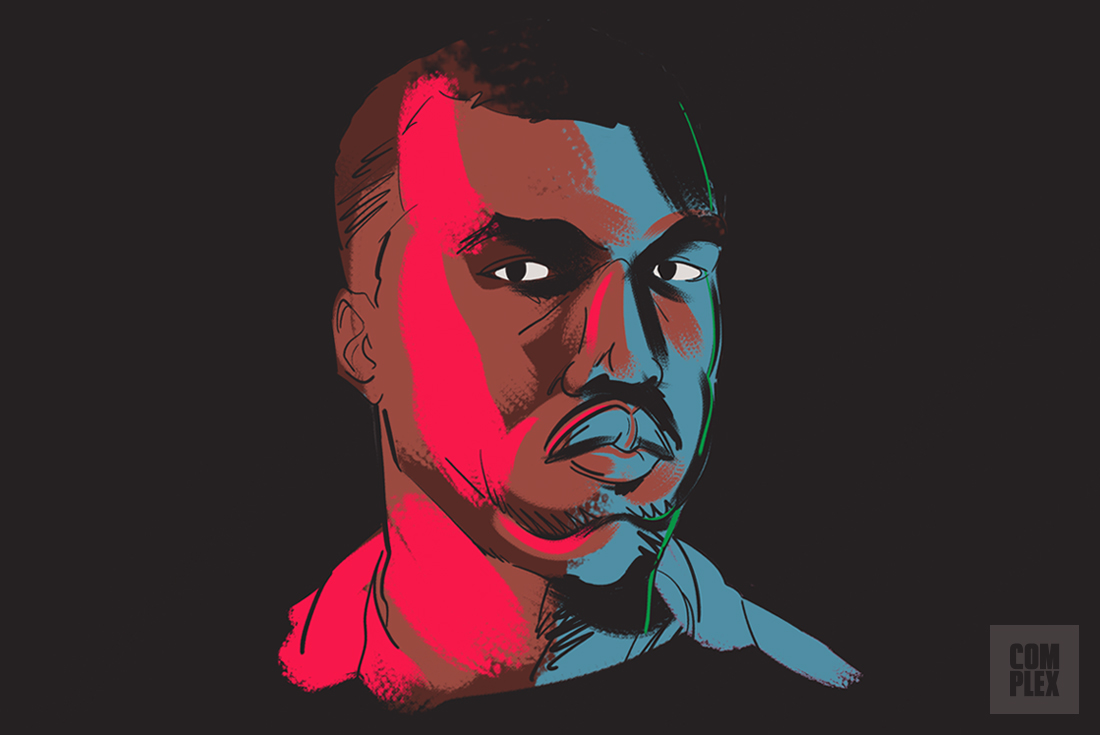
CREDENTIALS: The College Dropout (Kanye West)
When Kanye West said, “I miss the old Kanye, chop-up-the-soul Kanye” in 2016, he was talking about 2004. As most of us know by now, he stepped into the game as a producer first, and that facet remains the most prominent part of his artistic character. His debut studio album, The College Dropout, demonstrated his obsession with digging through crates to find the most soul-penetrating samples possible. The album was our introduction to the pure musicality that exists within the flesh and bones of Kanye, a kind of hip-hop talent that hadn’t appeared before (and hasn’t appeared since).
Kanye's production was undeniable enough for him to present direct and somewhat unconventional thoughts about his blackness, his arrogance, and his aspirations to a wide audience. From the daunting sincerity of “Jesus Walks” to the bouncy vibes of “Get Em High,” ‘Ye walked purposefully in his production and kept his debut album unpredictable.
In addition to “Jesus Walks,” Kanye put forth singles including “All Falls Down,” with R&B singer Syleena Johnson interpolating Lauryn Hill, and “The New Workout Plan,” which featured carefully produced tongue-in-cheek commentary and of-the-moment violinist Miri Ben-Ari. In both situations, Kanye made it a point to let the artistry of his guests build on top of the work he had already laid down. It was an early signifier of ‘Ye’s soon-to-come Gepetto-style project orchestration. Also of note: “Slow Jamz” first appeared in late 2003 as a single for Twista’s Kamikaze before popping up as a single from The College Dropout in 2004. The song would go on to become the first No. 1 single for both Kanye and Twista, as well as actor-singer-comedian-anything-is-possible-celebrity Jamie Foxx.
HONORABLE MENTIONS: The Neptunes, Mannie Fresh, Salih Williams
Via Snoop, the Neptunes released “Drop It Like It’s Hot” in 2004. Need I say more? The duo also produced the entire N*E*R*D album Fly or Die. Additionally, they worked their magic on some pivotal non-rap tracks—namely Kelis’ bombshell single “Milkshake” and Gwen Stefani’s genre-less “Hollaback Girl.” Mannie Fresh’s contention for best producer of 2004 comes down to his work on Lil Wayne’s Tha Carter. From the omnipresent “Go DJ” to the sleeper album cut “Earthquake,” Mannie was able to manifest his own sounds as well as arm himself with flips of songs that had long been established as cultural staples. He also released a solo album that year, which reminded us that he had a big, you know, house. Last but not least, in every sense of the phrase, Salih Williams put a whole new scene on the map with just his own two. By the grace of a higher power (and an old hook from Slim Thug), the producer crafted Mike Jones’ “Still Tippin’,” a song that put Houston and its laid-back appeal on display in such a significant way that it still causes reverberations in Southern hip-hop today. —Kiana Fitzgerald
2005: Kanye West
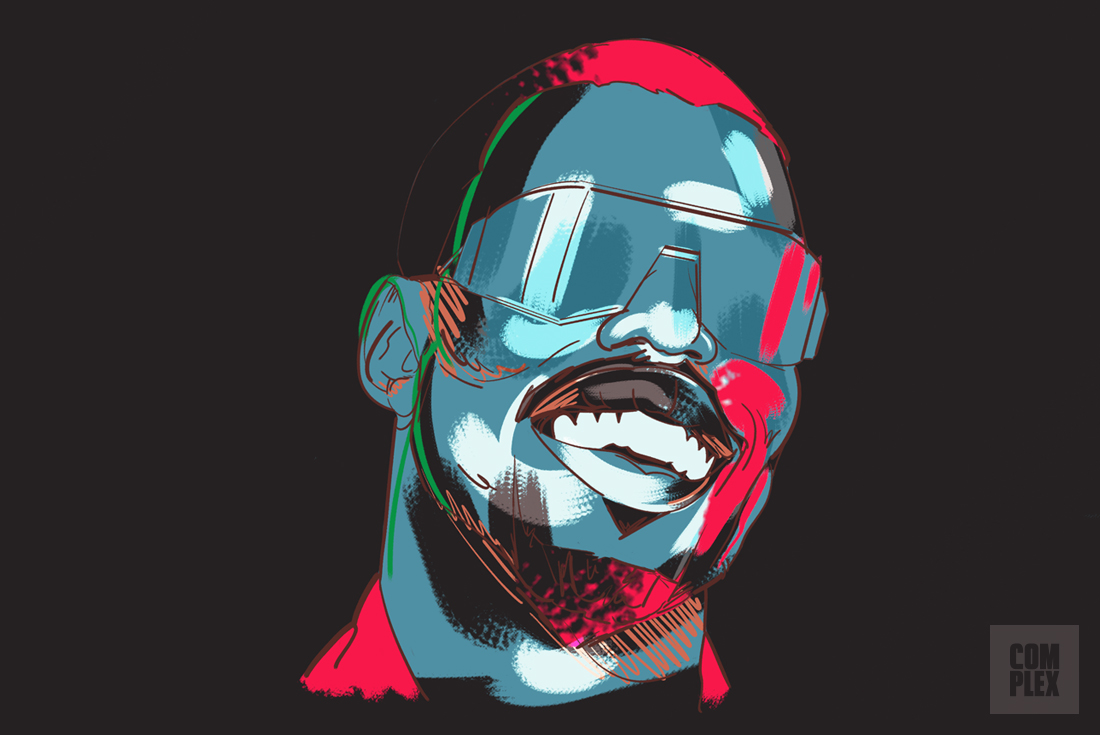
CREDENTIALS: Be (Common); Late Registration (Kanye West)
Most successful producers looking to solidify a budding rap career would save the best beats for themselves. But before releasing his own self-produced sophomore album, Late Registration, Kanye West let Common get first dibs on tracks for his comeback project, Be. The result was 11 straight bangers that reinvigorated the seasoned veteran, who raised his lyrical pedigree to match the jazzy and drum-heavy concoctions ‘Ye laid down for him. From the trunk-rattling thump of “The Corner” and “The Food” to the soothing sonics of “Faithful” and “Love Is,” it was a sharp contrast to Common’s previous effort, the disjointed and critically panned Electric Circus. Be was something different, something better, and because of Kanye’s tight production, something classic.
The odds of lightning striking the boards twice in a single year would be slim for an average producer, but this was Kanye West, a man who lives to do what’s never been done. Three short months after the release of Be, Kanye was back at it with another collection of beats for Late Registration that would turn hip-hop on its collective head. More focused and polished than its predecessor, the album further cemented Kanye’s position as a top-notch rapper and producer. Topically, he was sharper than ever, and the same could be said of his production.
Dropped in the bygone era of physical releases, Late Registration compelled listeners to scour liner notes just to look up samples. It was a crate digger’s manual in unearthing forgotten gems from the past and reimagining them to be something greater. Hank Crawford’s “Wildflower” became the foundation for the syruppy Southern stunner “Drive Slow”; Otis Redding’s “It’s Too Late” was injected with heavy drum work for the uptempo posse cut “Gone”; and the Whatnauts’ “I’ll Erase Away Your Pain” was sped up to become the soulful “Late.”
It took just a few listens of Late Registration to hear that Kanye had not only orchestrated his second classic solo album in a row (thanks in part to actual orchestrations from Jon Brion), but also his second classic of the year. Along with a dozen other choice tracks he spearheaded over the course of 2005, Kanye proved why he’s the only artist with the skill and dexterity to comfortably occupy real estate on both Complex’s Best Rapper Alive and Best Hip-Hop Producer Alive lists—multiple times, at that.
HONORABLE MENTIONS: Just Blaze, Shawty Redd, DJ Paul and Juicy J
Just Blaze had been on a hot streak since the turn of the century, and that held true in ‘05, when he blessed everyone from Fat Joe (“Safe 2 Say [The Incredible]”) and Beanie Sigel (“Bread and Butter”) to Kanye West (“Touch the Sky”) and JAY-Z (“Dear Summer”) with heat. He also gave game to the Game on his debut with “Church for Thugs” and “No More Fun and Games.” The only thing hotter than the beef between Jeezy and Gucci Mane in 2005 was their music, and both of them had Shawty Redd to thank for many of the beats that powered their respective debut discs, Let’s Get It: Thug Motivation 101 and Trap House. Meanwhile, after existing on the fringe of hip-hop for years, Three 6 Mafia finally cracked through in ‘05 with the release of Most Known Unknown. Produced entirely by DJ Paul and Juicy J, the album spawned standouts like “Stay Fly," “Poppin’ My Collar,” and “Side 2 Side.” But the biggest highlight came when they dropped the Oscar-winning “It’s Hard Out Here for a Pimp,” from the Hustle & Flow soundtrack. —Anslem Samuel Rocque
2006: Toomp
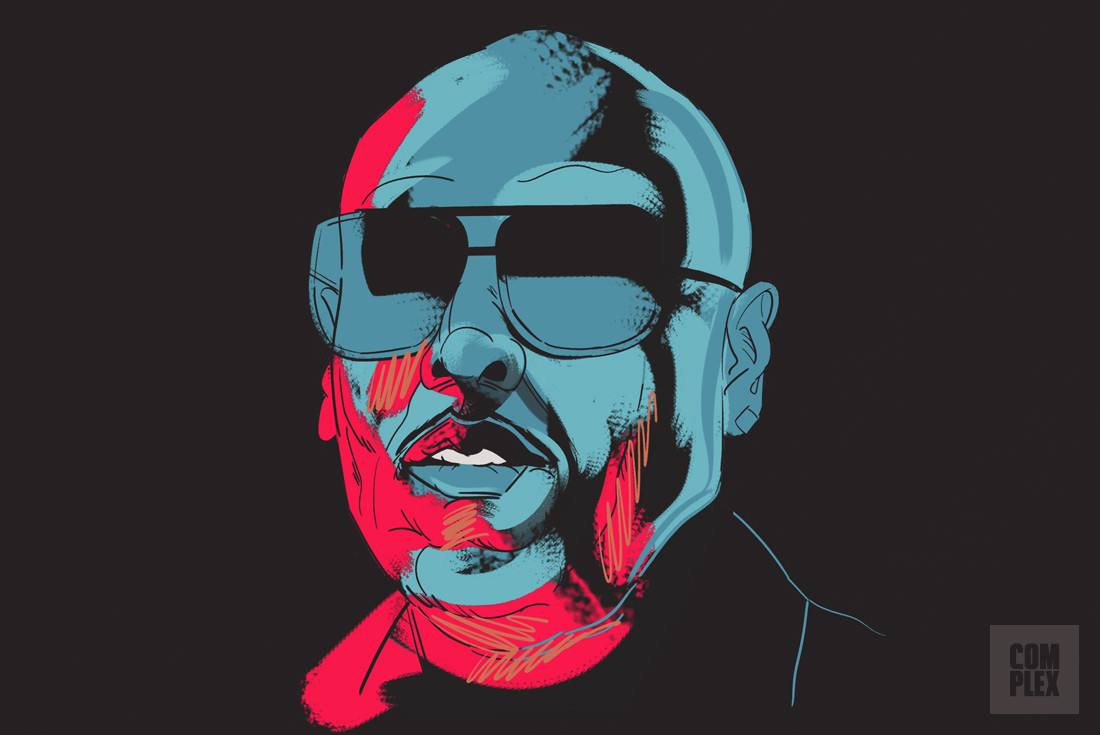
CREDENTIALS: “What You Know” (T.I.); “I Luv It” (Jeezy)
From the moment he set foot in the music industry as a teenager, DJ/producer/songwriter/label owner Toomp had been a busy man. Then in 2006, his career exploded on the strength of two major songs.
Released in January, T.I.’s Toomp-produced “What You Know” started the year off audaciously as the lead single from the rapper’s fourth studio album, King. Toomp borrowed the foundation of the track from Roberta Flack’s 1969 rendition of the Impressions’ “Gone Away,” composed by Leroy Hutson, Donny Hathaway, and Curtis Mayfield. Toomp admitted that he originally wanted to simply loop the Flack sample, but it didn’t quite come out like he intended. So he was pushed to recreate it himself, with the help of his engineer, Wonder Arillo. The result was a song that moved like a soul record but hit hard enough to make you screw your face up every time you hear it.
“What You Know” helped pushed T.I. from a scrappy street rapper to an untouchable crossover MC when it peaked at No. 3 on the Billboard Hot 100 and earned both Toomp and T.I. their first Grammy for Best Solo Rap Performance. The song also served as a final fuck you to Lil Flip, who T.I. had long been beefing with over the King of the South title. While T.I. had edged Flip out in terms of popularity and success, the single was the nail in the beef’s coffin: T.I. was the undisputed king.
In November 2006, Jeezy released “I Luv It,” also produced by Toomp. The song had an energy that was so magnetic that it spawned numerous remixes—the most popular of which came straight from the best rapper of ‘06: Drought 3-era Lil Wayne (“I’m Blooded”).
While Toomp also worked with commercial rap artists like Ludacris and Pitbull during this time, his placement as the top producer of 2006 stems directly from the ubiquity of “What You Know” and “I Luv It.” Both songs were big enough that they launched Toomp into a position to work with JAY-Z and Kanye West, the upper echelon of 2007 rap. T.I., meanwhile, maintained his ascent and continued to make marketable yet authentic street anthems.
HONORABLE MENTIONS: J Dilla, Cool & Dre, The Neptunes
On February 10, 2006, J Dilla died after suffering complications from a rare blood disease. Just three days prior, the deeply revered producer dropped Donuts, widely considered one of the most influential instrumental hip-hop albums of all time. He spoke through sample-based loops, piecing together a larger narrative of short stories. With Donuts, Dilla showed just how much you can do with a little curiosity and a lot of ingenuity. Cool & Dre had two distinct slappers in 2006: DJ Khaled’s “Holla at Me,” featuring Lil Wayne, Paul Wall, Fat Joe, Rick Ross, and Pitbull, and Juvenile’s “Rodeo.” The former was larger than life at its core, and the latter was damn near a slow jam, putting Cool & Dre’s production versatility on full display. The Neptunes were all over the map in ‘06. They pumped out Billboard chart-toppers like Ludacris’ flamboyant Pharrell-assisted “Money Maker” and produced under-the-radar loosies like Jeezy’s string-based mixtape cut “Rumor Has It” (also featuring Pharrell). They used 2006 to help lift up frequent collaborators Clipse with the trunk-rattling “Mr. Me Too.” As if that weren’t enough, they also dabbled in the R&B/pop world with Beyoncé’s “Green Light” and “Kitty Kat,” both standout tracks on the singer’s B’Day album. —Kiana Fitzgerald
2007: Kanye West
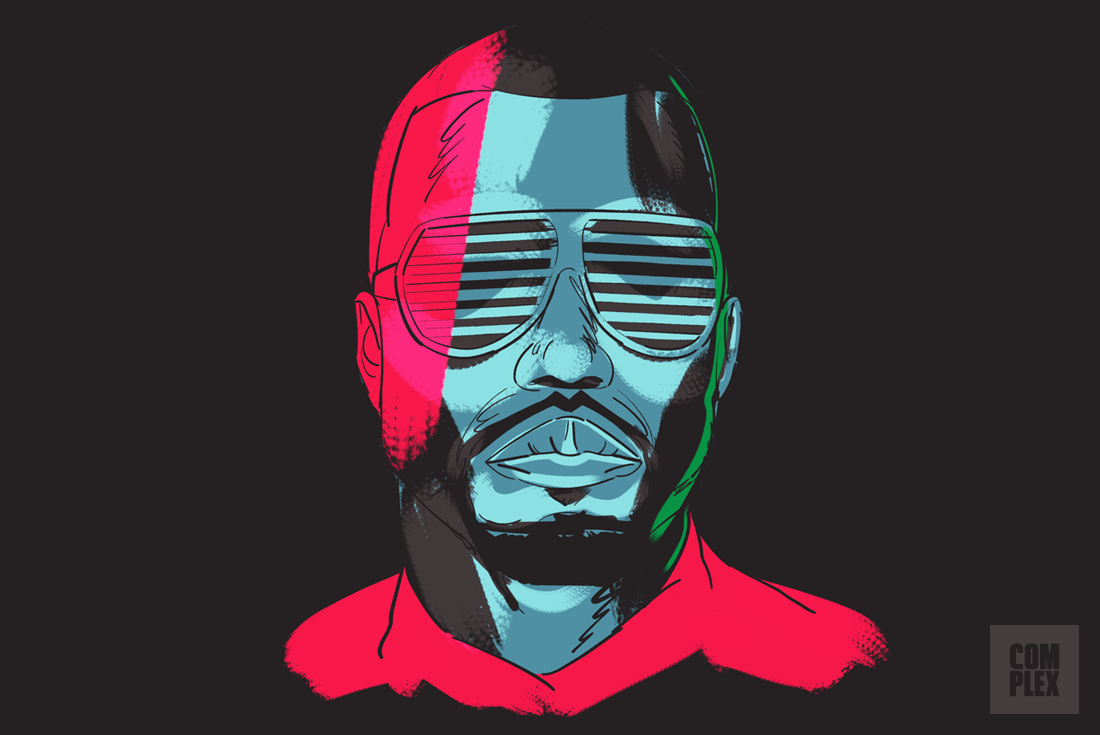
CREDENTIALS: Graduation (Kanye West); Finding Forever (Common)
In 2007, the stars aligned for Kanye West, who on top of emerging as the year’s best rapper also delivered unmatched work from the production end. At the core was Graduation, which ushered in a “stadium status” sound inspired by his time on the road with U2. That vision came to life on the album, where Kanye successfully embraced genres and stylistic elements outside of his normal repertoire.
His chart-topping single “Stronger” blended rap with electronic music, a rare occurrence for mainstream hip-hop at the time (though it has decades-old precedents), while “Flashing Lights” brought a futuristic vibe that was a far cry from “Through the Wire.” ‘Ye didn’t completely abandon the chipmunk soul on Graduation—“The Glory” is still a standout moment—but he truly excelled by layering the sound of his music to create a grandiose experience. Take “I Wonder,” a song Kanye described as his version of U2’s “City of Blinding Lights,” which included a beautiful string arrangement, moving synth lines, and thunderous drums that made it a simultaneously intense and inspiring listen. ‘Ye also came through with “Can’t Tell Me Nothing,” a street anthem that knocked accordingly; kept things joyful on “Good Life”; and achieved stadium status on “Good Morning.”
While there was less traditional-sounding hip-hop on Graduation, Kanye had that real shit locked and loaded for Common’s Finding Forever. He contributed eight beats to the 12-track project, including a boom-bap salute on “The Game,” raw production for “Southside,” and a soulful nod to J Dilla with “The People.” All told, Kanye’s production in 2007 led to nine nominations and four awards (for Graduation, “Stronger,” “Southside,” and “Good Life”) at the following year’s Grammys. It’s downright disrespectful that he wasn’t nominated for Producer of the Year, Non Classical, though.
HONORABLE MENTIONS: The Runners, Soulja Boy, Exile
While Kanye was focused on reaching stadiums in 2007, Orlando’s The Runners were laying down club-ready anthems that shot up the charts. Longtime friends Andrew "Dru Brett" Harr and Jermaine "Mayne Zayne" Jackson laced DJ Khaled and company with a Top 20 Billboard hit, “I’m so Hood,” before delivering heat for Jeezy, T.I., and Rick Ross. Meanwhile, Soulja Boy was the unlikely breakout star of 2007. The teenage rapper/producer’s debut album, Souljaboytellem.com, leaned heavily into the Southern snap music style, and it was his self-produced single “Crank That (Soulja Boy)” that turned him into a household name. The accompanying dance helped the FruityLoops-made hit reach No. 1 on the Billboard Hot 100, making it a quintessential viral hit before viral hits became the norm a decade later. Out West, Exile linked up with Blu to create Below the Heavens, a gem of a project that showcased the Los Angeles producer’s crate-digging abilities. The album became a rap classic that solidified Exile’s status as a go-to producer for the Left Coast’s underground scene. —Edwin Ortiz
2008: Drumma Boy
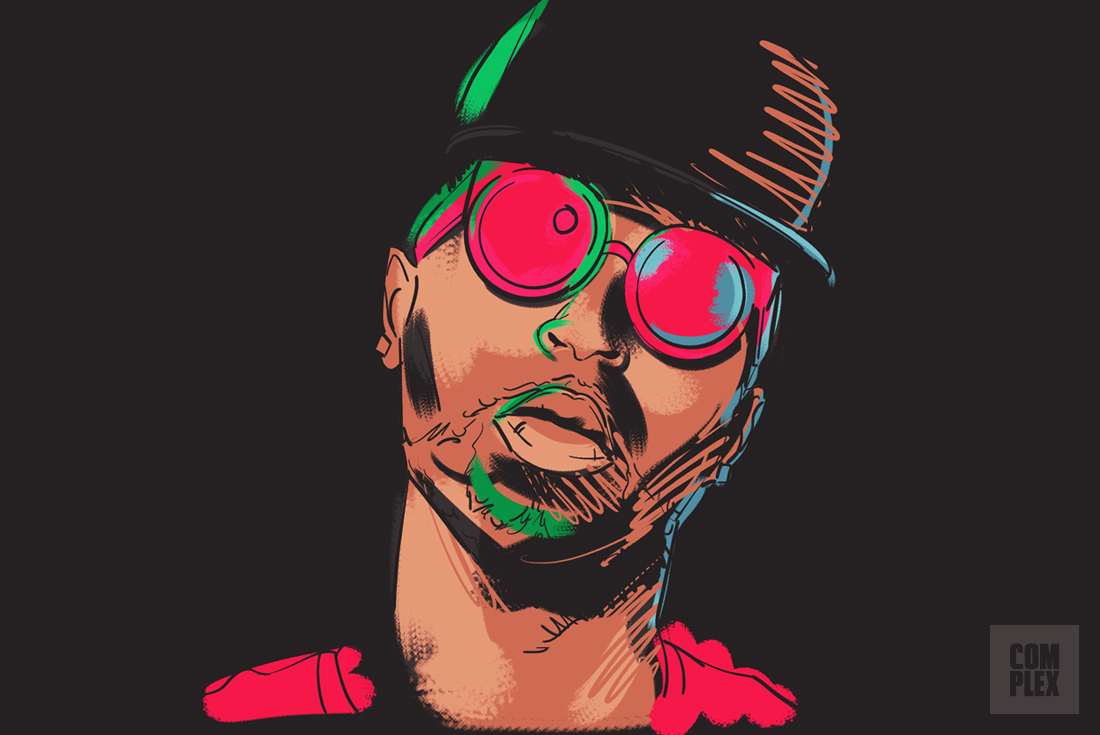
CREDENTIALS: “Put On” (Jeezy); “What Up, What's Haapnin’” (T.I.)
By the late 2000s, trap music had a firm grip on hip-hop, with its early adopters getting plenty of work. That included Tennessee-born, Atlanta-bred Drumma Boy, whose 2008 credits looked like an all-star Rolodex of the South. The producer’s most notable contribution came in the form of “Put On,” the lead single from Jeezy’s The Recession, which featured a classic Kanye West verse drenched in Auto-Tune.
“I made that specifically for Jeezy, literally in my kitchen,” Drumma Boy told Complex in 2010. “I knew it was a wrap, the way the boom drops. It's like a movie as soon as you push play.” His cinematic description of “Put On” is apt, considering the song’s heart-pounding bass kicks and Halloween-esque haunting keys, along with a melody that sounds like a UFO flying overhead. The record reached double-platinum status and earned a Grammy nomination, not to mention remixes from the likes of Lil Wayne, Ludacris, and Rick Ross. The big homie JAY-Z even gave it his seal of approval when he hopped on the official remix.
Drumma Boy rounded out his work on The Recession with two other trap anthems—"Hustlaz Ambition” and “Amazin’”—and kept that same energy with Jeezy’s then-foe Gucci Mane, producing a majority of The Movie. He then connected with T.I. for “Ready for Whatever” and “What Up, What's Haapnin'” off Paper Trail, the latter positioned as a diss aimed at Shawty Lo. Plies (“Plenty Money”), Rick Ross (“Here I Am”), Gorilla Zoe (“Lost”), and Soulja Boy also called up the producer for his Midas touch.
HONORABLE MENTIONS: Bangladesh, Jim Jonsin, Kanye West
All three runner-up picks for 2008 produced on Lil Wayne’s Tha Carter III, but that’s where the similarities end. In Bangladesh’s case, look no further than “A Milli.” The 808-heavy beat was the perfect backdrop for Wayne’s raw, no-hook approach. The Iowa native also worked on gems like Dem Franchize Boyz’s “Talkin’ Out da Side of Ya Neck!” As far as commercial dominance goes, Jim Jonsin is your guy. “Whatever You Like” (T.I.) and “Lollipop” (Lil Wayne) spent a combined 12 weeks atop the Billboard Hot 100 in 2008, while Soulja Boy’s “Kiss Me Thru the Phone” reached No. 3. Meanwhile, Kanye West provided two beats on Tha Carter III: “Comfortable” and the snare/808/sample-based bravado of “Let the Beat Build.” Aside from the work he did for other rappers—which included Game, 88-Keys, and the T.I. posse cut “Swagga Like Us”—‘Ye’s most noteworthy production came on 808s & Heartbreak. Stylistically, it was an abrupt departure from his early sound, as he used electropop and melancholic melodies that would provide a blueprint for a crop of new rappers in the late 2000s and beyond. —Edwin Ortiz
2009: Noah “40” Shebib
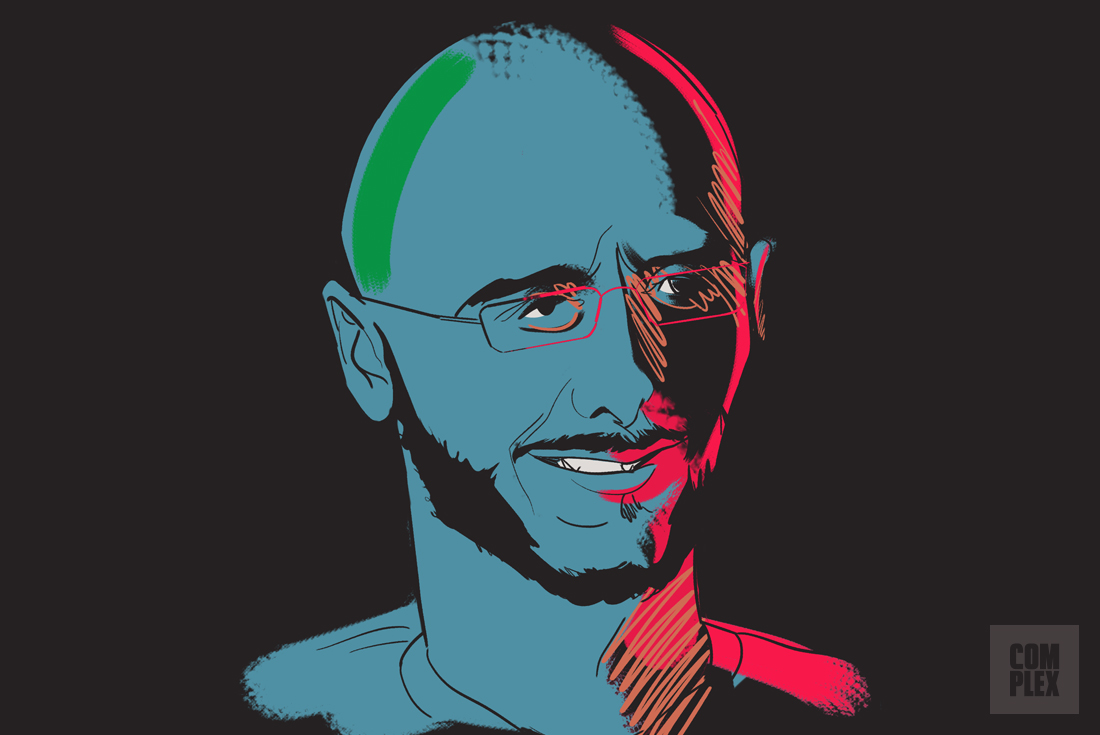
CREDENTIALS:So Far Gone (Drake)
Noah “40” Shebib has more in common with Drake than Canadian roots. Like his friend and frequent collaborator, he’s a former child actor born to a family of entertainers. And together, the two otherwise mild-mannered musicians pioneered a new era of hybrid rap, beginning with 2009’s So Far Gone.
Despite linking with Drake back in 2005, Shebib hadn’t executive produced a project for the soon-to-be superstar before the rapper’s seminal mixtape (which was re-released as an EP later that year). While So Far Gone took cues from 808s and Heartbreak, it presented a more relatable spin on Kanye West’s polarizing, melodramatic album, which subverted rap altogether with a sound leaning towards synthpop. So Far Gone, for its part, broadened the genre with emotive yet sparse musicianship. That subtle difference gave Drake the canvas he needed for his trademark suburban swagger and moments of reflection.
The project—comprised mostly of original beats with no DJ tags, throwaway songs, or radio freestyles—helped shift the way rappers built mixtapes thereafter. Just as its sound blurred the line between R&B and hip-hop, its mere existence blurred the line between mixtapes and albums—so much so that those distinctions are all but unrecognizable nearly a decade later. At the same time, the pent-up moodiness of songs like “A Night Off” and “Sooner Than Later” changed the way rap artists expressed vulnerability. The foundation of that shift is 40, whose production simultaneously pays homage to a lifetime love of classic R&B while moving those sounds forward and into hip-hop spaces. Far removed from the war cries of Prodigy or DMX, So Far Gone was more romantic than depressive.
With Wayne on the tail end of his legendary mixtape run, and GOATs JAY-Z and Eminem releasing underwhelming albums (The Blueprint 3 and Relapse), Drake emerged as one of the most exciting artists of 2009. Without 40, as Drake has long acknowledged, things would have played out otherwise.
HONORABLE MENTIONS: Dot Da Genius, Bangladesh, Drumma Boy
If Kanye West’s artistry on 808s & Heartbreak was the inspiration for So Far Gone, Kid Cudi’s crooning and introspection on “Day ‘n’ Nite” was the inspiration for that inspiration. Dot Da Genius’ psychedelic production on Cudi’s breakout hit—initially released in 2008—reverberated throughout the next year, serving as the lead single for his debut album in 2009. Bangladesh also secured a hit single that year, following Lil Wayne’s “A Milli”—the most rapped-over beat of 2008—with the equally infectious “Lemonade,” produced for Gucci Mane. Guwop had a particularly keen ear for beats that year, as Drumma Boy contributed a slew of bangers to The State vs. Radric Davis, as well as Gucci’s classic mixtape Burrrprint: The Movie 3D. —Austin Williams
2010: Lex Luger
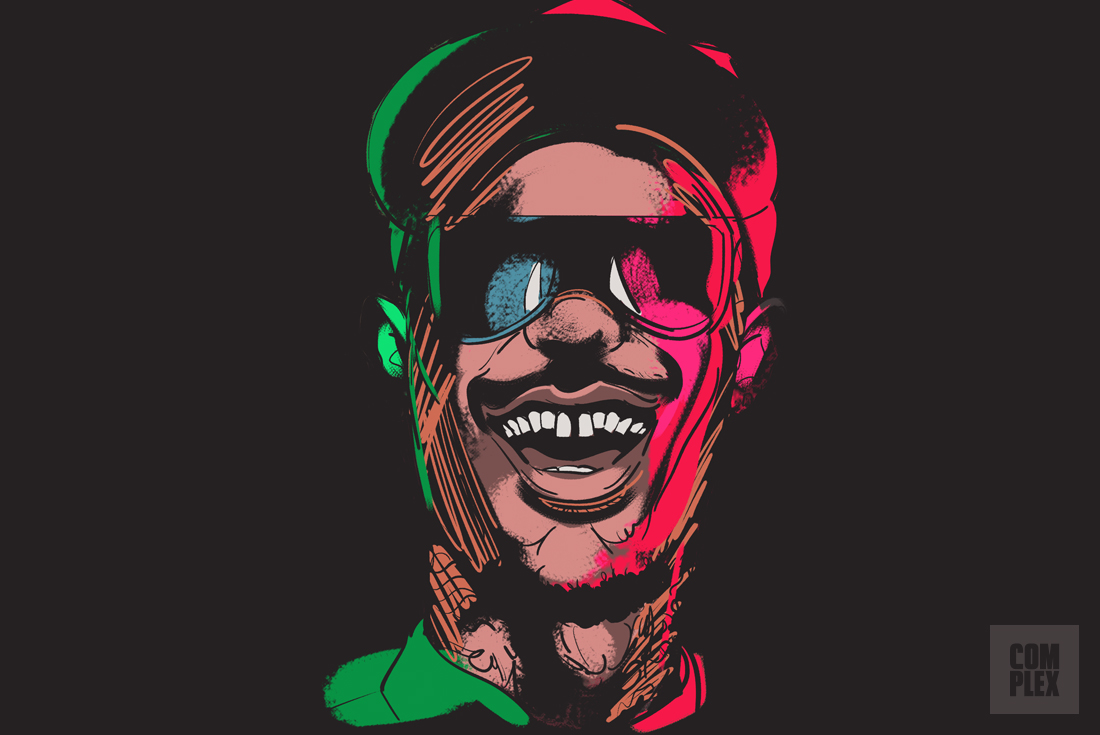
CREDENTIALS: “B.M.F. (Blowin’ Money Fast),” “9 Piece,” and “MC Hammer” (Rick Ross); “See Me Now” (Kanye West)
When Lex Luger composed the beat for Rick Ross’ “MC Hammer,” he was down on his luck and doubtful about his prospects. “If you listen to it, you can tell,” he later told Complex. “I was going through some times with this whole music thang, you know what I'm saying? I felt like I wasn't getting nowhere. My name really wasn't buzzing. I didn't think I could be like how Drumma Boy and them were. People always told me it ain't gonna get me nowhere. It wouldn't get me the real money.”
Some MVP moments are born out of years of diligence and hard work. Others arrive with all the immediacy, suddenness, and enveloping totality of a flash thunderstorm. There’s no wrong way to blow up and no preconceived quota on the grinding period. And whatever valleys subsequent years bring, they’ll never dull the potency of that one period when everything clicked. Such is the tale of Lexis Lewis, who stormed onto the scene with thunderous beats that hit just as hard the professional WWF wrestler he takes his moniker from. Lex’s credits began in 2009 with mostly Waka Flocka Flame, but—misgivings about the viability of his trade aside—it would only take until 2010 for him to help influence the genre's sound for the next decade. With all due respect to Mr. Luger, you wouldn’t know a person in the throes of despondency made “MC Hammer” while listening to it. The beat is apocalyptic in the most ebullient way, which describes all of Lex’s beats—give or take a “That Way.”
Every emerging producer needs an equally hungry artist to pair their work with, and Lex found a kindred spirit in Flocka, who used the teenage producer’s beats to help shepherd his mainstream takeover as the life of the rowdiest party. Through the aforementioned “MC Hammer” and the even bigger “B.M.F.,” Rick Ross widened the collective palette with an added air of mobster regalness. Lex went from anxious teenager to the architect of a paradigm shift. His influence spread faster and farther than he could control. Fellow producers—established and upstart—ran with Lex’s blueprint. By 2012, his contributions to high-profile projects waned, but as hip-hop moved away from the lush and luxurious, and towards something darker at the turn of this most recent decade, history will remember who heralded the change.
HONORABLE MENTIONS: Kanye West, Tyler, the Creator, Roc Marciano
2010 was the year of Kanye West’s grand comeback. My Beautiful Dark Twisted Fantasy isn’t hurting for help: RZA, No I.D., S1, Jeff Bhasker, Bink!, and Mike Dean all share co-producer credits. But no one can take the singular triumph away from its main conductor. From King Crimson samples to the stark sparseness of “Runaway,” Fantasy is Kanye at his most ornate. In 2010, Tyler, the Creator was in the nascent stages of honing a sound that would hit the mainstream in full force one year later. As much as he may wince at some of his earlier work these days, records like Earl Sweatshirt’s seminal Earl hint at where he’d take his Neptunes-inspired sound—and they hold up in their own right. On his debut album, Roc Marciano offered an alternative to Kanye’s bassoons and Lex Luger’s trap. Marcberg is like returning to the city after an extended trip away, breathing in deeply, and inhaling everything it has to offer. Roc’s grimy sound would shape an entire wing of underground rap, and everyone from peers like Ka to spitters like Mach-Hommy follow in Marcberg’s wake. —Frazier Tharpe
2011: Noah “40” Shebib
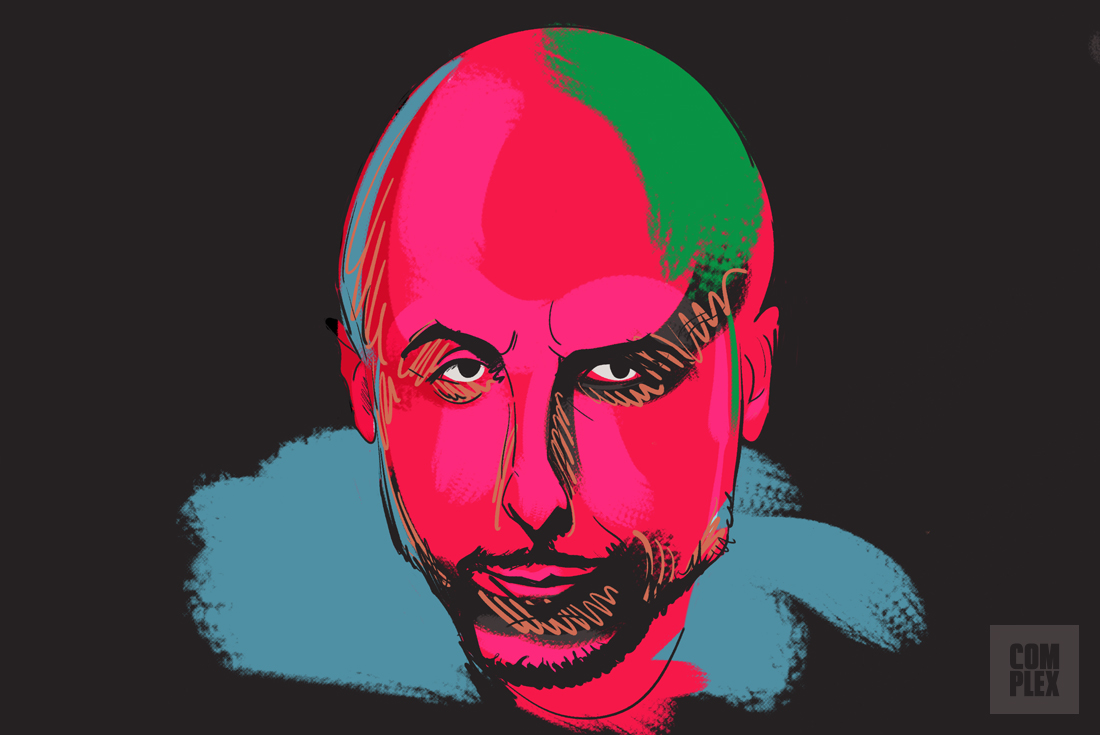
CREDENTIALS:Take Care (Drake)
Drake is the first to admit that he wouldn’t be here without 40, and their symbiosis is most palpable on Take Care—the album on which they both set out to validate Drake’s weighty subliminal from earlier in the year: “The throne is for the taking, watch me take it.” Innovative sonics helped herald Drake as rap’s next king, and 40 was the architect. Created largely in the shut-in Toronto winter climate, Take Care has the feel of art created at home and the cold texture of its local environment.
The album’s production is adventurous to the point of being death-defying. If you’re making an album in the midst of the trap boom, only a daredevil creates a song as willfully sparse as “Marvins Room,” with its singular bass and a sound akin to being submerged in water. Conversely, only someone with a deep love for the game and a deeper bench of inspirations can surface a fire Jon B sample and turn it into an ambling, drawling banger like “Cameras.”
For all the co-production across the album, 40 is the connective tissue that makes the high-energy songs sound at place with the moodier tracks. Even a turn-up like “Headlines” carries the same gothic undertones of a “Shot for Me.” As a result, 40 didn’t just create a core sound for Drake, he created one for the whole city—an aesthetic that then spread to the entire game as everyone rushed to etch-a-sketch their own facsimiles of the blueprint. Grammy notwithstanding, the debate over whether Drake fully achieved what he set out to do with Take Carerages on to this day. 40 is never questioned.
HONORABLE MENTIONS: Kanye West, Clams Casino, Hit-Boy
Kanye continued to surge forward in his maximalist ambitions with Watch the Throne in 2011. He made trap baroque on “Illest Motherfucker Alive” and “HAM,” while giving dubstep a hip-hop bounce on “Who Gon Stop Me” and “Why I Love You.” Based on their 2011 output, it seemed as if we were witnessing the birth of another artist-producer duo for the ages in ASAP Rocky and Clams Casino. If 40 was playing around with minimalism, Clams spent the year perfecting a dreamy, drugged-out spin on that wave, as evidenced by Live.Love.A$AP. For his part, Hit-Boy produced the titanic “Niggas in Paris,” a song whose genius simplicity even Drake admitted he was jealous of. The track positioned Hit-Boy as the next great superproducer. He was already diversifying his abilities with Rihanna’s highly underrated Talk That Talk cut “Watch N Learn” (which functions as a sort of laid-back B-Side to “Paris”), as well as the imperial score he laced Pusha-T with for “My God.” What a year. —Frazier Tharpe
2012: Mike Will Made-It
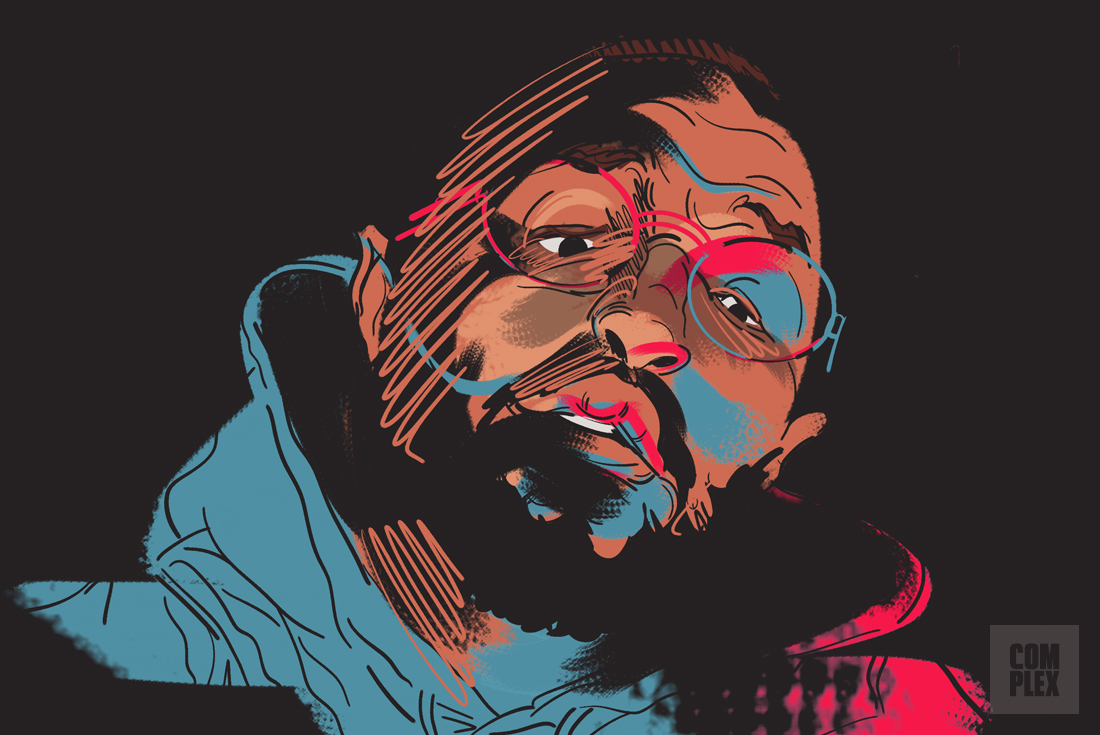
CREDENTIALS: “No Lie” (2 Chainz); “Bandz a Make Her Dance” (Juicy J); “Turn on the Lights” (Future); “Mercy” (Kanye West); Trap Back, I’m Up (Gucci Mane)
Mike Will Made-It’s breakthrough success in 2012 came from a string of what would become smash singles. The Marietta, Georgia, native came out firing with co-production credits on “Mercy,” the lead single from G.O.O.D. Music’s Cruel Summer. The song would go on to achieve quadruple-platinum status and establish Mike Will’s trap-inflected style as the definitive sound of 2012.
Less than two weeks after “Mercy” dropped, the producer contributed to Future’s debut studio album, Pluto. The first four singles preceding the release warmed the rap world’s collective palette, but it was the fifth, “Turn on the Lights,” that served as a turning point for Future. Mike Will’s methodical kick drums and crisp hi-hats were coupled with trappy, dream-sequence-like tones to amplify Future’s unique vocals. The song’s title plays as an apt metaphor for the impact of Mike Will’s drums and Future’s flow, as they each flipped the switch on an ATL sound that would soon birth a larger movement. The trap renaissance of the 2010s had begun.
Mike Will’s 2012 beats also played a major role in the rebranding efforts of two veteran MCs from the South. The first was 2 Chainz, who, after dropping the Tity Boi moniker earlier, released Based on a T.R.U. Story under his new name. Standout track “No Lie” nabbed a crucial feature from Drake as it wove Mike’s intricate production web with a trippy outro fit for an alien abduction scene in a ‘90s cartoon. Mike also worked his magic on Juicy J’s smash “Bandz a Make Her Dance,” which proved the former Three 6 Mafia member could churn out hits as a soloist.
In addition to the singles, Mike Will dropped a trilogy of mixtapes—Est. in Nineteen Eighty Nine (Last of a Dying Breed) (which, OK, actually dropped five days before the year began), Est in 1989 Pt. 2, and Est in 1989 2.5—in 2012. In addition to showing the producer’s musicianship, they highlighted the array of artists who wanted to work with him: Lil Wayne, Diddy, Mac Miller, Kanye, and more. As if every accomplishment above weren’t enough, Mike Will also found time to produce 10 tracks on Gucci Mane’s underrated 2012 mixtapes Trap Back and I’m Up.
HONORABLE MENTIONS: Young Chop, Hit-Boy, El-P
As Mike was dropping trap classics, Young Chop was bringing Chicago’s signature sound, drill, to the fore. He produced Chief Keef’s vaunted mixtape Back From the Dead and the majority of his full-length debut, Finally Rich, which both included sneaky mega-hits “I Don’t Like” and “Love Sosa.” Just a year after Kanye signed him to G.O.O.D. Music, Hit-Boy rolled out a series of absolute bangers like “Clique,” “Cold,” and ASAP Rocky’s “Goldie.” There’s a reason Drake rapped, “I should prolly sign to Hit-Boy, ‘cause I got all the hits, boy” on “0 to 100.” A longstanding presence in the underground hip-hop world, El-P emerged from the collapse of Definitive Jux to release two underground bangers in the same month. Killer Mike’s socially conscious R.A.P. Music was first. A week later, El dropped his solo effort, Cancer 4 Cure, which was dedicated to his late friend Camu Tao. —Macklin Stern
2013: Kanye West
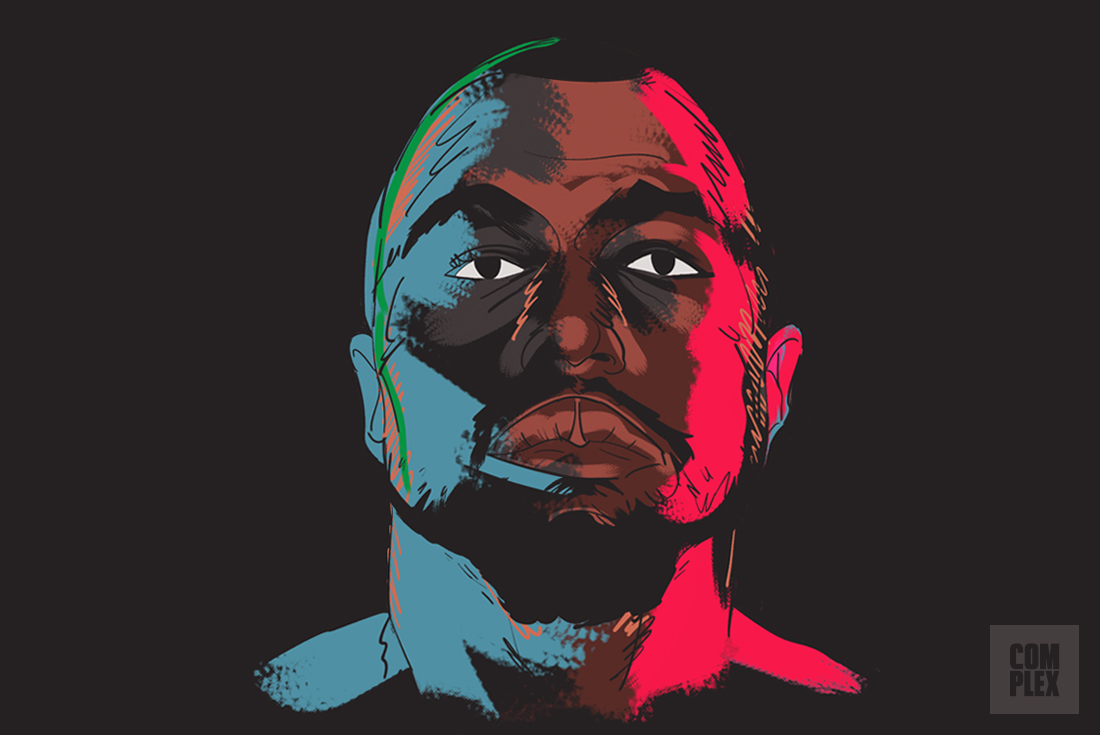
CREDENTIALS:Yeezus (Kanye West); My Name Is My Name (Pusha-T)
“I’m a minimalist in a rapper’s body.” That’s how Kanye West described himself to the New York Times in 2013. It was a stark contrast to the way most of the world—fans, haters, critics, casual observers—viewed him. Up until that point, Kanye practiced maximalism. He would forge an outline with an expertly chopped loop and then enlist the help of instrumentalists to color in the lines and add a layer of complexity that many hadn’t heard since the days the Bomb Squad was running rap. It was a practice that started on Late Registration and peaked on My Beautiful Dark Twisted Fantasy. His album with JAY-Z, Watch the Throne, continued the musical extravagance with samples many would deem too expensive to chop and flourishes that befit two artists celebrating their wealth as much as the artistic agency their success has afforded them. There was no reason to believe that the trend would stop.
But it did.
While the rest of the industry tried to keep pace with the torrent of hits West produced, Kanye decided to veer in a new direction—one inspired greatly by the minimalist, brutalist design he was consuming while living in Paris. It may seem inconsequential when looking back, but for Kanye to completely switch gears after finding such grand success with a certain style was his riskiest artistic endeavor since he gave up rapping for an entire album in 2008. To realize his vision to “undermine the commercial,” West, as is his wont, recruited a crew of A-list talent that included Daft Punk, Hudson Mohawke, No I.D., Mike Dean, Arca, and his newest collaborator, Travis Scott. Scott had already experimented with more abrasive sounds, attempting to abutt jagged edges with woozy tones to create something altogether new. The easy narrative was that West was once again taking from the youth, but what he did on Yeezus was much more thoroughly realized than the thought exercises Scott worked through.
A lot of that was courtesy of the album’s executive producer Rick Rubin, who worked with Kanye and his host of collaborators to ensure that Yeezus was cohesive. He not only pared down the tracklist to a manageable number, but also pared down music on the songs themselves, removing elements he deemed unnecessary. What we were left with were songs that were cold and industrial, but oozed emotion. The great talent of Kanye West is to imbue his work with soul. Only he could make acid house sound like gospel music.
The updated sound—chipmunk samples swapped with loops that sounded as if they were being suffocated in a million-dollar fish tank—became the sound of G.O.O.D. Music when ‘Ye lent his hand to Pusha’s solo debut, My Name Is My Name. Though the songs were at times too pop-leaning, the idea was the same—produce beats with as little clutter as possible. It didn’t hurt that the production was as cold as the rhymes Pusha conjured.
HONORABLE MENTIONS: 40, Mike Will Made-It, Zaytoven
Going into 2013, Drake had a problem. He was one of the best-selling rappers in the world, but people still insisted that he wasn’t a rapper’s rapper. Singing pop songs was more his thing, went the narrative. In an effort to course correct, he put together what was at the time his most rap-leaning project, Nothing Was the Same. It was so rap-focused, it featured a song called “Wu-Tang Forever.” To help sell the idea of Drake as rap star, Noah “40” Shebib oversaw a team that provided soul samples, boom bap, futuristic bounce, and somber introspection—everything a modern rap masterpiece needs to hit all the marks. And it was all tied together with 40’s unique brand of detached, atmospheric cool. Elsewhere, Mike Will Made-It was continuing his streak of producing space trap that would rattle trunks and clubs in equal measure. “Bugatti” is one of those rare tracks that you know is a hit as soon as the first chords come in. The year also saw the Atlanta rap triumvirate (T.I., Jeezy, Gucci) begin to cede control of the game they helped usher in. Zaytoven, the church-reared pianist-turned-trap maestro who helped Gucci rise to prominence, helped a group of upstarts notch their first national hit; Migos’ “Versace,” with its playful keys and bounce, proved infectious enough to propel QC’s marquee act to national fame and inspire a raft of remixes along the way. —Damien Scott
2014: Mike Will Made-It
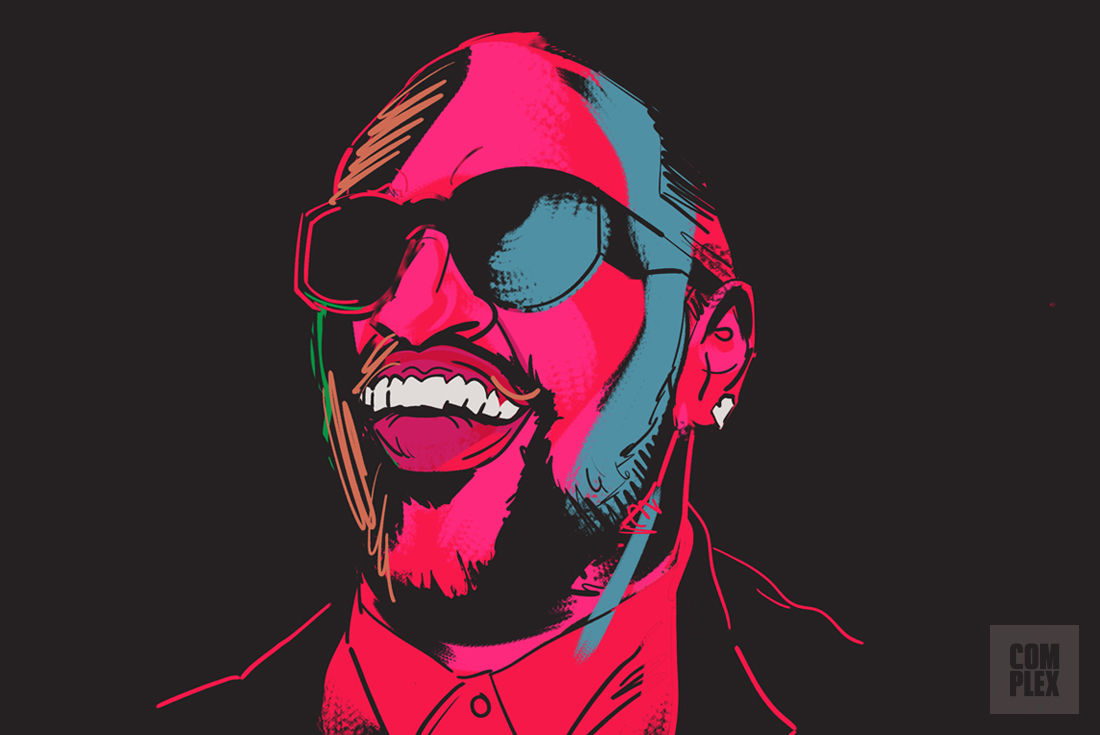
CREDENTIALS: “Move That Dope” (Future); “No Type,” “No Flex Zone” (Rae Sremmurd)
Mike Will Made-It beat out 2014’s fierce competition with a bricolage of production credits. The foundation came from his hometown of Atlanta: a defining string of singles from Rae Sremmurd’s SremmLife (“No Type,” “Throw Sum Mo,” “No Flex Zone”) that all cracked the top 50 of Billboard’s Hot 100, plus three tracks on Future’s Honest, including “Move That Dope.” Mike Will’s role as an Atlanta production kingmaker was further cemented with placements on the Gucci Mane mixtapes released while the rapper was in prison. After signing Ear Drummer Records to Interscope in late 2013, Mike Will also released solo material in 2014: His Ransom mixtape dropped in December with features from Lil Wayne, Kendrick Lamar, Chief Keef, Migos, and many more.
But for all his hip-hop hits, the lasting legacy of Mike Will in 2014 was his ability to shepherd the new Atlanta sound into the mainstream. After producing six songs on Miley Cyrus’ Bangerz a year before, he landed beats on some of 2014’s biggest releases: Schoolboy Q included “What They Want” on Oxymoron and gave Mike Will a foothold on the West Coast; “Thug Cry” is a standout on Tinashe’s Aquarius; and Nicki Minaj’s “I Lied” is the surprisingly sentimental ballad that adds another layer to The Pinkprint. He also produced the criminally underrated “Faded” off Mariah Carey’s Me. I Am Mariah... The Elusive Chanteuse.
HONORABLE MENTIONS: DJ Mustard, London on Da Track, Madlib
Among 2014’s runners-up is DJ Mustard, who finger-snapped his way into contention with hits on YG’s My Krazy Life and Jeremih’s “Don’t Tell ‘Em,” as well as co-production credit on Big Sean’s “IDFWU.” London on Da Track and Madlib deserve mentions, too. London was just coming into his own as a big-name producer, helping Atlanta’s new wave gain a foothold alongside T.I. (“About the Money”) and Waka Flocka Flame (“How I’m Rockin”). He also helped launch Young Thug’s career with “Lifestyle” and six tracks on Rich Gang: Tha Tour Pt. 1. Madlib’s excellent 2014 was largely defined by one incredible project: Piñata. It arrived only after the legendary producer made three EPs with Freddie Gibbs, and when the two decided to do a full-length, they took three years to perfect it. —Graham Corrigan
2015: Metro Boomin
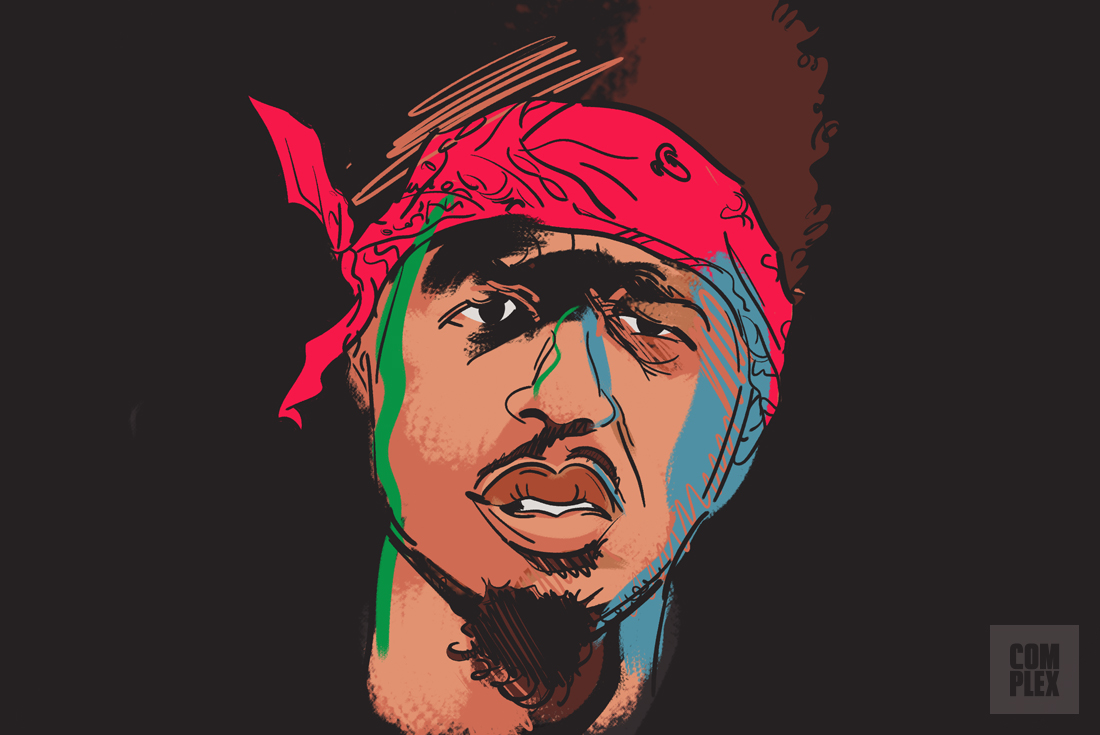
CREDENTIALS: “Thought It Was a Drought,” (Future); “Jumpman” (Drake and Future)
Metro Boomin was untouchable in 2015, and the reason he’ll go down in production history is simple: He helped catapult Future to rap superstardom. Future had long been established in hip-hop and was seen as the next to carry the Atlanta rap baton, but he had never graced the mainstream stage on a full-project level. With DS2—produced almost entirely by Metro Boomin—Future was launched to the center of rap on both a surface and underground level.
Metro’s “Thought It Was a Drought” is one of the most intoxicating album intros in contemporary rap, let alone Future’s discography. It begins unassumingly enough before it starts rattling your speakers as Future boasts about fucking your bitch in Gucci flip-flops. Then, at the midway point (“Freak Hoe”), Metro presses reset and brings in the brigade—namely Southside, Sonny Digital, and Zaytoven—to flesh out Future’s constantly shifting style. By the end, the album transforms into another sound entirely—darker, richer, and more contemplative, but still largely helmed by Metro. What a ride.
The tag “Metro Boomin want some more” became more fitting as the producer grew more prolific (and his sound grew more aggressive). Mere months after DS2 dropped, Future and Drake released What a Time to Be Alive, a collaborative project that became one of the most well-received joint works in rap since 2011’s Watch the Throne. Again, Metro was a dominant figure on the production side. Want an industry-wide hit? You have to get through “Jumpman” first: It even inspired Kanye West to make his own version (see: “Facts”). In 2015, Metro was on fire, and his closest competitors were miles away.
HONORABLE MENTIONS: Sounwave, Southside, Boi-1da
Sounwave ushered in the unconstrained era of Kendrick Lamar, with heavy hands on To Pimp a Butterfly. He was credited as the lead or co-producer on nearly every track, exhibiting the oversight necessary for Kendrick to transition from the already high heights of good Kid, m.A.A.d. city to the stratospheric levels of experimentation on Butterfly. As mentioned above, Southside tag-teamed with Metro Boomin and forged his own path on Future’s DS2 (“Stick Talk”) and What a Time to Be Alive (“I’m the Plug”). Additionally, he laced Future with plenty of fire-emoji-worthy beats on 56 Nights, including “Trap Niggas.” Boi-1da’s 2015 was supreme because of his partnership with the one and only Drake. The variation of If You’re Reading This It’s Too Late’s “Energy,” “10 Bands,” and “Know Yourself” is enough to let you know the man was in his zone that year. —Kiana Fitzgerald
2016: Metro Boomin
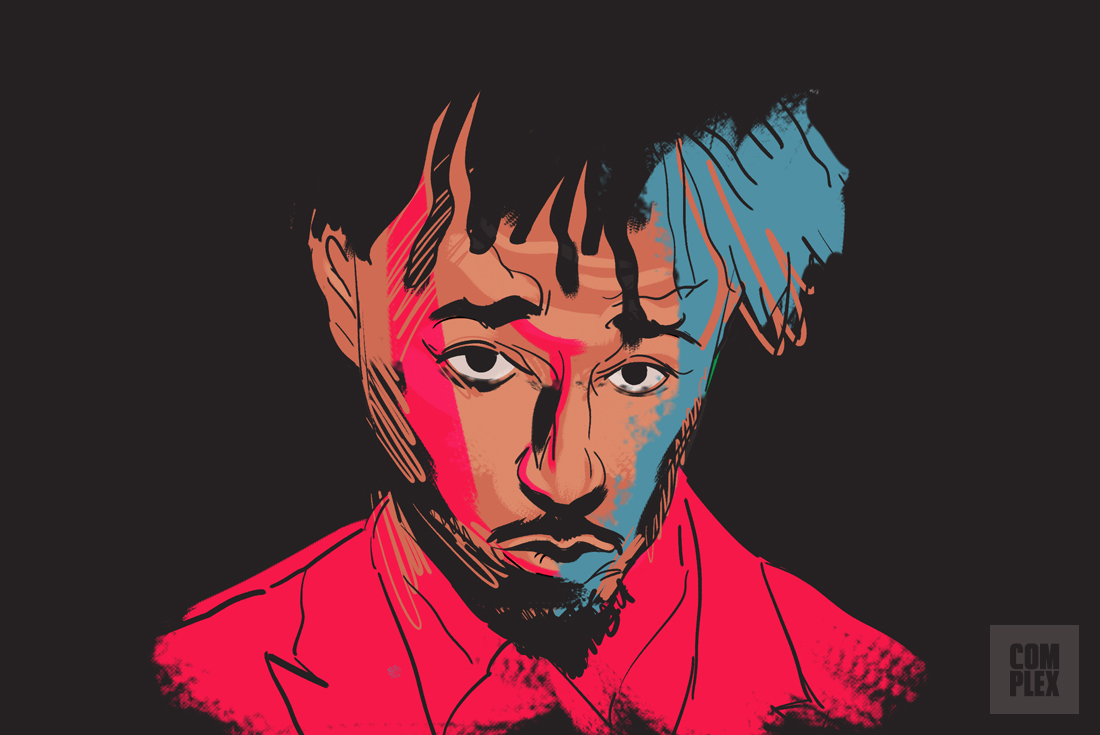
CREDENTIALS: Savage Mode (21 Savage); “Father Stretch My Hands, Pt. 1” (Kanye West); “Bad and Boujee” (Migos)
Fresh off of his work on Future’s classic DS2, Metro Boomin was the most sought-after beatmaker in the game in 2016, with more over-the-top, brooding production. He started off his year-long run with contributions to Future’s EVOL tape and Kanye West’s The Life of Pablo, officially making his producer tags, “If Young Metro don’t trust you, Imma shoot ya” and “Metro Boomin want some more,” ubiquitous parts of the culture.
On those two projects alone, Metro gave us “Low Life,” “Wicked,” and “Father Stretch My Hands, Pt. 1.” He also had a hand in Pablo’s “Waves,” “FML,” and “Facts (Charlie Heat Version).” He followed those bangers up by playing Dre to 21’s Snoop on Savage Mode and, of course, blessing us with Migos’ “Bad and Boujee.” Released in October 2016, the smash single (co-produced by G Koop) took over the first of half of 2017, reaching No. 1 on the Billboard Hot 100 with the help of Donald Glover’s shoutout during his Golden Globes acceptance speech.
Near the end of 2016, Metro produced “Congratulations” for Post Malone and Quavo, a song that has 884 million views on YouTube at the time of this writing and is eight times platinum. Young Metro had the Midas touch in 2016. But maybe his sudden rise made him question whether the fame and recognition were really worth it: He seemingly emptied the clip in 2017 by producing full-on tapes with Nav (Perfect Timing), Big Sean (Double or Nothing), and Offset and 21 Savage (Without Warning) before announcing his retirement this year.
HONORABLE MENTIONS: Mike Will Made-It, Kanye West, Knxwledge
Mike Will gets an honorable mention for producing “Black Beatles,” which proved once and for all that the white Beatles were indeed overrated (according to Desus and Mero, anyway) and co-producing Beyoncé’s “Formation.” Are you kidding me? Those are two generational songs with a billion streams between them. Then you have Kanye West for The Life of Pablo, which is underrated and continues to age well (even if the lyrics are a mid pack). Finally, there’s Knxwledge, whose work on NxWorries deserves recognition—and that’s not to mention the production he did for Earl and Mach-Hommy. —Angel Diaz
2017: No I.D.
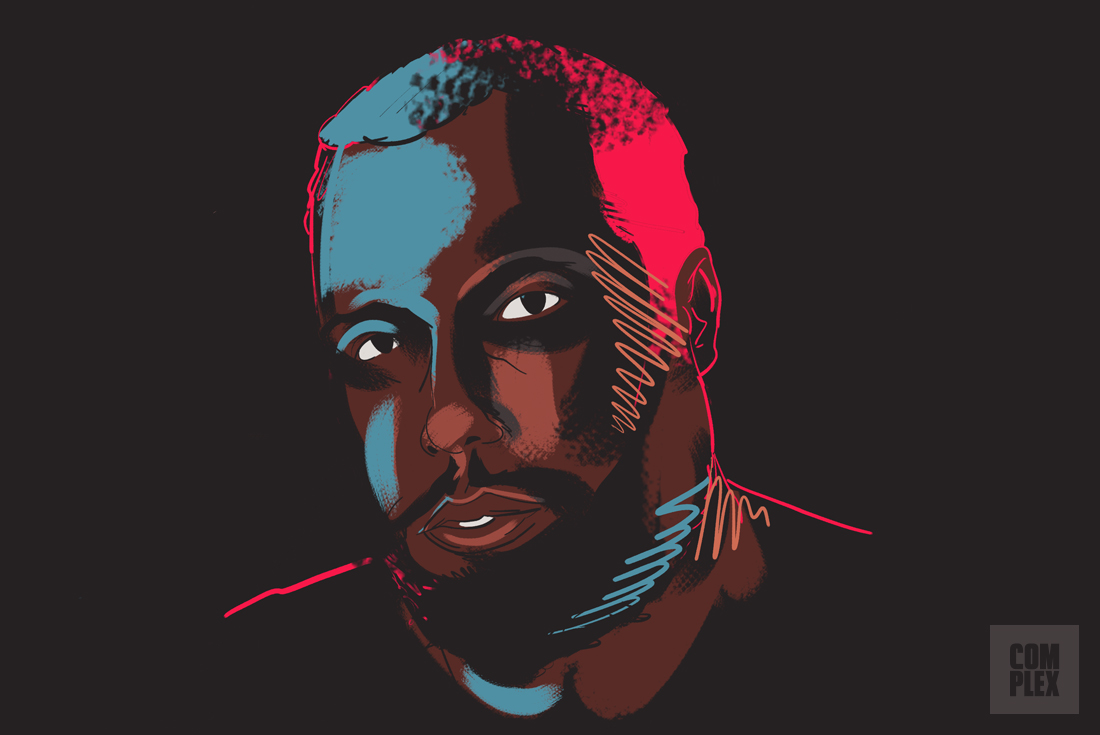
CREDENTIALS: 4:44 (JAY-Z)
How poetically fitting is it that, when JAY-Z set out to create a statement album on elder statesmen hip-hop black maturity, it was a fellow legend in search of new frontiers to conquer who helped him do it? There simply isn’t a more fitting narrative for 4:44 than the fact that it’s constructed in totality by No I.D., who himself had something to prove as he came off a hiatus.
Dion began 2017 fresh off a sabbatical spent honing a craft most would say he’d already mastered. His fire was lit by Quincy Jones’ comments that the game was overrun with “four-bar-loop” stagnation, so you won’t find that on 4:44. What you will encounter are soul chops that get Jigga back in his bag without sounding dated or redundant (no easy feat when flipping the Fugees and Stevie Wonder). You’ll also find thrilling new samples like the title track’s interpolation of Hannah and the Affirmations’ “Late Nights & Heartbreak,” live instrumentation like the drums on “The Story of O.J.,” and the intro’s so-bizarre-it-shouldn’t-work sample of the Alan Parsons Project’s “Don’t Let It Show.”
4:44 was as much of a homecoming and late-career triumph for I.D. as it was for JAY. It also opened up a brave and exciting new chapter for the veteran producer to explore, which he wasted no time doing with Vic Mensa’s debut album, The Manuscript.
HONORABLE MENTIONS: Metro Boomin, Murda Beatz, Pi’erre Bourne
In 2017, Metro Boomin’s unparalleled work ethic led to multiple projects on which he took sole production credit. DropTopWop is arguably Gucci’s strongest post-prison release yet, while 21 Savage and Offset’s collab tape, Without Warning, was a clear standout in a year that gave us many indistinguishable link-ups. He also shepherded 21’s full-length debut and added to his list of hits with Future’s “Mask Off.” 2017 was also the year Murda Beatz arrived, putting a fresh spin on trap music archetypes and riding them to the top of the charts. After years of crafting sturdy bangers with the likes of Migos, Murda’s affiliation with Drake helped turn him into a contemporary go-to, a reliable radio guru. Even with no tags, guessing Murda was on the beat in 2017 was a safe bet. Pi’erre Bourne came into the game and dominated 2017 off the strength of “Magnolia.” As JAY-Z himself put it, the song is just a vibe. Pi’erre also handled a large chunk of Carti’s seminal self-titled mixtape, creating yet another fruitful artist-producer symbiosis. Couple that with his instant-classic producer tag—shoutout always to the underrated Jamie Foxx Show—Pi’erre came into 2017 out of nowhere, fully formed, with a deep arsenal and a promising future. —Frazier Tharpe
2018: Tay Keith
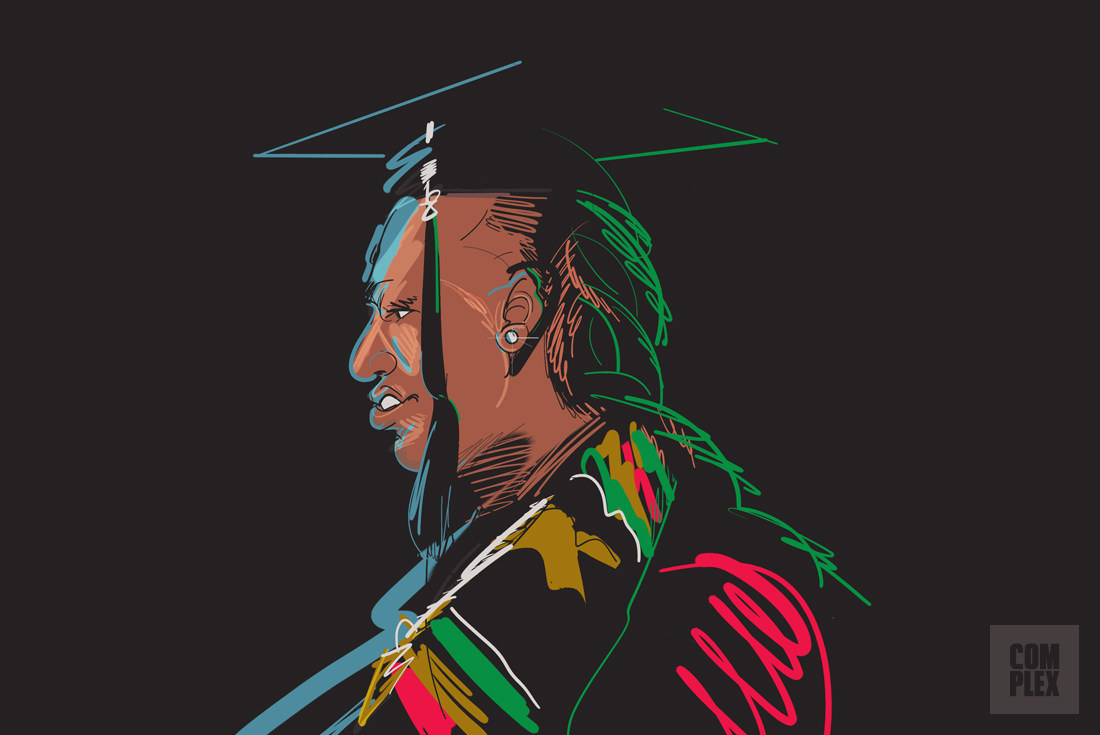
CREDENTIALS: “Sicko Mode” (Travis Scott); “Nonstop” (Drake); “Look Alive” (BlocBoy JB)
In hindsight, Tay Keith locked up 2018 by Labor Day. Throughout the year, the Memphis producer provided a much-needed burst of nonchalant energy to some of the game’s solidified A-listers, as well as local peers on a parallel upwards trajectory. His beats established a trademark for a specific kind of casual aggression, with thunderous bass and menacing keys built to turn any setting upside down (but never at the expense of the rapper floating over them). Think of the disaffected arrogance Drake displays on “Nonstop.” The track arrives early on Scorpion, an album hotly anticipated after a month of radio silence following the Canadian’s beef with Pusha-T. Drake admitted to LeBron James that “Nonstop” was among the songs he recorded in that period. On a mission to let his music communicate an unbothered, non-reply reply, he was quick to call Keith. The result was an urgent banger—an immediate standout on an otherwise bloated album—and the latest in a string of unmitigated wins for Tay Keith in 2018.
Bringing a sorely needed sense of urgency and aggression out of Drake is on Keith’s list of macro achievements last year, but, of course, it started with BlocBoy JB. Between “Look Alive” and “Rover”—beats he produced on a used HP laptop in his bedroom—Keith made an immediately indelible impression, lacing his fellow Tennessee native with a different kind of mob music. It’s easy to picture 21 Savage tucking a cloth napkin into his shirt at Carbone as he sneers over “Rover 2.0.” Keith traces his inspiration back to his hometown heroes, telling Complex, “I had listened to a whole bunch of Three 6 [Mafia] around the time I was making that shit,” which he prophetically described as a “Memphis Grammy” vibe. It’s a mood distinct enough to make anyone discovering BlocBoy equally curious about the producer providing him with this energy, and it’s a sound idiosyncratic enough that anyone paying even moderate attention wouldn’t need a producer tag to know who made the beat. And, still, that directive (courtesy of Lil Juice), “Tay Keith, fuck these niggas up!” remains on the short list of phrases we’ll forever refer to when we talk about 2018.
Eminem, of all people, helped knight Tay Keith as the Man of the Year at the tail end of summer. Wounded from the critical panning of Revival and eager to pick the scab, Em called on Keith for “Not Alike,” a song meant to parody contemporary rap as he asserted just how easily he could body the game within those sonic confines if he wanted to. Conceptually, it could have fallen apart, but Keith’s beat—a sort of funhouse, cracked-mirror version of something he’d give BlocBoy JB—bangs hard enough to carry it. At that point, it was clear: Tay Keith had emerged as the producer to tap for beats immediately representative of the moment. The release came on the heels of Keith’s contribution to the best rap song of the year, “Sicko Mode,” where he cut through a swath of co-credited producers. Each component of the track is a crucial one, but amid a sprawling number of cooks in the kitchen, Tay Keith’s ingredients ring out the clearest. There’s no question which section he contributed to, and in handling the song’s crescendo, he steals the spotlight and blows the lights out.
Detractors would argue that, despite carving one sturdy lane for himself, that singular path is all Tay Keith has sonically; he’s a one-trick pony. Technically, this blurb addresses only one calendar year, but barely three weeks into 2019, Keith assuaged any concerns of his limitations with “Temptation,” a standout on Future’s The WIZRD. The beat is slow and almost tender; Future’s affectation is wounded and emotional, much more Hndrxx than Super. Keith picks the song as one of his favorites, telling Complex, “It brought out a different vibe in me, producing-wise.” Fresh out of college, Tay Keith, at just 22 years old, has powers that are still growing and maturing. His prospects already look brighter than producers on this list who had a whirlwind year, only to lose steam. Lil Juice must be proud. —Frazier Tharpe
HONORABLE MENTIONS: Kanye West, Mike Will Made-It, Cardo
This was a close one. The battle between Tay Keith and Kanye West for 2018’s crown proceeded through numerous staff meetings, all the way up to the last possible day. Given the distractions of Yeezy’s controversial, MAGA-filled year, that alone is a big accomplishment. The race was so close for one simple reason: His work on Pusha-T’s DAYTONA. The beats on that record inspired some of Terrence’s sharpest bars, resulting in both the album of the year honor and King Push being named Complex’s Best Rapper Alive. Kanye followed this with an ambitious seven-song album run (Ye, Kids See Ghosts, Nasir, K.T.S.E.) that commanded attention throughout the summer. Mike Will Made-It made it to our list primarily because of the inescapable “King’s Dead,” as well as for his work on an office favorite from Nicki Minaj: Queen highlight “Good Form.” Bonus points for bringing back Crime Mob. Cardo had great songs with Mac Miller, Kendrick Lamar, Travis Scott, and more, but his biggest contribution to 2018 came on Drake’s “God’s Plan,” a song so powerful that it managed to move the phrase “I only love my bed and my mama, I’m sorry” into the zeitgeist. —Shawn Setaro
2019: Madlib
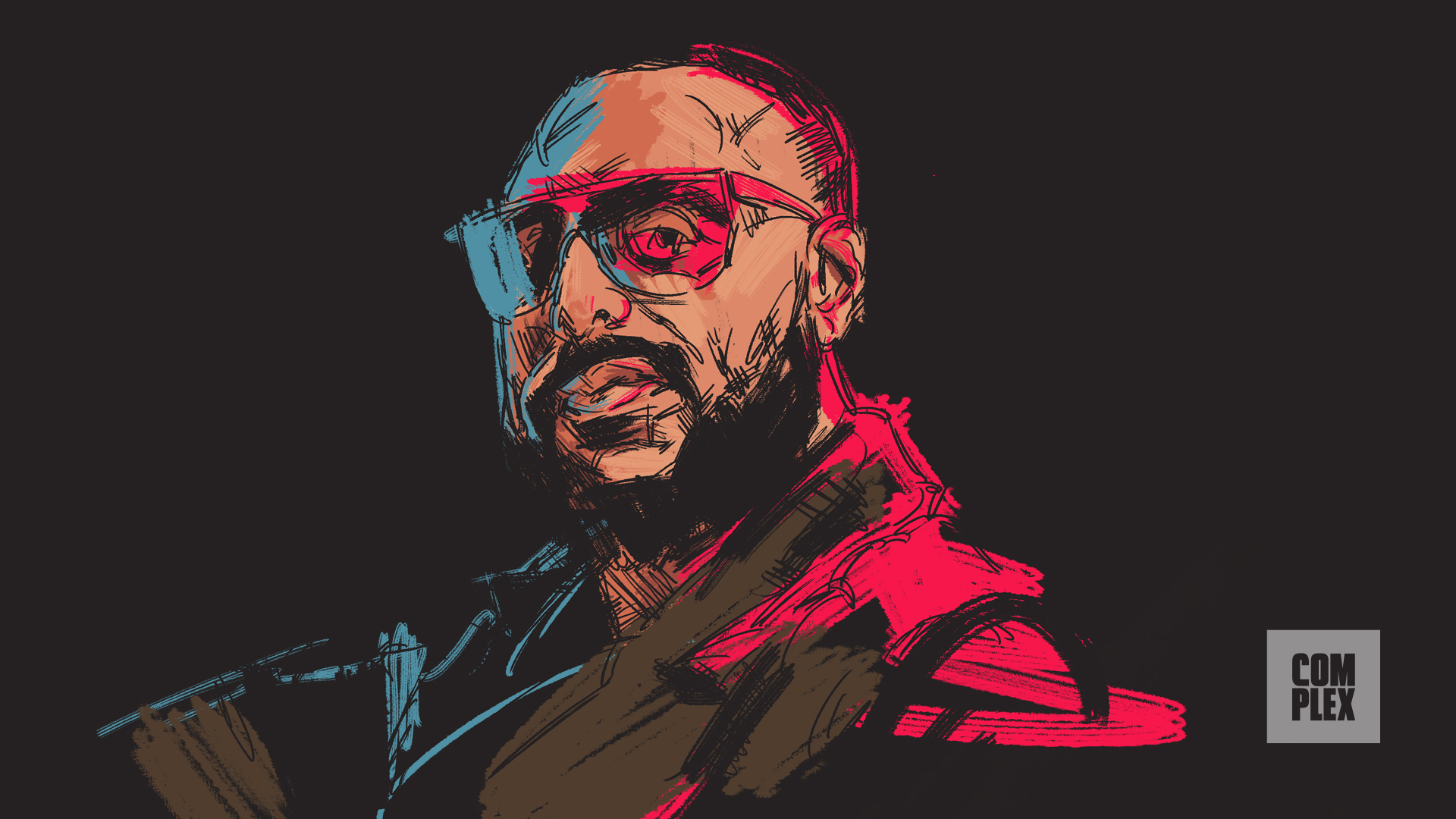
CREDENTIALS: Bandana (Freddie Gibbs)
Madlib has been making sample-heavy, jazzy beats since the early 1990s days of Lootpack and Tha Alkaholiks. But in 2019, he reached a new peak. Firing on all cylinders, Otis Jackson Jr. created soulful, era-spanning beats on, of all things, an iPad, and still managed to produce the best rap album of the year.
“I look at it as bringing old music back,” Madlib tells Complex, reflecting on his throwback, crate-digging style. “It’s keeping the history alive of black music or any time of music.” And it’s that dedication to sampling, to searching, and to history that made him the best hip-hop producer of 2019. It also helped him define the year in hip-hop. But in true Madlib fashion, he did it in his own way. It wasn’t by creating a sound that became inescapable, or that was copied by every new producer with a cracked version of FL Studio. Instead, he crystalized his talents, focused on creating something classic, and left his mark on the year by producing the very best version of what he’d been doing for decades.
Madlib’s second collaborative album with Freddie Gibbs, the follow-up to 2014’s Piñata, is a perfect blend of the duo’s strengths. In his own words, “it’s just the mesh of my weird underground world and his gangsta, hood stuff. I treated it like Compton’s Most Wanted.” And like CMW, Madlib, the Loop Digga, relies on loops. In an age where many beats are split up between melody writers and drum programmers, often working on opposite sides of the world, it’s refreshing to hear someone who composes the old-fashioned way, albeit on relatively new technology. This clash of influences, resources, and approaches birthed a contemporary rap album that fits with everything else happening in 2019, but still has a timeless feel.
Bandana saw near-universal critical acclaim for a reason. Madlib tailored his approach to the vocalist—a vocalist who in turn demanded more from his composer. “I want him to challenge me as an MC and take me to different levels of making music that I never knew I could unlock,” Gibbs told Complex about Madlib. And that dynamic shows through in every bar and every beat, along with the lengths to which Madlib went to find samples. There is no shortage of hard-to-find 1970s obscurities that had somehow eluded every other crate digger until now, and there are also mixtape interludes from just a few years ago interspersed with musical ideas from contemporary producers like Frank Dukes and Caponelli. Reggae, soul, funk, dance music, old TV shows: It’s all there. Madlib mines entire periods and genres to find the perfect sonic backdrop for Gibbs’ vocals on each of the album’s 15 tracks.
Bandana possesses a staggering variety of sounds and moods—a fact that comes across even more clearly when you listen to the instrumental version of the album. The production ranges from angry-sounding distorted guitars and mysterious organs punctuated by grunts on “Flat Tummy Tea” to soulful horns and vocal chops that wouldn’t feel out of place on a Ghostface record on “Freestyle S**t” to the echoey, dub-style drums of “Massage Seats.” Every beat uses a different palette. Despite that, Bandana is cohesive because of the overall approach. Madlib intentionally made the beats “more minimal,” as he describes them, to allow Gibbs to shine. And knowing when to pull back is perhaps the most important weapon a producer can have in their arsenal.
“I can do stuff like Migos, and I can do stuff like Sun Ra,” Madlib explains. He sounds matter-of-fact when he says it, and it’s not a boast. The Loop Digga, Quasimoto, Beat Konducta—whatever you want to call him, Madlib accomplished his goal of helping to keep black music history alive, relevant, and vibrant in 2019, earning his long-overdue place as the best hip-hop producer alive.
HONORABLE MENTIONS: Mustard, Kenny Beats, Wheezy
Mustard brought us back to the magic of his “Rack City” days in the early 2010s with Perfect Ten. He accomplished the difficult task of creating a cohesive solo album from a producer while managing to show that he’s still got what it takes to make iconic singles. Just try to escape “Pure Water” or “Ballin,” the latter of which earned the distinction from many as the best song of 2019. Kenny Beats teamed with Rico Nasty and 03 Greedo to make unbeatable full-length projects, and he had a run of noteworthy one-offs and loosies that emerged from his Cave sessions. He’s not likely to end his run anytime soon—Kenny has scores more songs in the can with Greedo alone. Meanwhile, Wheezy continued to ensure that Thugger and his acolytes were among the hottest artists in the game while also propelling Future forward. His work on Young Thug’s “Hot” alone, with its royal-fanfare-sounding keyboard and 808 thumps, is enough to earn his place here. But he sealed the deal with seven songs on Gunna’s Drip or Drown 2, as well as memorable offerings on projects from artists like Lil Gotit, Rich the Kid, Trippie Redd, Young Bans, and more. —Shawn Setaro
2020: Hit-Boy
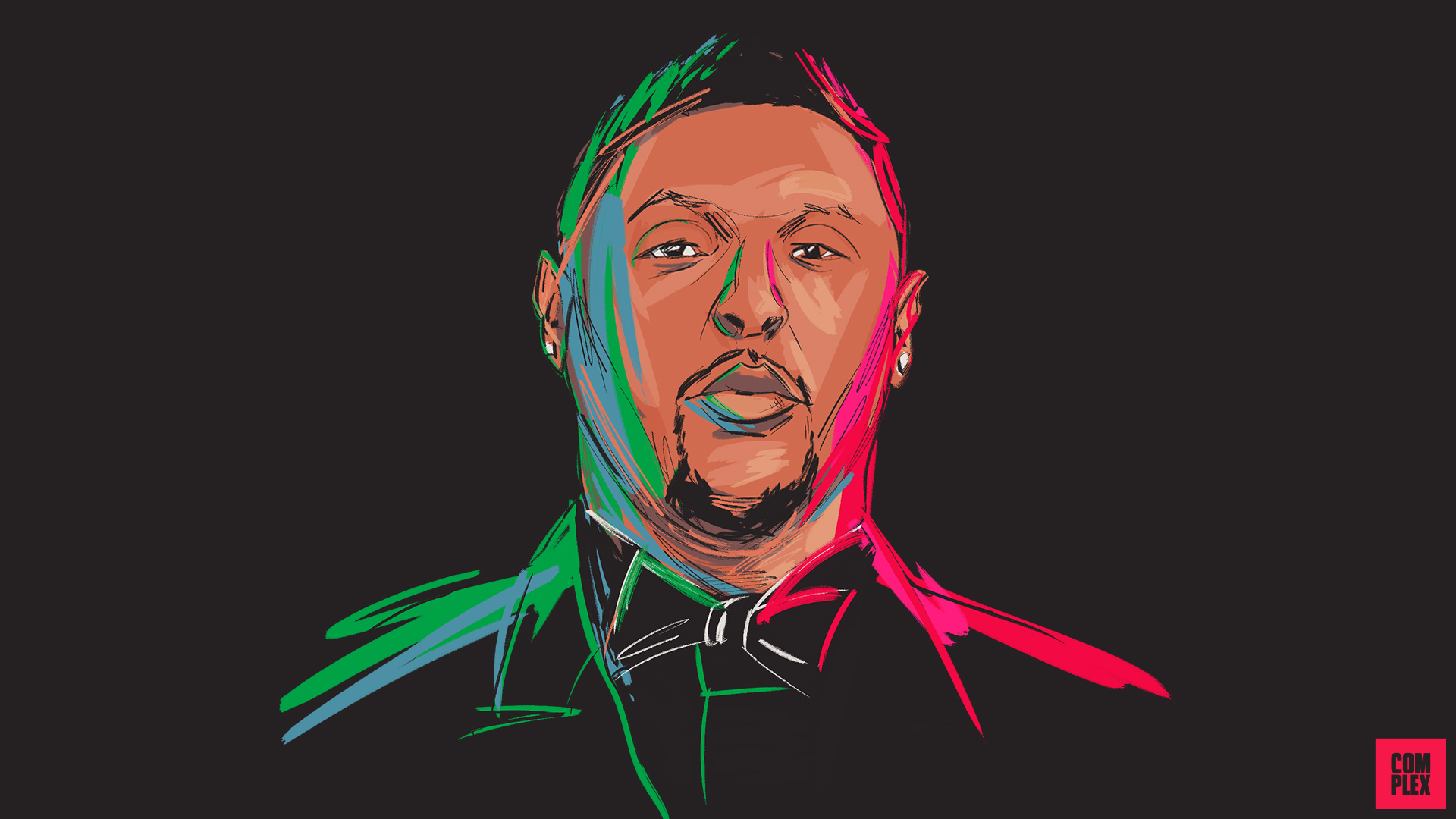
CREDENTIALS: Executive produced Nas’ King’s Disease, Big Sean’s Detroit 2, and Benny the Butcher’s Burden of Proof
It’s true to the weirdness of 2020 that the excellence of Hit-Boy’s year wasn’t defined by a smash hit like a “Niggas in Paris” or “Clique.” Hit-Boy’s impact came through sustained greatness and the kind of curatorial eye over high-profile projects that separates super-producers from beatmakers. He served as executive producer on three well-regarded projects: Nas’ King’s Disease, Big Sean’s Detroit 2, and Benny the Butcher’s Burden of Proof. All three albums displayed a skillful mesh of classic hip-hop elements with today’s glossy techniques, providing a captivating backdrop for established artists and a blueprint for spitters with dreams of mass appeal. As producer accomplishments go, that’s an unforgettable feat. His powerful trifecta is what makes him the Best Hip-Hop Producer Alive.
“I’d say 2020 was one of my best years, for sure,” Hit-Boy told Complex in an interview about the achievement. “Executive producing so many albums, working on so many different projects, just all the stuff I wanted to do when I was younger, but it really just took time to get into that role.” And now, he’s mastered it.
It’s been a gradual industry climb for Hit-Boy, who began the 2010s producing massive singles before facing industry setbacks along the way. But he was undeterred, and his production credits reflect a boundless work ethic throughout the last decade. For Hit-Boy, that work paid off with a huge three-month run in 2020. After releasing his album with Nas in August, one with Big Sean followed in September and one with Benny arrived in October. All three albums were rich, cohesive bodies of work. There’s been a lot of disdain for bloated albums of late, but Hit-Boy locked in as an executive producer and streamlined each project.
“I’ve always been able to tap in because I was such a big fan of albums,” he tells Complex. “Before I had a computer to make beats, I just had a CD player with a shoebox full of CDs. It’s something about the feeling of the whole project; it felt like I was watching a movie.” Those of a certain age remember the CD Walkman experience. Switching projects wasn’t as simple as a click. The CD experience made you more inclined to sit with an album, immersing yourself in its nuances. It’s fitting that a 33-year-old used to taking in albums as singular bodies of work could thread the fine line he did this year.
Hit-Boy’s skill was most evident on King’s Disease, a project that remedied one of the major knocks on Nas: his beat selection. Songs like “Blue Benz,” “Spicy,” and “27 Summers” displayed the rap icon in a sweet spot, spitting his ass off on tracks that fit onto contemporary playlists and mixes. Hit-Boy accomplished something similar with Benny the Butcher’s Burden of Proof. It’s no secret that Benny’s raps harken to the early ’00s heyday of Roc-A-Fella, and Hit-Boy leaned fully into the parallel throughout Burden of Proof, eschewing the beloved Griselda loops for his skillful chop on tracks like “Famous” and “One Way Flight.”
If those noteworthy accomplishments weren’t enough, he achieved another producer bucket list goal with Detroit 2. Not only was the album long-awaited, it was a sequel to a beloved Big Sean project. The pressure was on, and Hit-Boy played his part with beats like “Lucky Me,” “Deep Reverence,” and “Friday Night Cypher,” which allowed Sean (and friends) to get off bars and impress purists while still sounding modern. Hit-Boy had production credits on every track of Benny and Nas’ projects, but ceded some of the duties on Detroit 2. Yet, that’s where he showed his executive producer skills were no fluke, helping his close friend and fellow G.O.O.D. Music alumnus Big Sean curate a project that his fans regard as one of the best of 2020. “I just got in tune with who [Sean] was as a person, and that helped me play my role,” Hit-Boy said.
Hit-Boy isn’t the exuberant force of nature that other super-producers are; you won’t find him yelling to set off a track or ad-libbing verses. But his musical knowledge, technical skills, and willingness to play the right role earn him recognition as the best hip-hop producer of 2020.
HONORABLE MENTIONS: The Alchemist, Wheezy, Roc Marciano
The Alchemist had another banner year, crafting excellent projects with Freddie Gibbs, Boldy James, and Conway the Machine, as well as contributing to Jay Electronica, Westside Gunn, and Eminem projects. His and Gibbs’ work on Alfredo was so exceptional that they were nominated for a Best Rap Album Grammy, which feels like a win for the entire community of gritty, esoteric MCs that the Grammy committee usually overlooks. Wheezy was everywhere last year, working with a who’s who of artists to lace their projects with booming, synth-heavy beats. He showed up on Best Rapper Alive Lil Baby’sMy Turn with “We Should,” got beats on both Eternal Atake (“Urgency”) and LUV vs. the World 2 (“Strawberry Peels), and connected with artists like Gunna, Young Thug, Playboi Carti, Future, and DaBaby. Roc Marciano wasn’t as prolific as the other producers we honored, but his work on Stove God Cooks’ breakout Reasonable Drought, as well as his own Mt. Marci project, was impressive enough to land him on the list. What he lacks in quantity, he makes up for in quality, turning obscure samples into soulful, captivating compositions commanding your favorite spitters’ best efforts. —Andre Gee
2021: The Alchemist
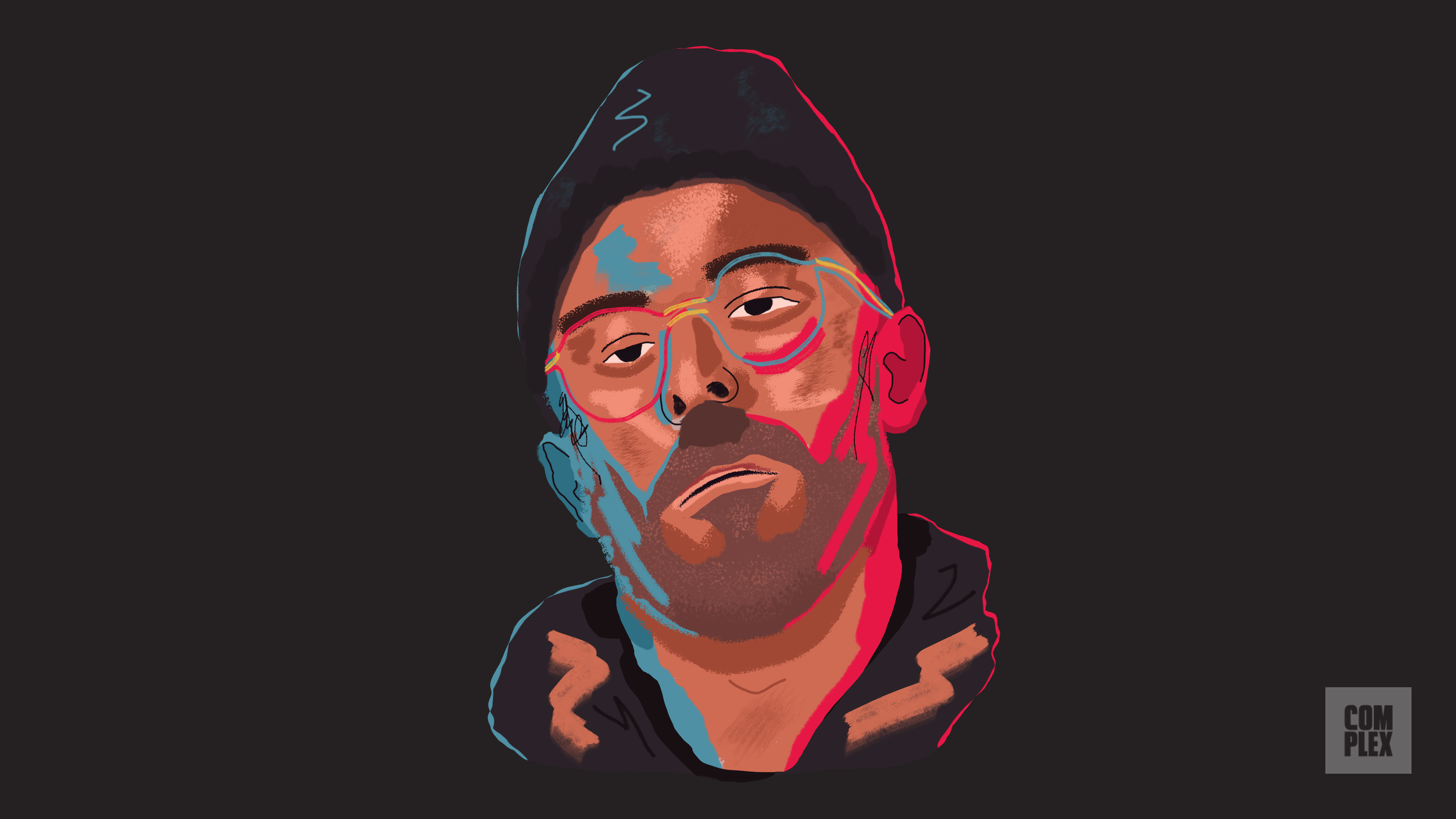
CREDENTIALS: Haram, Bo Jackson, Super Tecmo Bo, Carry the Fire, This Thing of Ours, This Thing of Ours 2, Rapper’s Best Friend 6, Cycles
When it comes to musical output, people often bring up the quality vs. quantity binary because they’re not used to artists who offer both. But The Alchemist has been the quintessential example of a producer who can release a lot of material, and do it at a very high level, as exemplified by his busy 2021. Fourteen years after Return of the Mac with Prodigy set off his slew of rapper-producer projects, Alchemist’s prolificacy can’t even be considered “a run” at this point. It’s just who he is.
The 44-year-old veteran has been a contender for Best Hip-Hop Producer Alive in each year of the 2010s, off the strength of helming ambitious, immersive projects for rappers like Currensy, Freddie Gibbs, Action Bronson, and others. As recently as 2020, he was the first runner-up, in a year he got a Grammy nomination for Alfredo. But for us, 2021 was his most undeniable year yet. He released a whopping eight projects, including three instrumental tapes (with Carry the Fire and Cycles boasting never-before-heard beats). He linked up with some of rap’s most exciting voices, including Earl Sweatshirt, Vince Staples, Boldy James, Mavi, Pink Siifu, billy woods, and ELUCID. Many of the year’s best rap moments had ALC on the score, and he embarked on a new sonic approach for each project.
He kicked off the year with Carry the Fire, a dream sequence of a beat tape that intersperses beguiling samples with clips of news telecasts. (If someone ever creates a sci-fi movie about getting stuck in the digital news cycle, they need to use this as the score.) Then, in March, he produced Armand Hammer’s Haram, one of the year’s most thrilling projects. Beats like “Black Sunlight,” “Scaffolds,” “Falling out the Sky,” and “Roaches Don’t Fly” left room for billy woods and ELUCID’s freeform dialectics (“my new name, colonizers can’t pronounce”) to roam.
Fifteen years ago, an Alchemist project called This Thing of Ours might have actually been mafia-themed, replete with the late Prodigy’s lurid lyricism. But, instead, he helmed a pair of EPs highlighting artists that he met through his “little big homie” Earl Sweatshirt. Both projects offered a canvas for young maverick lyricists to drop freewheeling tracks like “Nobles,” “Holy Hell,” and “Miracle Baby,” which are only violent in the manner that their poetics jolt listeners.
Of course, that’s not to say that there’s anything wrong with feeding the streets, which ALC and Boldy James did with their two Bo Jackson-themed bangers. Alchemist has developed particularly impressive chemistry with Boldy, supplying him with minimalist beats that veer between the soul of “Turpentine” and the sear of “First 48 Freestyle,” all with enough implied menace for him to feed off of. Their August interview with Complex about Bo Jackson was chock-full of sports references, so it’s only right that we acknowledge ALC and his Detroit brethren going back to back like the Bad Boys Pistons.
In December, while the rest of the world was relaxing and thinking toward 2022, Alchemist hit us in the head one more time with the score for the short film Cycles, fitting the Jason Goldwatch-directed visual with an eerie, drumless soundscape.
Along with the fully produced projects were well-regarded loosies like the sinister “TRUMP” for Conway the Machine, the sputtering piano chops of Russ’ “Distance” (with Conway and Ghostface Killah), and the lush “Ostertag” for Stove God Cooks. It’s a testament to his versatility and constantly evolving sound that all his ad hoc work is distinct but immediately identifiable as his sound. And all of those releases stoke intrigue for what a full project with each artist would sound like. The way ALC gets to it, those might already be in the works.
Alchemist’s impact isn’t felt with his catalog alone. His work with ALC Records makes him one of the few people on this list who have revolutionized the producer’s business model, on top of dropping dope music. His focus on releasing free projects, bolstered by vinyls and merch sales, shows producers a path to maximize the control of (and profits from) their work. The Alfredo rollout came with a bevy of clothing items and even action figures. In 2021, Alchemist and Boldy augmented the release of Super Tecmo Bo with limited edition trading cards that his fans clamored for. Releasing projects through his own label and offering creative merch options has given him the freedom to leave behind the old waiting game of sending out beat tapes and hoping a placement comes out of all the major-label red tape.
Alchemist is creating on his own terms, and the rap world is better for it. You couldn’t have told the story of hip-hop’s greatest producers without scrolling through this list and seeing his name at least once. His relentless work ethic and boundless ambition has resulted in some of the best rap projects of the 21st century, and he’s still surging ahead to create more. Read our in-depth interview with Alchemist about his big year (and what’s coming next) here.
HONORABLE MENTIONS: Hit-Boy, Tyler, the Creator, Cardo
Last year’s Best Hip-Hop Producer Alive, Hit-Boy, nearly doubled up off the strength of two more well-received Nas collaboration albums, King’s Disease 2 and Magic. He also produced an EP for Big Sean and had a slew of singles, including “What You Need” for Don Toliver, as well as beats for Tee Grizzley, Sada Baby, Maxo Kream, Babyface Ray, Cordae, Nardo Wick, GRIP, and more. Tyler, the Creator almost took home Best Rapper and Best Producer Alive in the same year, after producing the entirety of Complex’s Album of the Year pick, Call Me If You Get Lost, a sprawling, cinematic epic of a project assisted by DJ Drama. He also earned credits on Maxo Kream’s “Big Persona,” Westside Gunn’s “The Fly Who Couldn’t Fly Straight,” and Kanye West’s “Come to Life.” And Cardo supplied so many of 2021’s biggest moments that we had to give him a nod as well. The ever-busy producer laced Drake’s “7am on Bridle Path” and “Wants and Needs” (with Lil Baby), Baby Keem’s breakout “Family Ties” (with Kendrick Lamar), Meek Mill’s latest spectacular “Intro,” and Young Thug’s “Bubbly,” as well as full projects with Larry June and Payroll Giovanni. —Andre Gee
2022: Metro Boomin
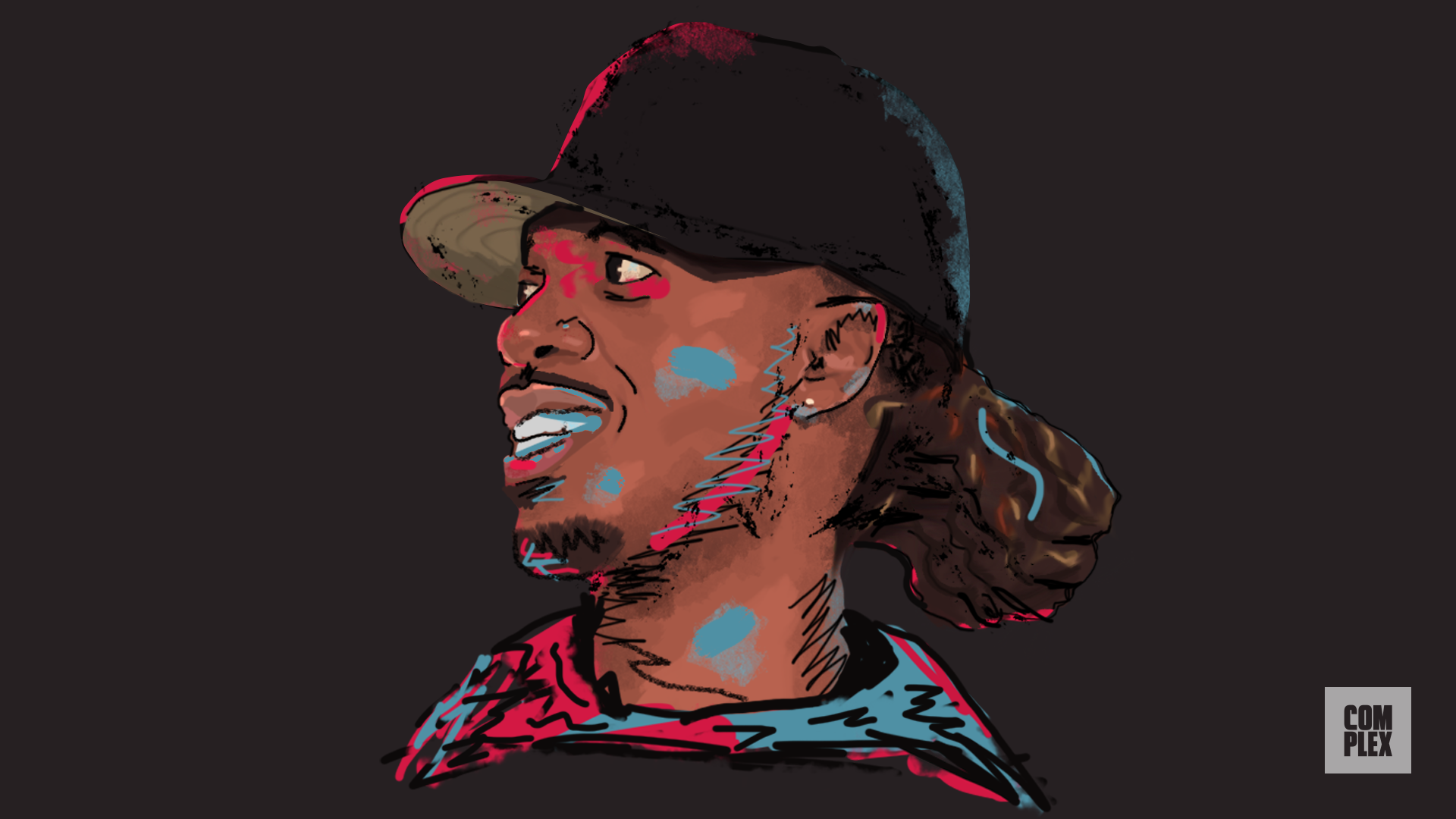
CREDENTIALS: Heroes & Villains
Metro Boomin almost let 2022 get away from him. The Atlanta producer’s musical output in the first two years of the period we recognize as the “Covid Years,” was defined by blockbuster releases like his collaborative album with our pick for rapper of the year on Savage Mode 2 (2020), plus production credits on major projects like The Weeknd’s After Hours (“Heartless,” “Faith”) and Drake’s Certified Lover Boy (“Knife Talk”). But as 2022 came around and paralyzing fear of the pandemic settled, Young Metro seemingly eased up. It wasn’t until December 2022, with one month left on the calendar, that Metro Boomin reemerged with his second studio album, Heroes & Villains. The album, which debuted at No. 1 on the Billboard 200 in its first week, became his second top-charting album as a solo artist and proved that Metro delivers—even, or perhaps even especially—when it’s crunch time.
On Heroes & Villains, Metro Boomin doesn’t try any smoke and mirror tricks. The album stays close to the title’s theme, exploring the dichotomy of good and evil with guest appearances by some of his closest collaborators. “Superhero” is a two-part track that outlines the album’s theme, beginning with intoxicating flows from Future as he raps about heroic adventures brought on by a super drug and ending with Chris Brown’s dark vocals describing the once-hero morphing into a villain. While the album could’ve easily been overshadowed by the lists of starpower of each guest, which includes Future, Young Thug, and more, Metro creates cohesion with grim trap beats that rely on a rumbling bass and manufactured percussion. This laser focus also yields hits like “Metro Spider” with Young Thug, and “Creepin’” with 21 Savage and The Weeknd.
Aside from that standout album, Young Metro lent his signature trap sound to several songs on Gunna’s DS4EVER including “poochie gown” and “P power” featuring Drake. The album most notably debuted at No. 1 on the Billboard 200, blocking the Weeknd’s Dawn FM from the top spot.
2022 was always going to be Metro Boomin’s year. His late mother even foreshadowed this moment in February, writing in a text, “Man, you release this album everyone is going to suck it up like dry skin blessed with lotion!” Heroes & Villains does not reinvent the wheel in regards to the subgenre (Metro set the blueprint for the trap sound over a decade ago), but it didn’t need to. Instead, it further solidifies Metro Boomin as one of the most influential producers to date, whose sound defines a whole subgenre of music and influences rappers in and out of Atlanta.
Honorable mentions: Hit-Boy, The Alchemist, Boi-1da
Metro Boomin stole the W in the final quarter of 2022, but there are a few producers that deserve a shoutout for their work on several major releases throughout the year. Hit-Boy, Complex’s 2020 Best Producer Alive, has returned, this time with an honorable mention for his work on the third installment of Nas’ King’s Disease with credits on songs like “Michael & Quincy” and “One Mic, One Gun,” featuring 21 Savage. Hit-Boy also assisted on releases for The Game and Doechii. And although the Best Producer conversations focus on each artist’s contributions to rap, it is also worth noting that Hit-Boy produced hits for Beyoncé’s Renaissance. The Alchemist (Complex’s 2021 Best Producer Alive) proves to be a consistent force in the industry finishing another solid year of production. His production is listed on Earl Sweatshirt’s Sick!, Benny The Butcher’s Tana Talk 4, and The Elephant Man’s Bones: Pimpire Edition, a joint project with Roc Marciano. On The Elephant Man’s Bones, The Alchemist created a laid-back and slick beat that didn’t take away from Roc’s pure talent. He also produced Kendrick Lamar’s divisive relationship single “We Cry Together” featuring vocals from actress Taylour Paige. Boi-1da swooped in for the last honorable mention, thanks to his co-production on tracks like Kendrick Lamar’s “N95” and “Silent Hill.” Boi-1da didn’t lend his production skills to just one project, though. He also has credit on Jack Harlow’s Come Home The Kids Miss You for “Churchill Downs” and Drake and 21 Savage’s collaboration “Circo Loco.” Even while producing for the biggest artists in the game, Boi-1da partnered with Bacardi and streetwear brand Nahmias on a new distribution model that will amplify the voices of emerging talent and promote artist discovery. Boi-1da is also nominated for Producer of the Year at the 2023 Grammys—a category he, Dahi and D’Mile are representing this year for rap. —Jessica McKinney
2023: BNYX
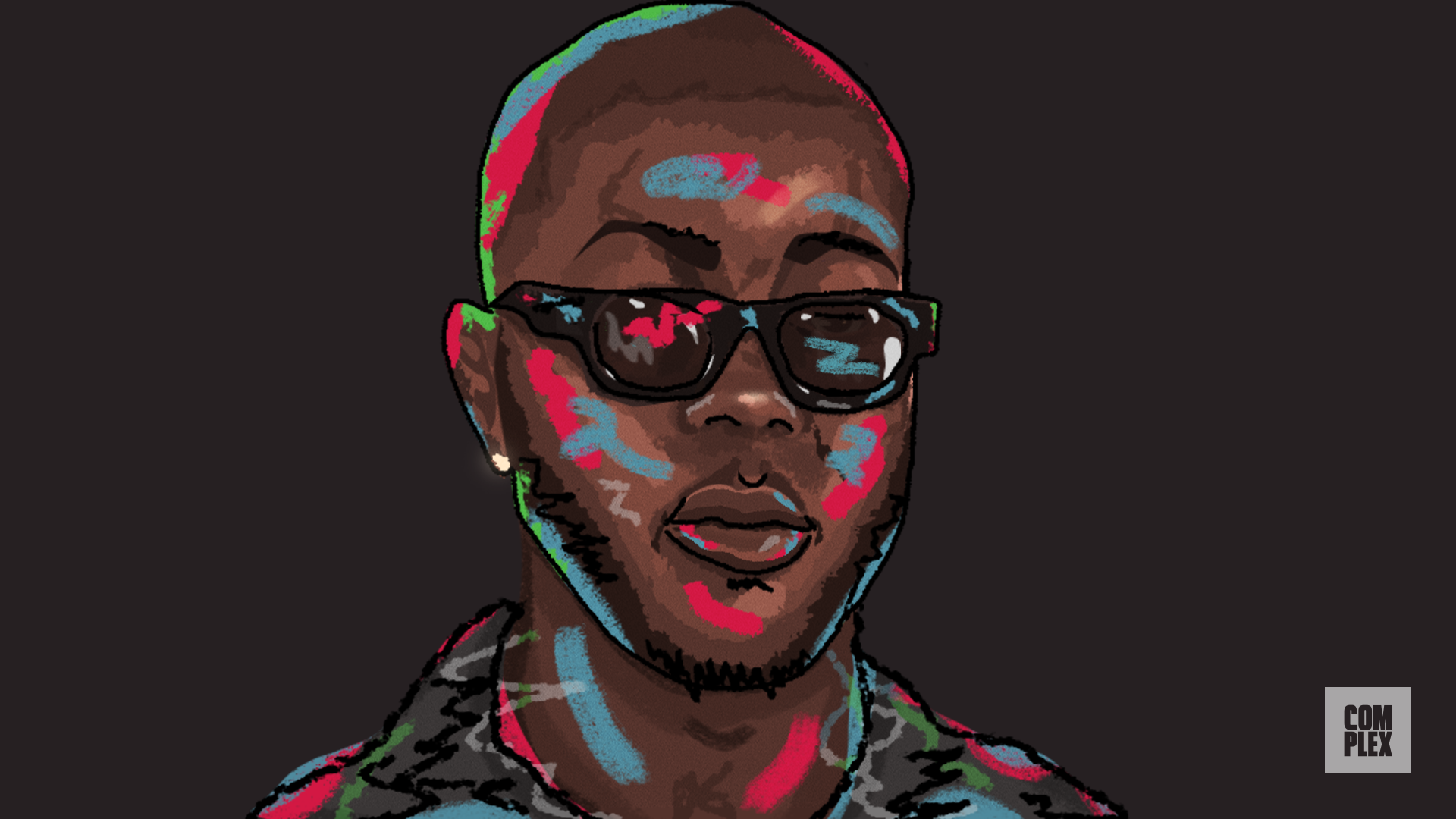
In a year marked by a historic 50-year anniversary and an uncertain future, there is one producer who rose from hip-hop’s underground with a fresh new sound that energized the genre: BNYX, Complex's undisputed pick for the Best Hip-Hop Producer Alive title in 2023. The 28-year-old producer has been making beats for seven years (including the past few with Philadelphia-based collective Working on Dying) but it was in 2023 that he had his true breakout moment, working with a long list of superstar collaborations and stacking up Billboard chart placements.
Teaming up with viral sensation Yeat for his third studio album AftërLyfe in February, the Philly producer started the year off strong, producing 8 out of 22 tracks. BNYX was able to pull out a new side of Yeat with an eclectic mix of beats that strayed far from the “rage” sound that fans had grown accustomed to, lacing the rapper with songs that ranged from the dark house anthem "Nun id change" to the contemplative, string-laden album closer “Mysëlf.” The two grew so comfortable with each other that they were able to pull off mind-melding records like "Wat it feel lykë," where Yeat instinctively turned his own ad-libs into a call-and-response with BNYX’s flutes. No wonder Yeat calls him the GOAT producer.
After his work with rising artists like Yeat, it was only a matter of time until BNYX caught the attention of mainstream stars. The opportunity to produce for Drake arose when fellow producer SadPoney, who had worked with Lil Yachty on Let’s Start Here, suggested they craft some music to send to Drizzy. So BNYX sent over 50 beats, and out of that selection, "Search & Rescue'' emerged as a standout. The single swiftly climbed to the No. 2 spot on the Billboard Hot 100 and secured a place on Drake's chart-topping album, For All The Dogs, in addition to producing 7 other songs on the tracklist. Drake was so impressed, in fact, that he brought BNYX on board as an executive producer for his It's All a Blur Tour.
From there, the Philadelphia maestro contributed to Travis Scott's highly anticipated Utopia album, adding his touch to three tracks on the album, like the top 10 Billboard hit, "K-Pop" and the villainous Drake collab “Meltdown.” By that point, BNYX was the most in-demand new hip-hop producer on the planet, getting calls for countless major releases, including Lil Uzi Vert's Pink Tape, Lil Tecca’s TEC, Quavo’s Rocket Power, and Nicki Minaj's Pink Friday 2, demonstrating his versatility and widespread impact on each album.
So what makes BNYX the Best Hip-Hop Producer alive? It isn’t just the unanimous endorsement from music icons like Kid Cudi, who dubbed him the best producer of the new generation. BNYX is the wizard behind the curtain, rewriting the playbook for the next wave of producers by creating unconventional and eccentric sounds with both emerging and veteran artists. His adaptability is his superpower. Instead of relying on a singular sound or aesthetic, he can seamlessly bounce from one subgenre to the next, adapting to each artist he works with and nudging them to bold new sonic territory. “I like to push an artist to try different things,” he tells Complex. “And I think people recognize that and I guess they want that.” With a relentless drive for innovation that blurs the lines between subgenres, spanning from the underground to the mainstream, BNYX is forging a brighter, more exciting future for hip-hop as a whole.
HONORABLE MENTIONS: The Alchemist, RIOTUSA, Tay Keith
After careful consideration, The Alchemist, Tay Keith, and RIOTUSA have all emerged as contenders for the title of the Best Hip-Hop Producer Alive, just narrowly missing the top spot. The Alchemist showcases his unparalleled talent through masterful productions that shaped the sound of lyrically dense rap on joint projects like Larry June’s The Great Escape, Earl Sweatshirt’s Voir Dire, and Mike and Wiki’s Faith Is a Rock. Most notably, ALC set the foundation for Lil Wayne to deliver one of his best guest verses of the year on “Big Dog.” Tay Keith also had a pivotal year, lending his distinct Memphis sound to Sexyy Red, who ruled 2023 with raunchy anthems “Pound Town” and “SkeeYee.” His rambunctious production on “First Person Shooter” also helped earn J. Cole his first-ever No. 1 on the Billboard Hot 100. Meanwhile, Riotusa has proven to be Ice Spice’s right hand, cultivating a new lane of sexy drill and pop rap that has the industry in a chokehold. He has produced every single track on her EP,Like, including the “Princess Diana,” “In Ha Mood,” and “Deli, all of which have cemented his status as a producer on the rise. Whether it was securing major collaborations or cultivating new sounds, each producer contributed something significant to 2023, solidifying their place as honorable mentions. —Jessica McKinney
